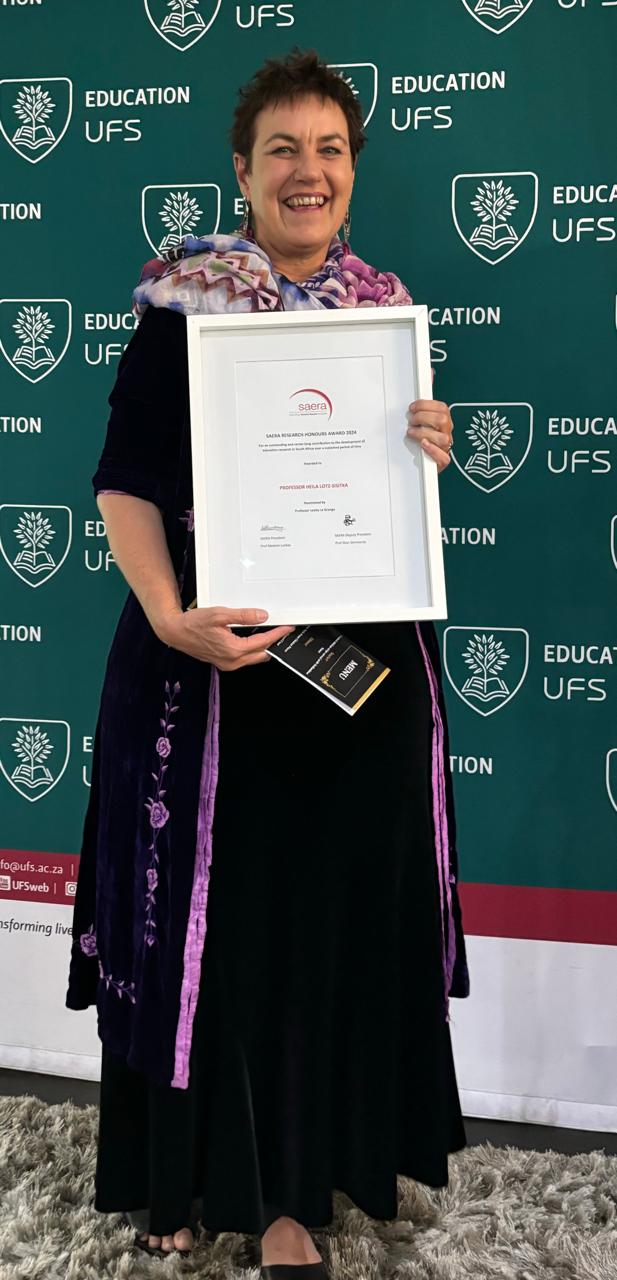
Rhodes University’s Distinguished Professor Heila Lotz-Sisitka honoured with prestigious SAERA education research award
Distinguished Professor Heila Lotz-Sisitka, a leading figure in environmental education, was awarded the 2024 SAERA Research Honours Award by the South African Education Research Association (SAERA) last week (31 October) at their annual conference in Johannesburg. The award recognises her substantial contribution to the development of education research in South Africa, especially within the fields of Environmental and Sustainability Education, over a remarkable 30-year career. The accolade, which is one of the highest forms of national recognition for a researcher in the Educational Sciences in South Africa, also marks a significant first for Rhodes University’s Education Faculty.
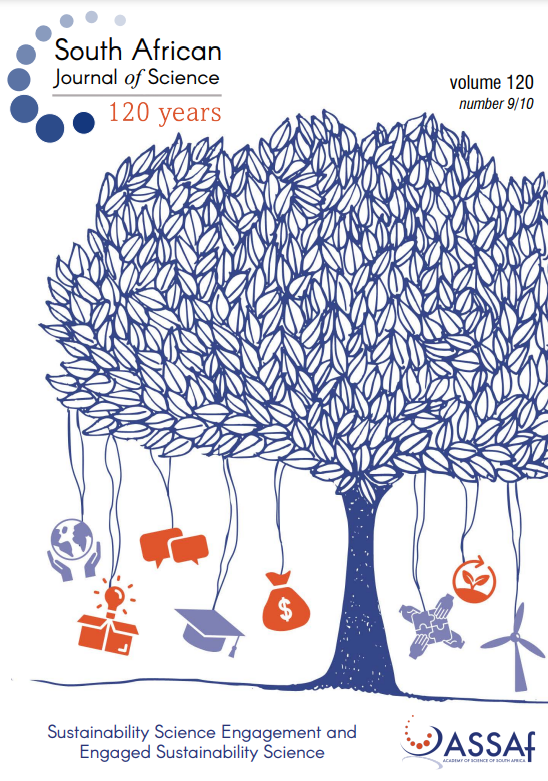
Science for the people: Rhodes University leads in South African Journal of Science edition focused on sustainability science engagement
Both Rhodes University and the South African Journal of Science celebrate their 120th anniversary in 2024, marking their significant contributions to the scholarly community. Questions about who is involved in scientific research, and who the research is for, come into sharp focus as South Africa also celebrates its 30th year of democracy. Although ‘science engagement’ often refers to how the public learns about and interacts with scientific research, ‘engaged science’ is about how communities can become involved in crafting the agenda and development of scientific research itself. This becomes ever more important in the context of the Sustainable Development Goals (SDG), where the nexus between people and nature is central to creating meaningful and long-lasting change for the health of communities and the planet.
-600x450.jpg)
Reimagining African Economies at EEASA’s 42nd Conference
Aimed at facilitating environmental and sustainable development education in the region, the Environmental Education Association of Southern Africa (EEASA) held its 42nd Conference in Lusaka, Zambia in September. The annual meeting gives ELRC students and scholars an opportunity to share their experiences around developing environmental education practices, and to learn from researchers and practitioners from across Southern Africa.
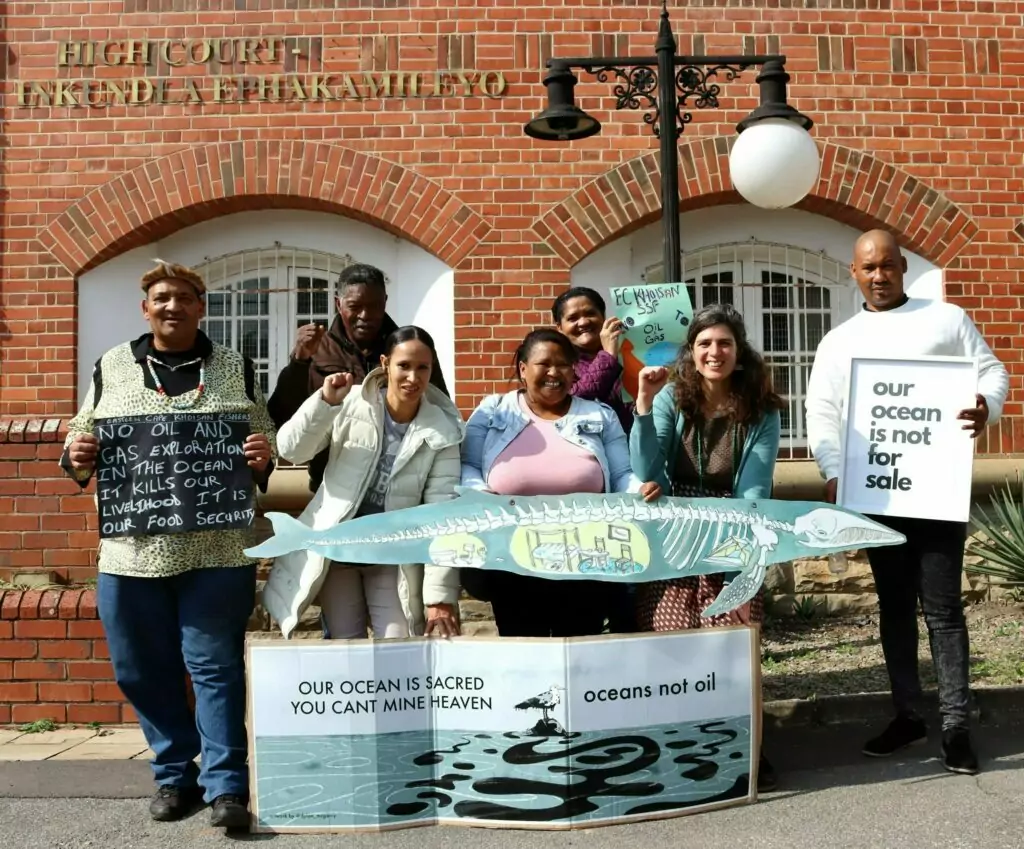
The Closing of a Chapter: The ELRC's Dylan McGarry and Taryn Pereira reflect on One Ocean Hub and its Commitment to Ocean Health and Justice
To build fair and sustainable interventions to protect our oceans, a myriad of perspectives must engage in meaningful dialogue about how our seas should be regulated, and over the past five years, the One Ocean Hub provided a platform for this to happen.
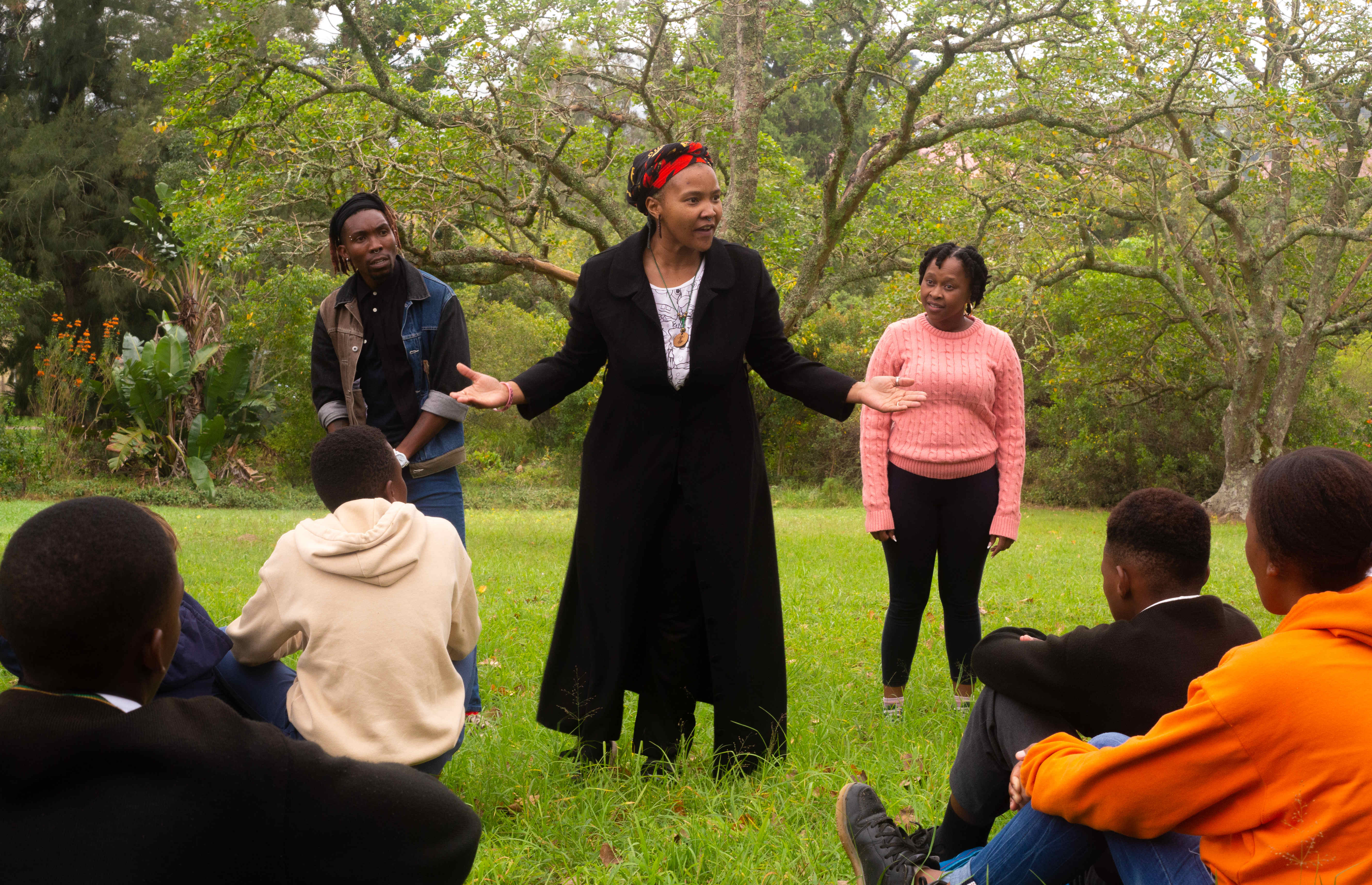
Nurturing hope through theatre: Well Worn Theatre Company's Burning Rebellion visits the ELRC
As the world grapples with climate change, young people play a vital role in fighting for a more just and sustainable world. It is their future, but its path seems to be made by men in suits far away from the local realities of drought, floods, food insecurity, and rising seas. With their touring protest poetry production and workshop 'Burning Rebellion', Well Worn Theatre Company invites young people to connect with and embody their local experience of environmental injustice. The ELRC hosted a showing of their provocative performance and a workshop at the end of May.
.png)
NRF Funding: Invitation to apply!
As we increasingly grapple with pressing socio-ecological problems both locally and globally, environmental education has never been more important. The DSI/NRF SARChI Chair in Global Change and Social Learning Systems is inviting prospective Masters and PhD candidates to apply for DSI/NRF Bursaries under the DSI/NRF research programme of the SARChI Chair and Environmental Learning Research Centre (the ELRC).

Transforming a new humanistic vision of global education into reality
On May 20, 2024, a virtual webinar on "Transforming a new humanistic vision of global education into reality" was co-hosted by the Global Campaign for Peace Education and NISSEM. The webinar addressed the groundbreaking 2023 Recommendation on Education for Peace, Human Rights and Sustainable Development which was adopted by all UNESCO Member States in November of last year.
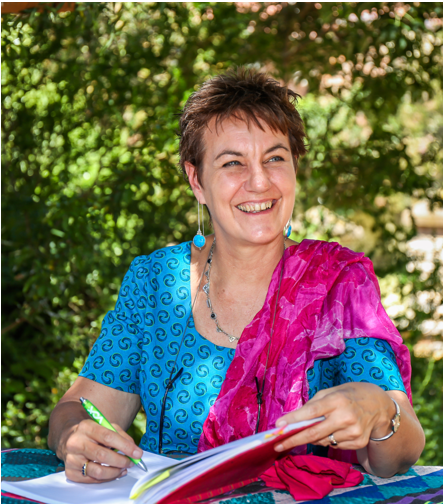
Long walk to transformative education that changes the world
Article appearing in the University World News, authored by Desmond Thompson on 30 March 2024, opens with one of Nelson Mandela’s most frequently quoted statements, “Education is the most powerful weapon which you can use to change the world”.
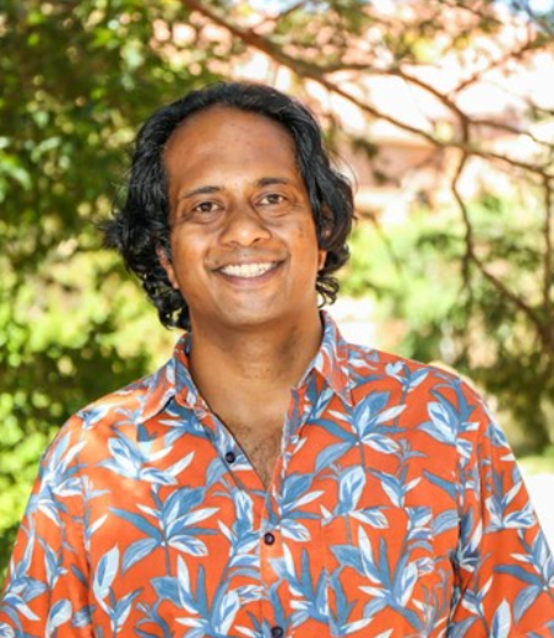
Dear Preven...Namaste
The Environmental Education community in southern Africa, Africa and the world has lost a River Warrior, educator and beautiful person, a ‘vibrant virtuoso with the joie de vivre’ as his brother Viroshen said.
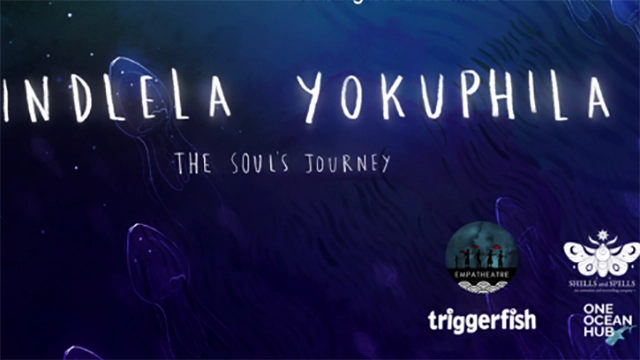
"Indlela Yokuphila" wins Golden Zebu at Madagascourt Film Festival
Empatheatre's animated film, "Indlela Yokuphila," has been honored with the prestigious GOLDEN ZEBU award at the 18th edition of the Madagascourt Film Festival. This remarkable achievement celebrates the film's excellence in the PAN-AFRICAN ANIMATION COMPETITION.
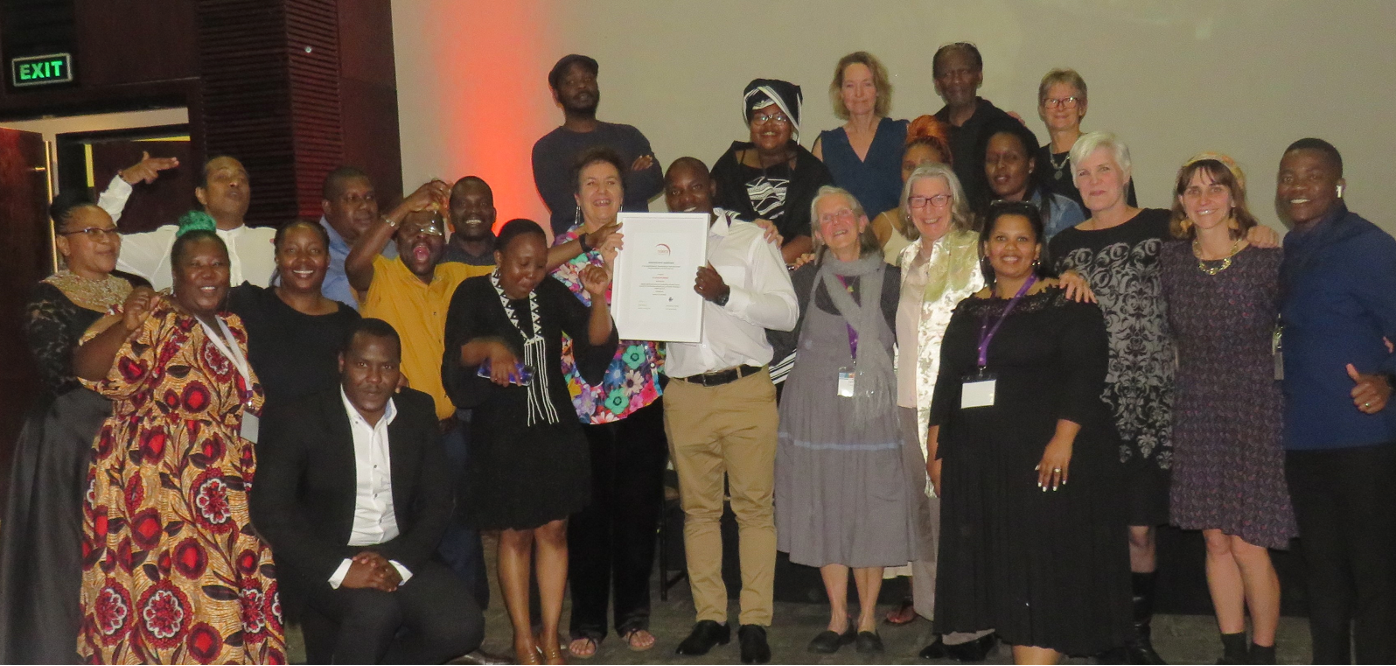
Primary School Teacher wins Best PhD Award!
John Bhurekeni, PhD graduate from the Environmental Learning Research Centre in the Faculty of Education, was recently awarded the South African Education Research Association best PhD award for 2023. The award was handed out during the gala dinner at the recent South African Education Research Association Conference hosted by the RU Faculty of Education.
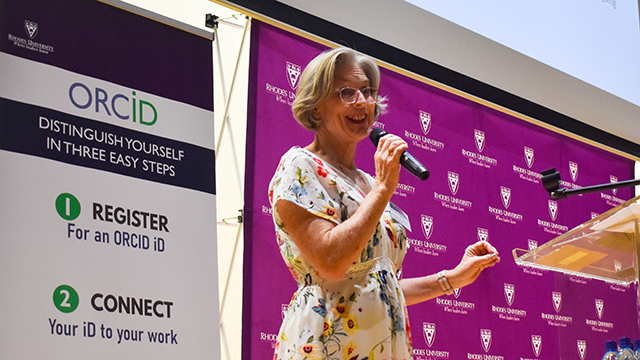
Rhodes University immortalises knowledge through digital archive project
Digital archives are an essential aspect of the educational sphere. They serve as a form of immortalising knowledge, which can easily be lost if time is not taken to ensure its survival. The Rhodes University Library, in collaboration with the Environmental Learning Research Centre (ELRC), recently presented an initiative to ensure that knowledge is stored and packaged for years and years to come through a digital archive project.
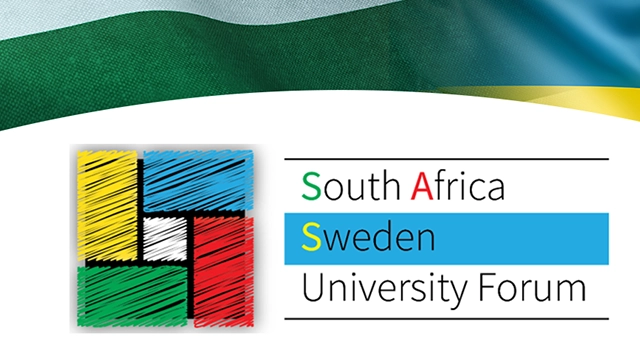
Rhodes University shines at SASUF Research and Innovation Week 2023
The South Africa Sweden University Forum (SASUF), of which Rhodes University is a member, recently held its Research and Innovation Week 2023. Several Rhodes University academics and executives participated.
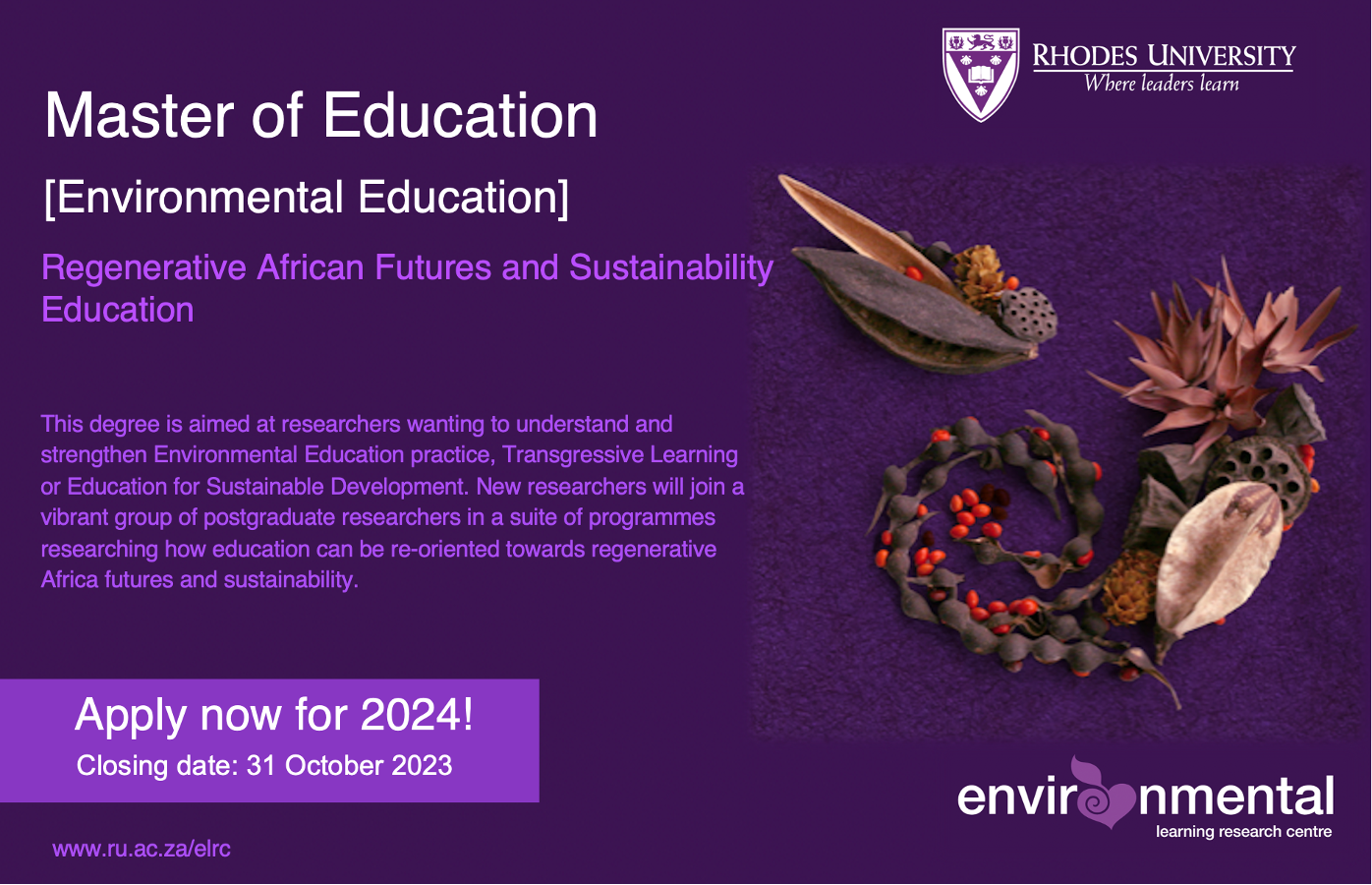
Masters in Education 2024 Applications are now open!
The Master’s programme at the ELRC has always been lauded as a flagship programme in mobilising the capacity of educational change makers in cutting edge research praxis that is responsive to the questions of our times. This year’s M.ED programme welcomes the critical questions that experienced teachers, practitioners and researchers hold in their practice towards Regenerative African Futures and Sustainability.
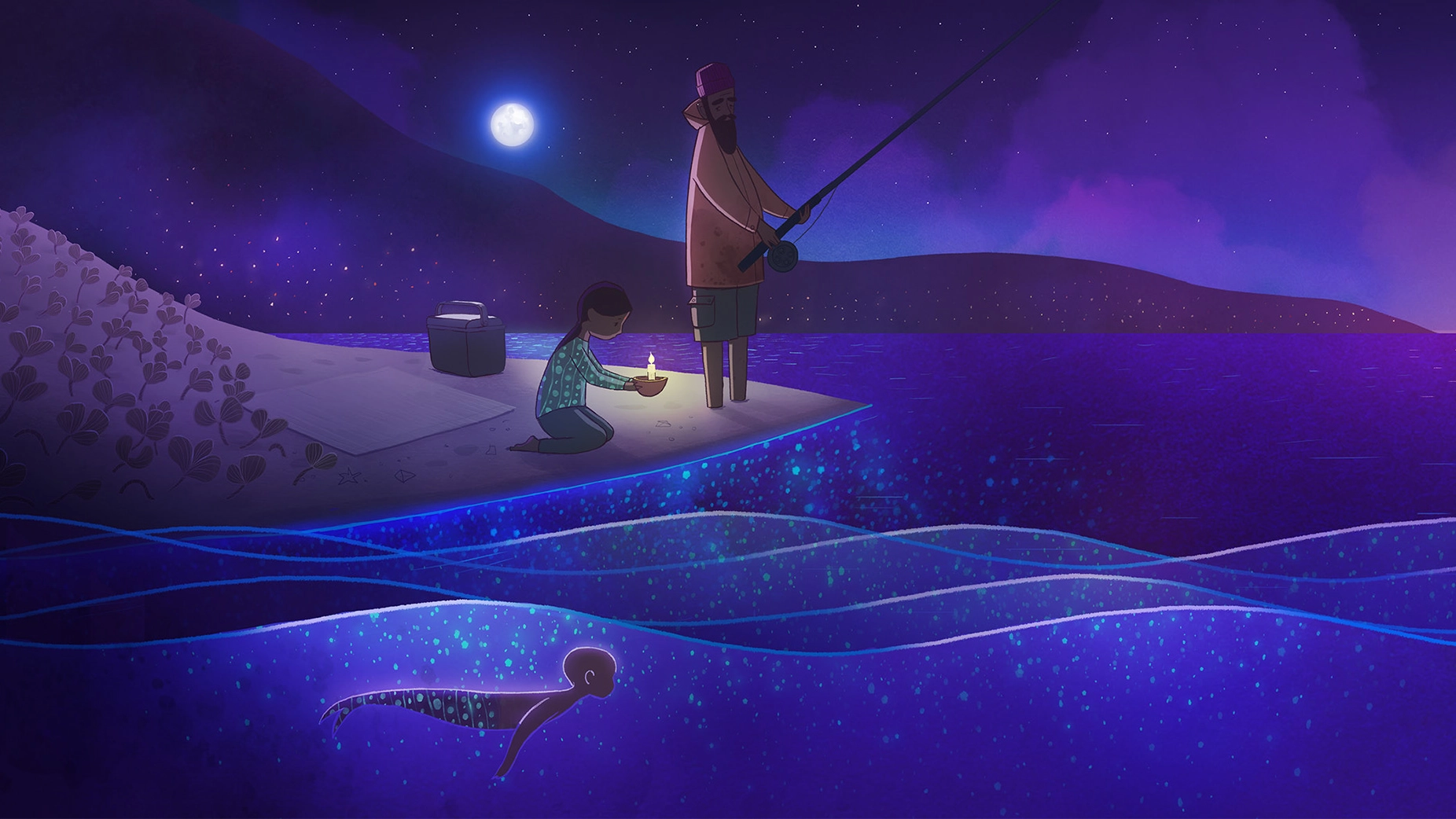
Rhodes University Educational Sociologist Dr Dylan McGarry to present new collaborative short film at United Nations World Ocean Week
Acclaimed South African Theatre Collective, Empatheatre, which was established as part of Dr Dylan McGarry’s postdoctoral research, will present its new short film "Indlela Yokuphila: The Soul's Journey" at United Nations World Ocean Week in New York on 07 June 2023.
.png)
Online course for youth teacher engagement on SDG 4.7
We welcome applications to this online course, which is designed for pre-service teachers or teacher trainees who have interest in the topics of Education for Sustainable Development, Global Citizenship Education and Political learning.

Masters in Education: African Regenerative Futures and Sustainability Education
The Master’s programme at the ELRC has always been lauded as a flagship programme in mobilising the capacity of educational change makers in cutting edge research praxis that is responsive to the questions of our times. This year’s M.ED programme welcomes the critical questions that experienced teachers, practitioners and researchers hold in their practice towards Regenerative African Futures and Sustainability.
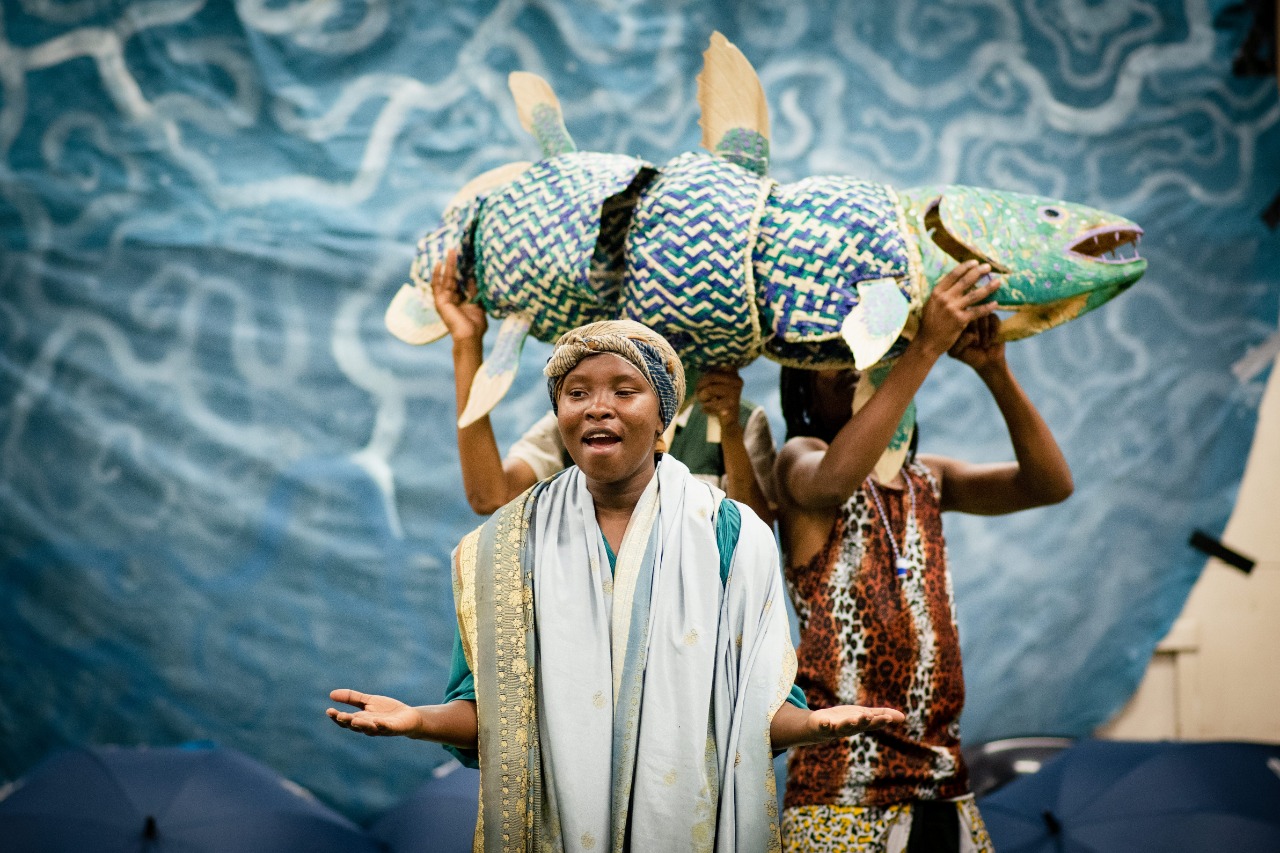
Updates from the One Ocean Hub
Much of this news first appeared on the One Ocean Hub blog - https://oneoceanhub.org/news-and-blogs/: The ELRC One Ocean Hub team will be travelling to the headquarters of the FAO in Rome in March, to facilitate a workshop with FAO officials about arts and solidarity network based approaches to participatory governance with small scale fishers. The Empatheatre production ‘Lalela Ulwandle’ will also be performed for a strategic audience of global fisheries governance specialists in Rome.
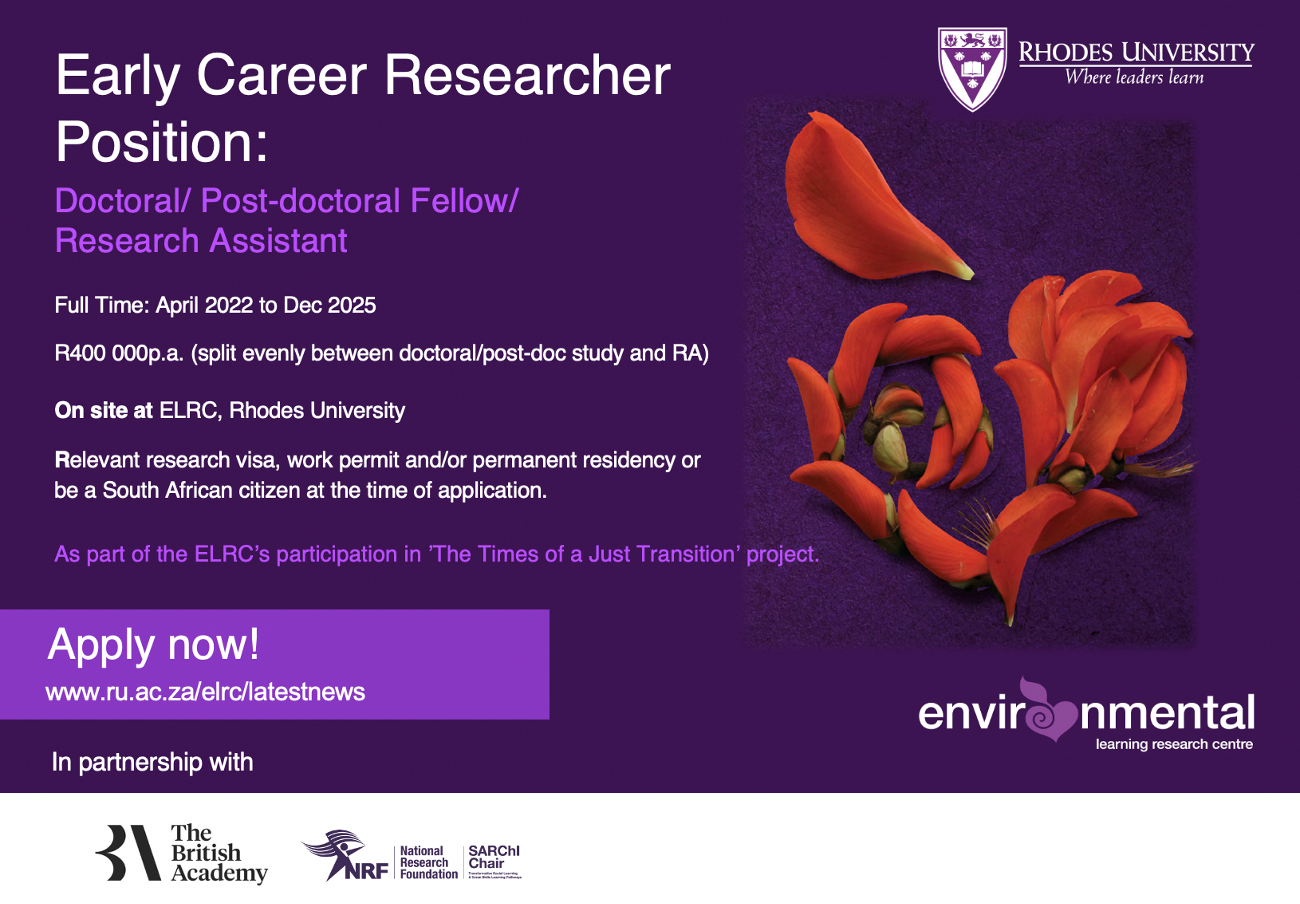
’Time for Justice’: Interesting new project
’Time for Justice’: Interesting new project by Heila Lotz-Sisitka The SARChI Chair: Global Change and Social Learning Systems in the Environmental Learning Research Centre at Rhodes University, is pleased to announce its participation in an exciting new project titled ’’The Times of a Just Transition’ This project forms part of an innovative, and prestigious global convening programme established by the British Academy to support researchers world-wide to give time to consider critical issues at global level in conversation with each other over a three year period.

Early Career Researcher Position: Doctoral/Post-doctoral Fellow/Research Assistant
This is a full time contract doctoral/post-doctoral and RA research position for an Early Career Researcher / Post-doctoral Scholar to work with the SARChI Chair on Global Change and Social Learning Systems on a prestigious, and exciting international research project focussing on ‘Times of a Just Transition’ funded by the British Academy in collaboration with the SARChI Chair.
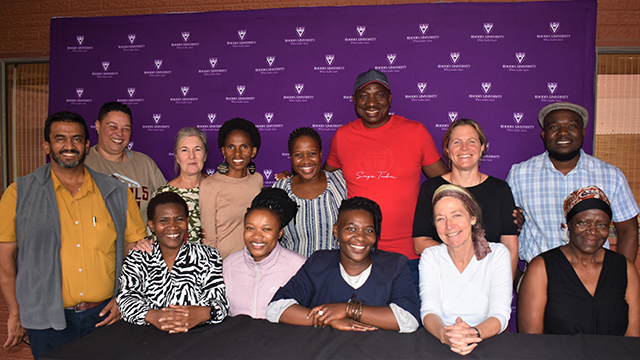
Celebrating the start of a new qualification in sustainability learning
Rhodes University Environmental Learning and Research Centre (ELRC) recently hosted a welcoming launch in celebration of the new qualification, the Postgraduate Diploma in Sustainability Learning [PGDip (SL)].
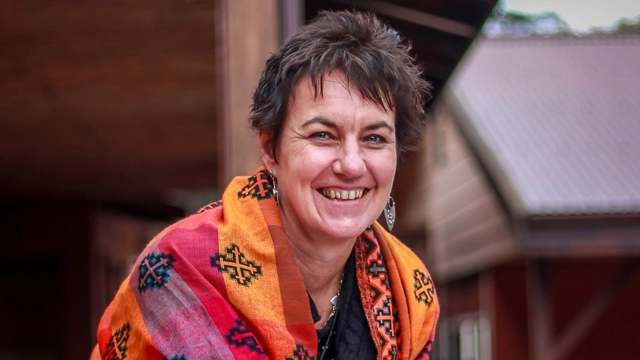
New digital library to make 30 years of environmental learning and research resources accessible for all
Over the past 30 years, the Rhodes University Environmental Learning and Research Centre (ELRC) has created a plethora of scholarship on social innovation, environmental education, and the transformative potential of university and civil society partnerships.
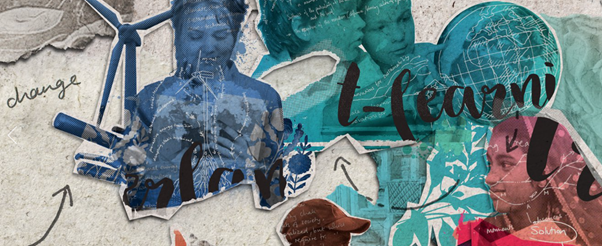
Transformations to Sustainability, an ISC short film
The International Science Council (ISC) has released a short film that speaks to Transformations to Sustainability, a topic that has the Anthropocene in its focus.
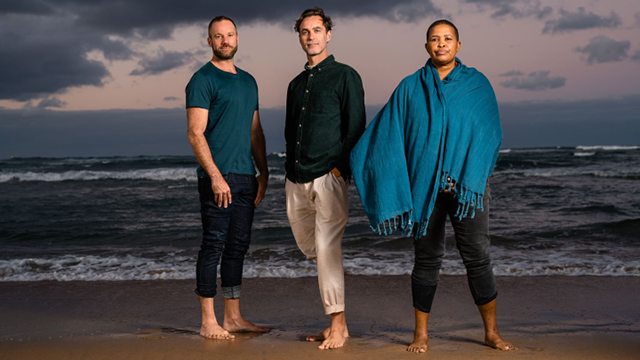
A Durban theatre company is drawing attention to the ocean through powerful storytelling
Durban theatre company, Empatheatre, performed its play ‘Lalela Ulwandle’ at COP27 in Sharm el-Sheikh on 14 November. The intention of the cast and crew was to place an ‘acupuncture point’ within COP27 decision-making and spark deeper consideration of grassroots coastal realities of the climate crisis.
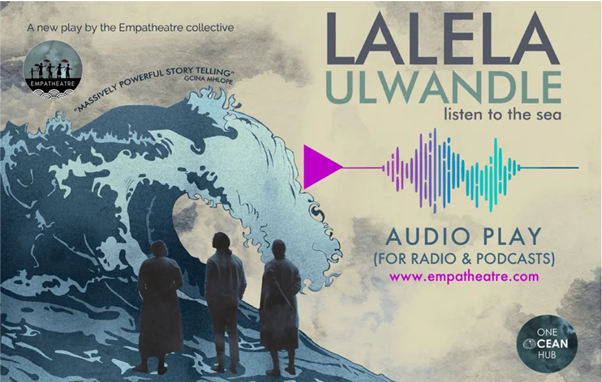
Rhodes University ELRC Contributions at CoP27!
World leaders, scientists and activists are about to gather in Egypt for CoP27, the 2022 United Nations Climate Change Conference, which starts on 7 November and will last for two weeks. This year the gathering will include Rhodes staff, notably members of the ELRC's One Ocean Hub team.

Two Rhodes University academics inducted into the Academy of Science of South Africa
Two academics from Rhodes University, Distinguished Professor at the Environmental Learning Research Centre, Professor Heila Lotz-Sisitka and Computer Science Lecturer Dr Dane Brown, were inaugurated as Members of the Academy of Science of South Africa (ASSAf) at the annual Awards Ceremony. The two academics were among the 29 scholars and scientists that ASSAf inaugurated.
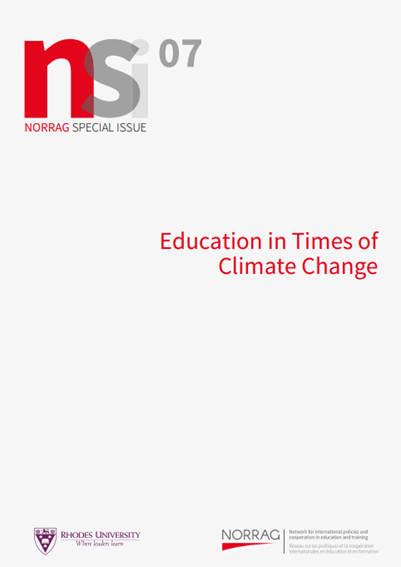
NORRAG Special Issue #7 "Education in Times of Climate Change" launched
The seventh edition of NORRAG Special Issue (NSI) entitled “Education in Times of Climate Change” is published and now available. Produced in partnership with the Rhodes University Environmental Learning Research Centre (ELRC), the journal was launched on 6 October by NORRAG in an online webinar to an expansive audience.
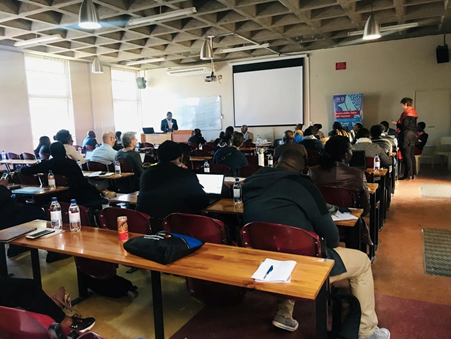
SST Policy Dialogue Features at EEASA Conference 2022 in Namibia
The 40th Conference for the Environmental Education Association of Southern Africa (EESA), held at the University of Namibia from 23rd to 25th August 2022, featured a very esteemed activity, Sustainability Starts with Teachers (SST) policy dialogue. SST is a capacity building programme for teacher and TVET educators in mainstreaming Education for Sustainable Development (ESD).
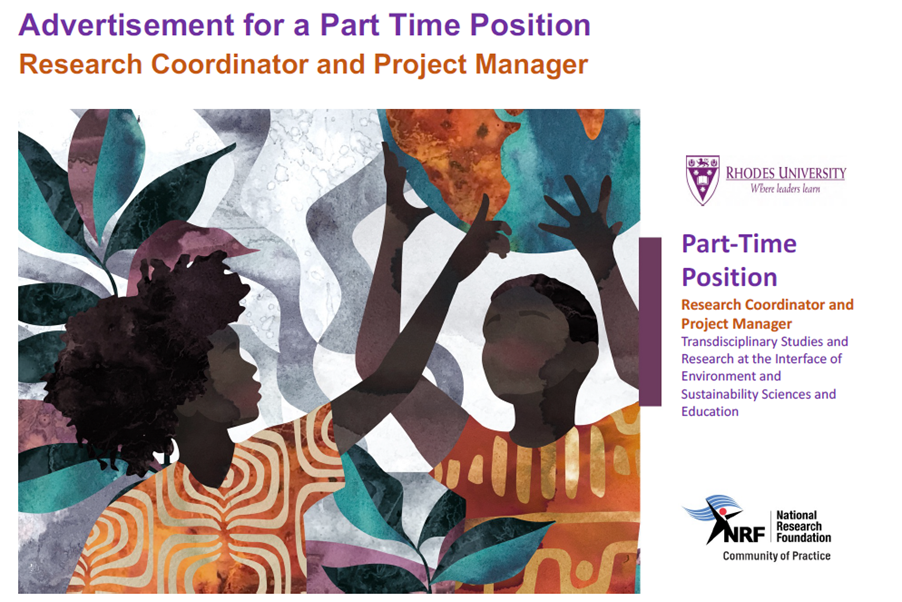
Advertisement for a Part Time Position Research Coordinator and Project Manager
The Environmental Learning Research Centre at Rhodes University is seeking to appoint a dynamic research co-ordinator and project manager
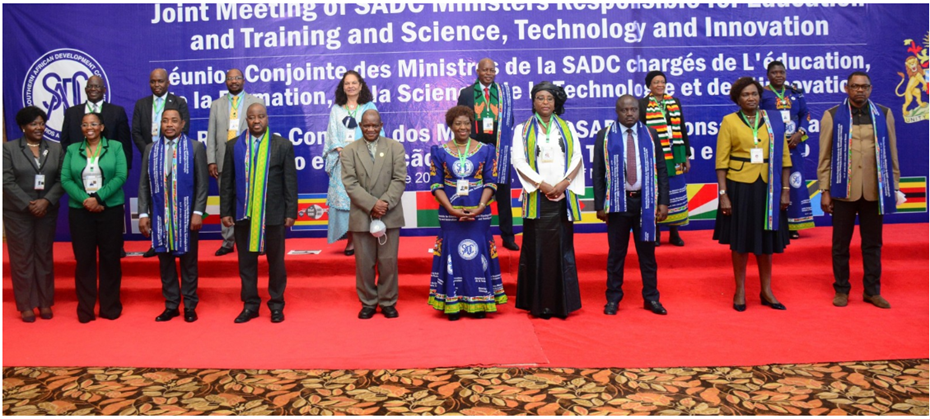
SADC Ministers approve the Regional Strategic Framework on ESD
SADC Ministers approved the Regional Strategic Framework on Education for Sustainable Development (ESD) on 17 June 2022 in Lilongwe, Malawi.
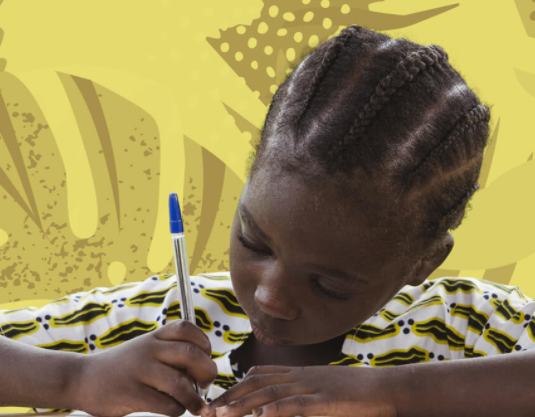
SST Course celebrates 106 graduates!
The Sustainability Starts with Teachers Course celebrates 106 graduates!

Upcoming CHAT Research School
The ELRC will be hosting a Cultural Historical Activity Theory (CHAT) Research School in July 2022.
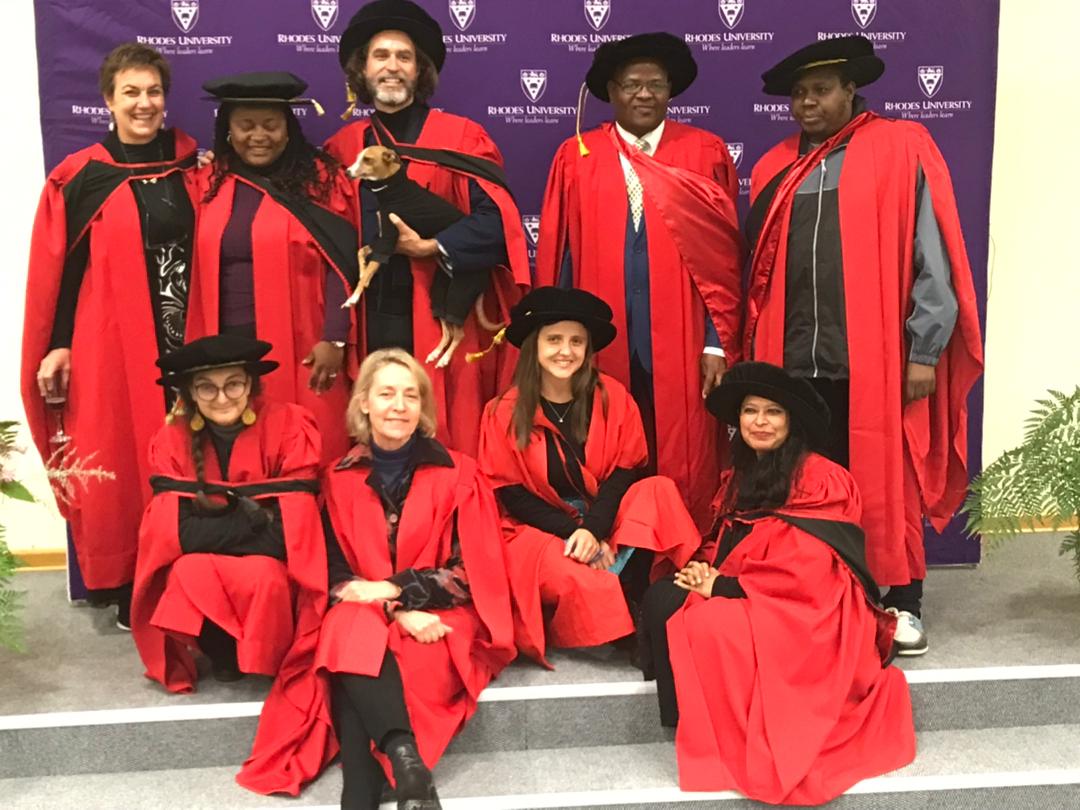
Celebrating Graduation
April marked the first live graduation ceremony since the Covid-19 pandemic in the start of 2020. The occasion saw two of our ELRC PhD scholars cross the stage and capped by the ‘Green Dean’, Professor Eureta Rosenberg, on Friday afternoon. We celebrate with Dr Anna James and Dr Priya Vallabh who joined a lovely line up of PhDs and Masters who graduated on the virtual stage during lockdown.
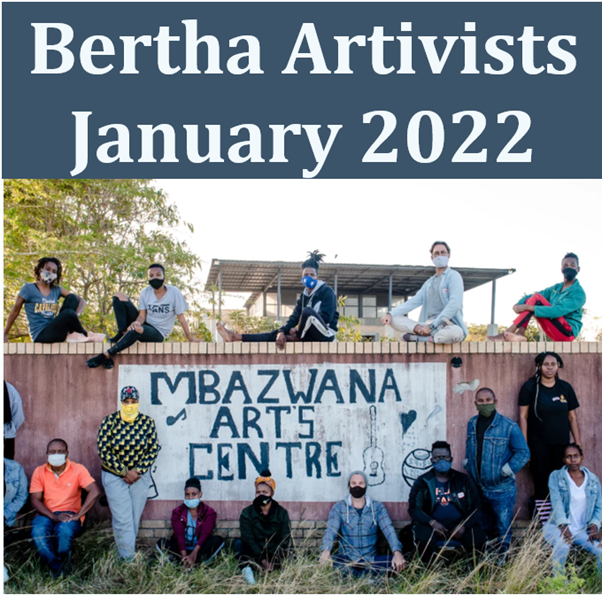
Empatheatre wins Bertha Artivist Award
Empatheatre, has been announced as a Bertha Artivist award winner for January 2022. Founded in 2009, the Bertha Foundation brings together storytellers, lawyers and activists in working towards social and economic justice.

UNESCO-SADC Policy Dialogue on ESD
Eleven SADC countries (Angola, Botswana, Eswatini, Lesotho, Madagascar, Malawi, Mozambique, Namibia, South Africa, United Republic of Tanzania, Zambia, and Zimbabwe) will attend the UNESCO-SADC Policy Dialogue on Education for Sustainable Development (ESD) in Johannesburg from 14 to 16 March 2022.

Transforming Education for Sustainable Futures’ in South Africa
Stories of collective learning and care during a pandemic The Environmental Learning Research Centre at Rhodes University, in partnership with the international Transforming Education for Sustainable Futures (TESF) research programme, are pleased to release this beautiful monograph, produced through collective learning and care with eight partner groups during the COVID-19 pandemic. The monograph, entitled ‘Stories of collective learning and care during a pandemic’ offers stories from eight carefully crafted reflective research projects by practitioners, researchers and community-based organisers. The stories share insight into the collective shifts and praxis needed to regenerate transformative futures.

PhD Scholar Awarded the Commonwealth Split-Site Scholarship
Congratulations to our PhD Scholar, Sidney Muhangi, who has been awarded the Commonwealth Split-site Scholarship sponsored by the Commonwealth Scholarship Commission. Sidney’s scholarship is tenable at the University of Nottingham, UK, where he will be based while completing his studies over the next 12 months.
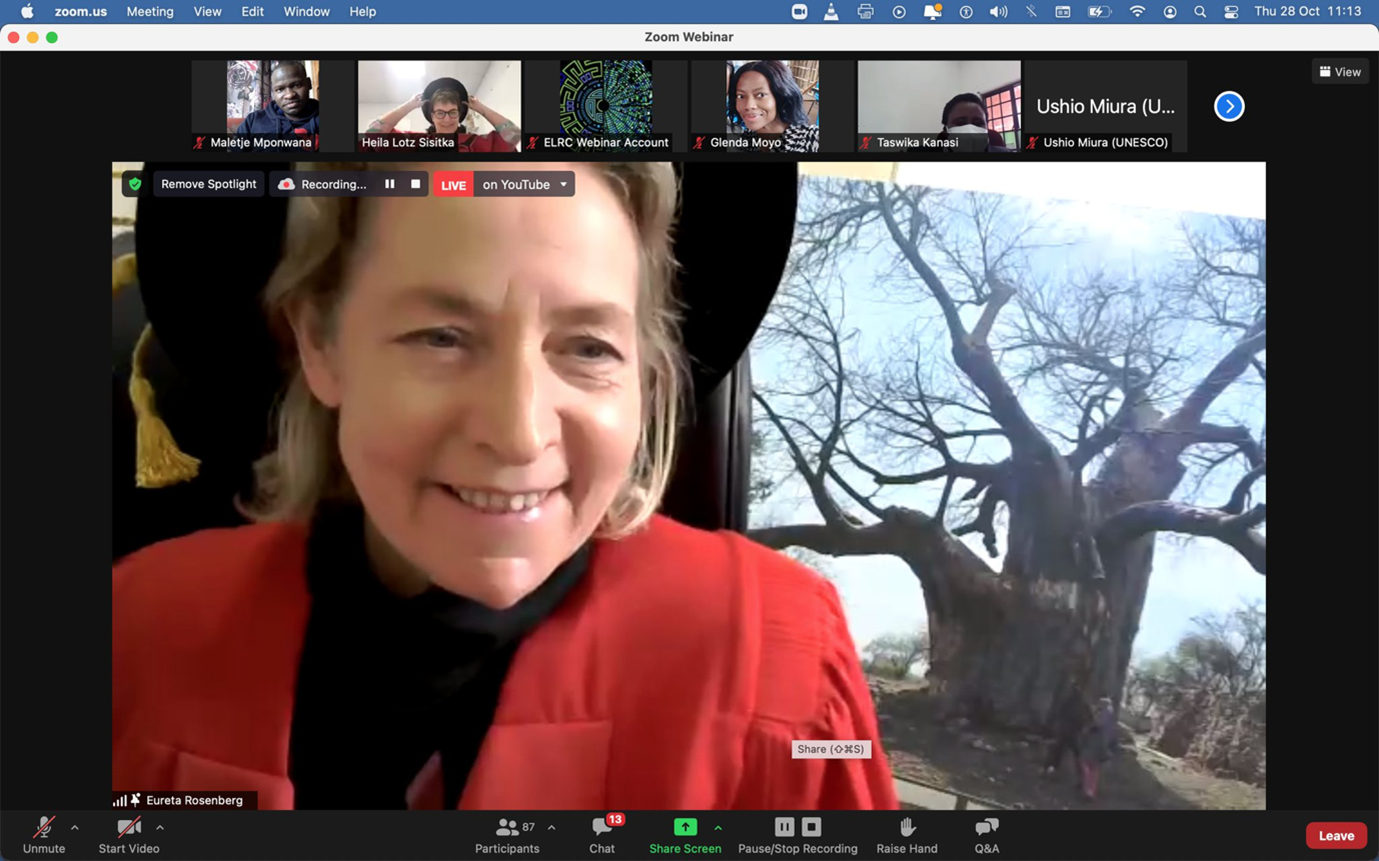
First SST Course Completion Certificates Awarded!!
Late October 2021 was an exciting moment for the Sustainability Starts with Teachers Course! The first Course Completion Certificates were awarded in a course participants graduation ceremony hosted as part of the final 2021 webinar series.
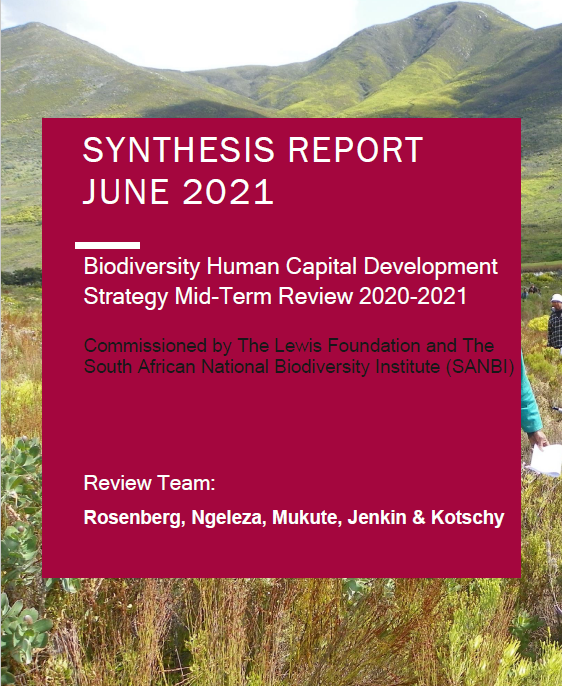
Biodiversity Skills Strategy Review
The implementation of a 20 year strategy for transformation and skills development for biodiversity was reviewed in the past year by a team led by Prof Eureta Rosenberg at Rhodes University's ELRC.

Environmental Skills Summit Talks Now Available
National Environmental Skills Summit - 08-10 September
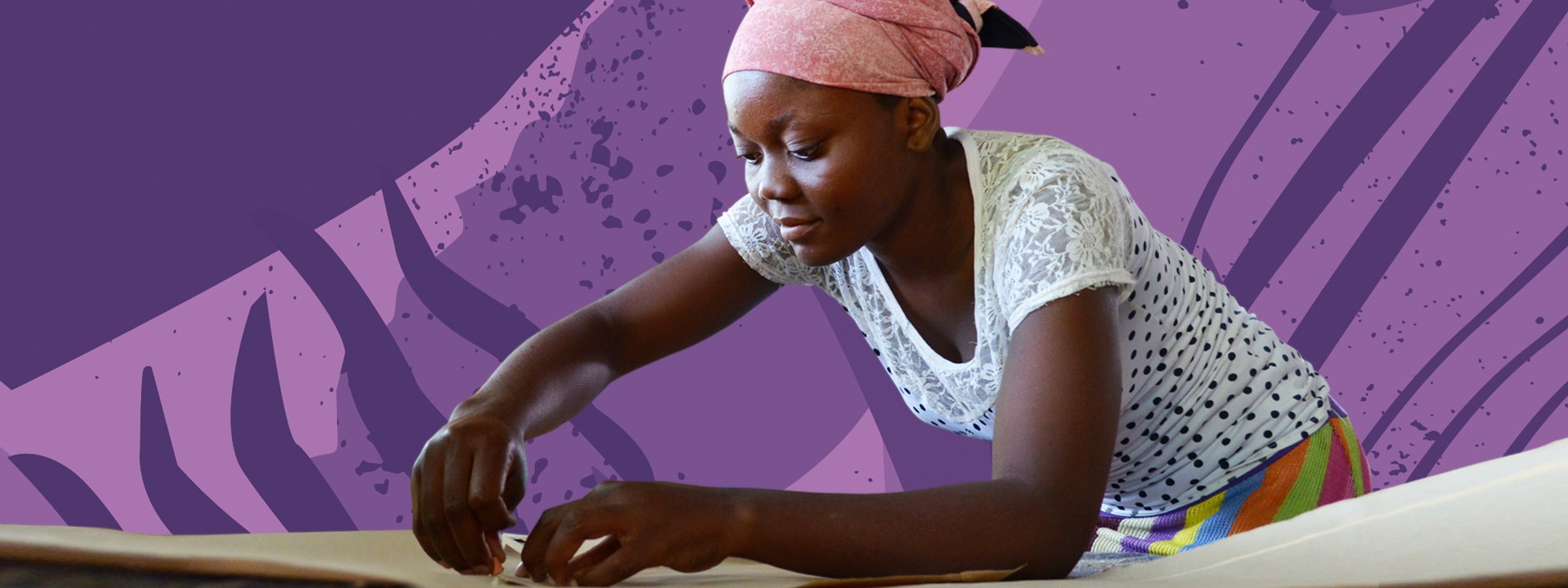
Engaging ‘Green TVET’ in the SST Course with EEASA President, Dr Presha Ramsarup
The SADC Industrialization Strategy and Roadmap 2015-2063 proposes that southern African countries upscale industrialization activities.
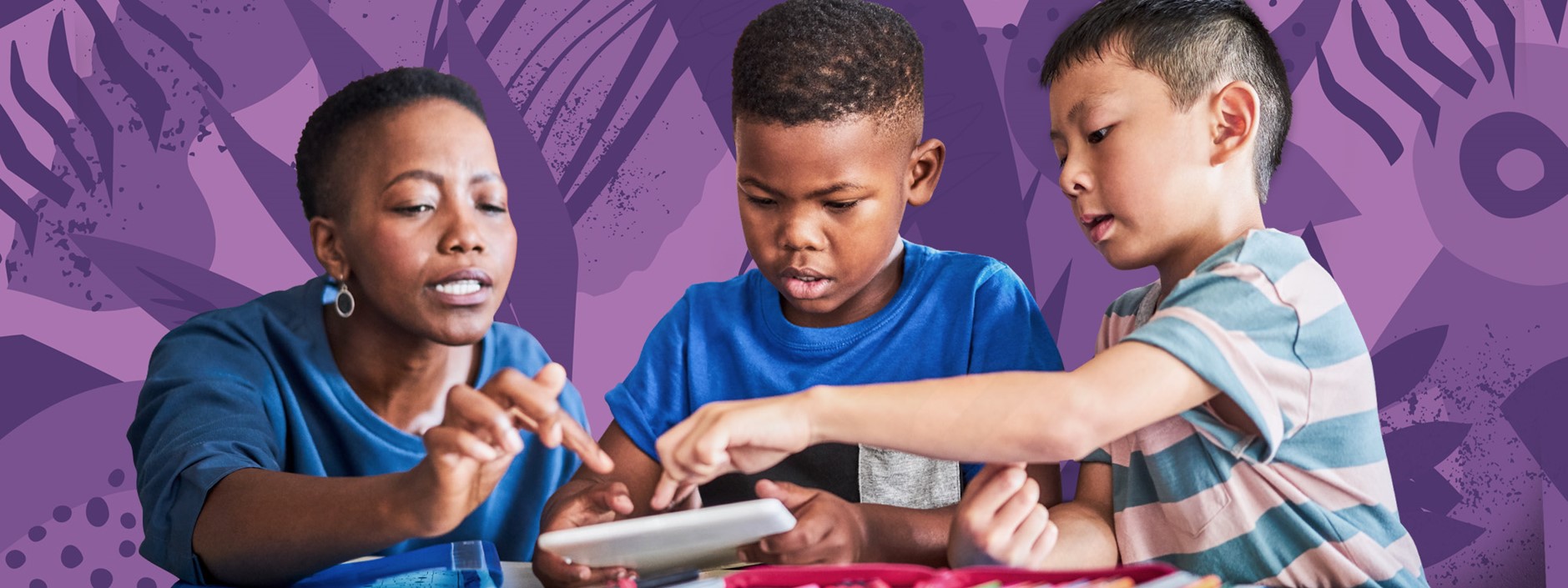
Sustainability Starts with Teachers 2021: Off to a good start with record numbers!
A record number of 300 participants have registered for the online 2021 Sustainability Starts with Teachers Course, as the initiative begins to go to scale in southern Africa. Opening the 2021 Sustainability Starts with Teachers Course, Prof Hubert Guizen, Director of UNESCO Southern and East Africa, welcomed participants to the third iteration of this UNESCO/Rhodes University regional course on Education for Sustainable Development.
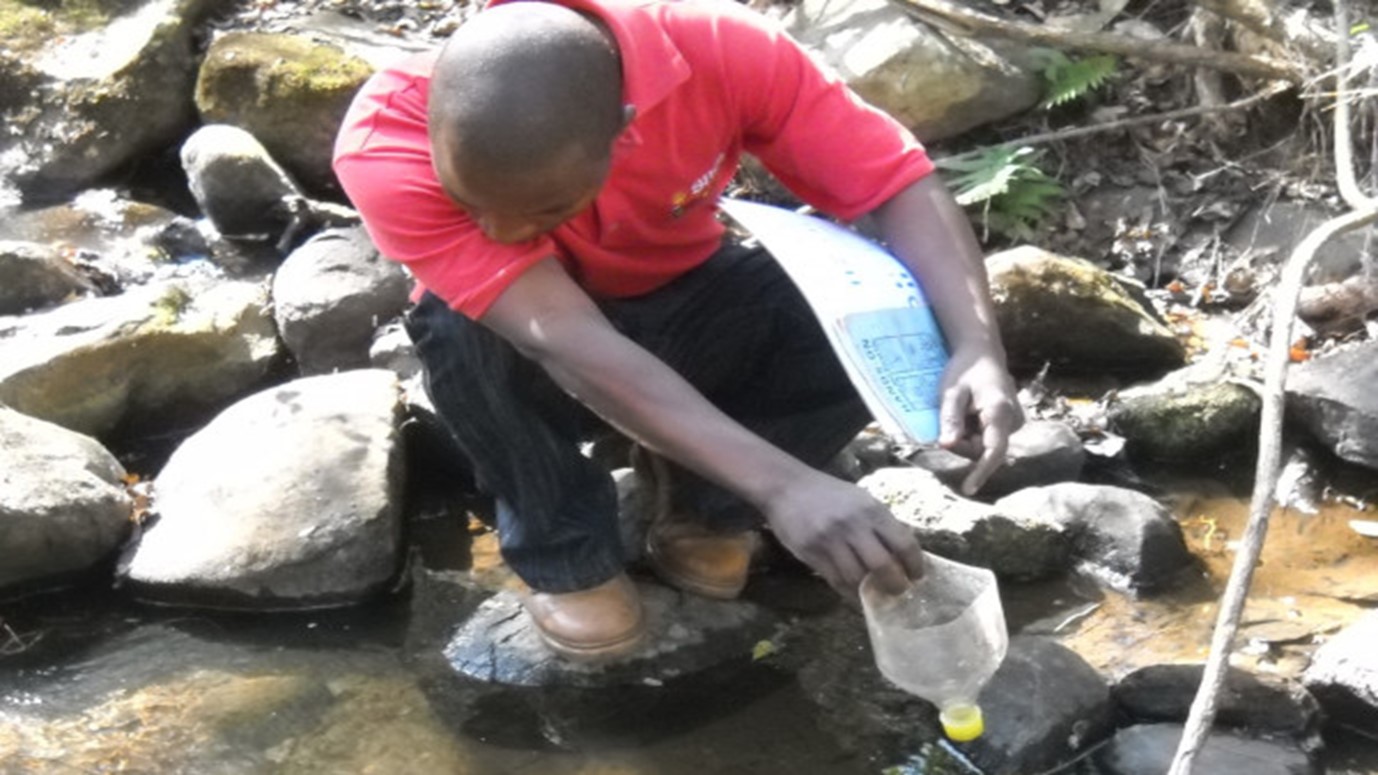
Partnership for Strengthening Citizen-based Water Quality Management in SA
It is often times said that water is life. One old Xhosa woman once said ukuba asiwaxabisanga amanzi sichitha ubomi bethu.
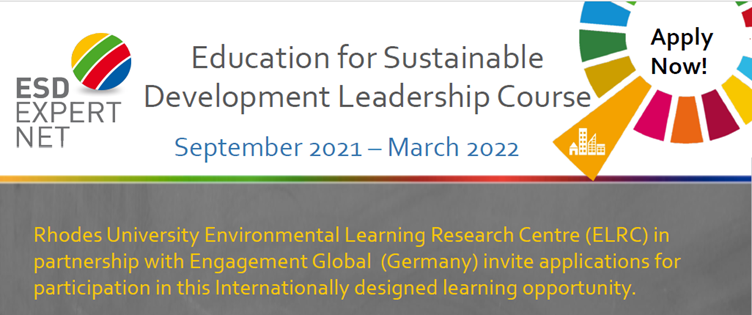
Education for Sustainable Development Leadership Course
Rhodes University Environmental Learning Research Centre (ELRC) in partnership with Engagement Global (Germany) invite applications for participation in this Internationally designed learning opportunity.
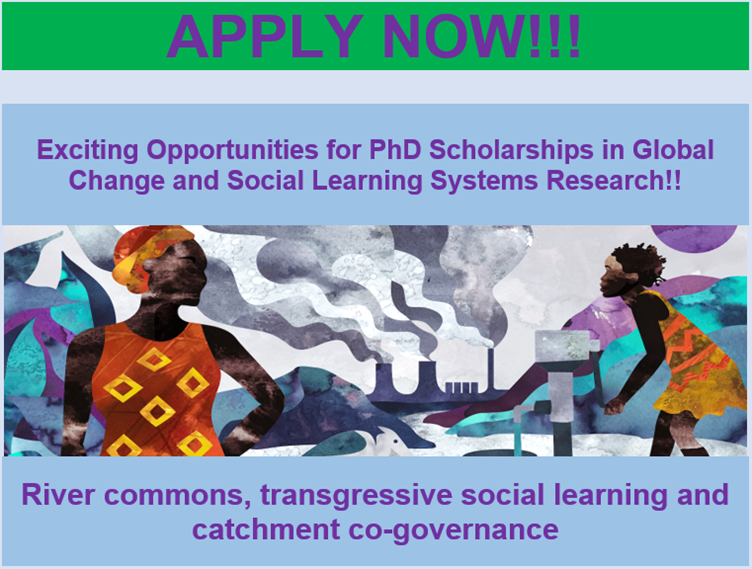
Exciting Opportunities for PhD Scholarships in Global Change and Social Learning Systems Research!! River commons, transgressive social learning and catchment co-governance
The SARChI Chair in Global Change and Social Learning Systems in the Environmental Learning Research Centre at Rhodes University, in partnership with Wageningen University in the Netherlands are inviting applications for scholarships for 3 PhDs from south/southern Africa to join the RIVER COMMONS research programme co-ordinated out of Wageningen University in the Netherlands, but implemented in South Africa by the SARChI Chair of Global Change and Social Learning at Rhodes University. The linked website offers more information, including an introductory video on the programme.
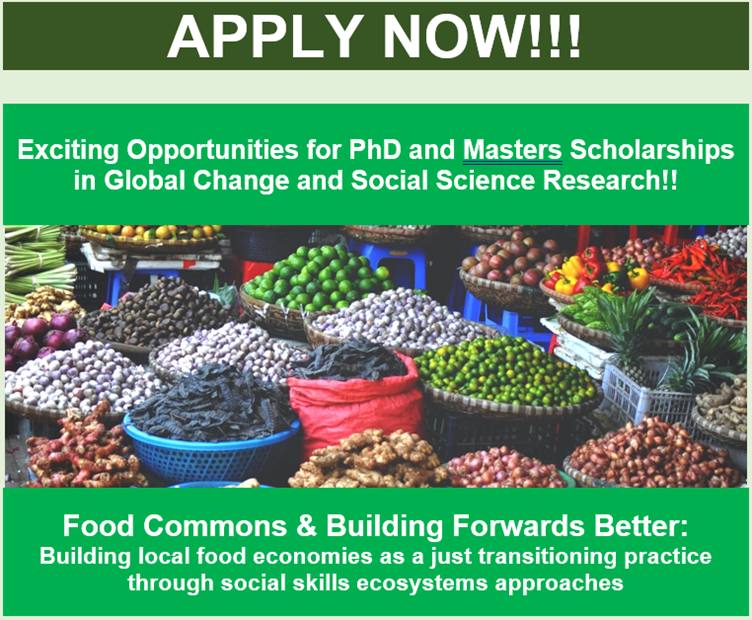
Exciting Opportunities for PhD and Masters Scholarships in Global Change and Social Science Research!!
The Centre for Researching Education and Labour at Wits University, in partnership with the SARChI Chair in Global Change and Social Learning Systems and the Chair of Environment and Sustainability Education in the Environmental Learning Research Centre at Rhodes University, and the Education Faculty at the University of Zululand, are inviting applications for scholarships for 3-5 Masters and 3-4 PhDs from South Africa to join this exciting research programme, co-ordinated out of the Wits University REAL Centre and implemented in partnership with the SARChI Chair of Global Change and Social Learning Systems at Rhodes University.
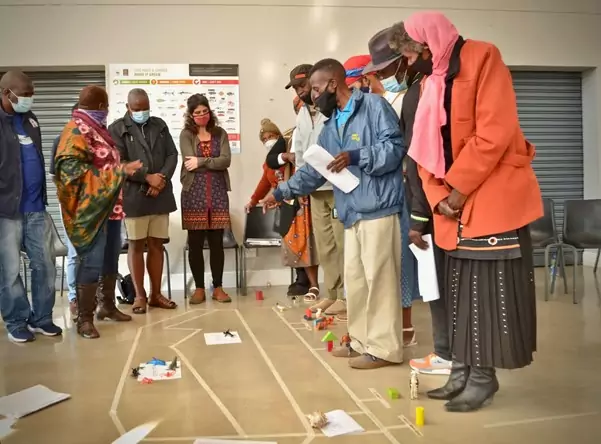
The Unexpected Impact of a Letter to the Minister from One Ocean Hub Researchers
In South Africa a growing network of small-scale fisher leaders, environmental justice organisations and researchers from the One Ocean Hub, currently called the Coastal Justice Network (CJN), has been responding collaboratively over the past two years to a range of injustices – social, environmental, economic – experienced by coastal communities and environments.
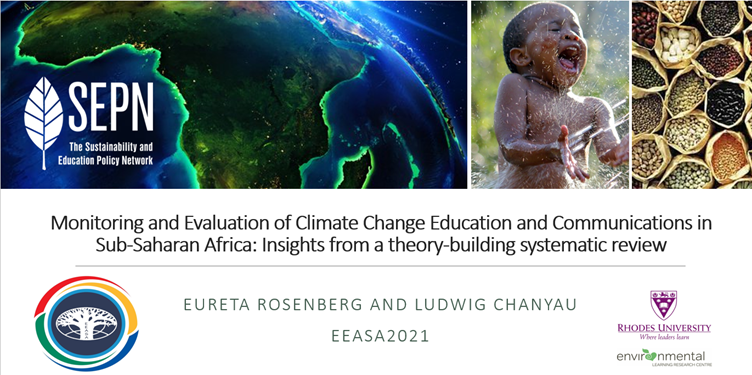
EEASA 2021 Monitoring and Evaluation of Climate Change Education and Communications in Sub-Saharan Africa: Insights from a theory-building systematic review
In this short #EEASA2021 presentation, Ludwig Chanyau and Prof Eureta Rosenberg share some early findings from the MECCE project's Regional Knowledge Synthesis for Sub-Saharan Africa.
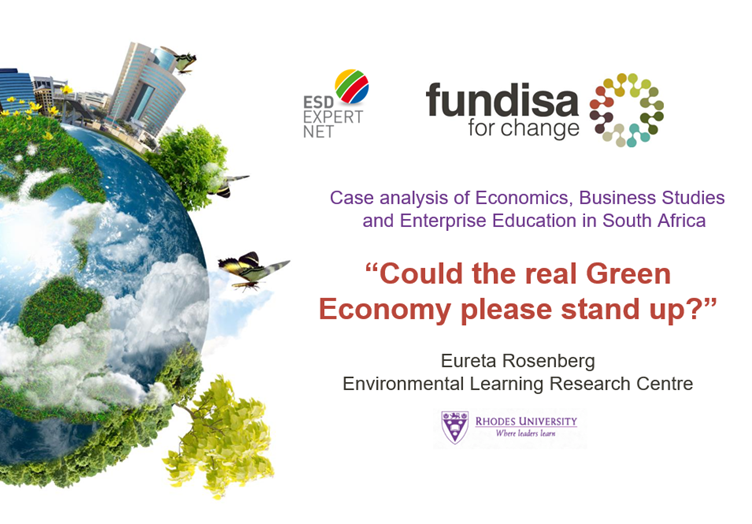
EEASA 2021 F4C Green Economy Presentation
On 23 June 2021 Prof Eureta Rosenberg, Chair in Environment and Sustainability Education at Rhodes University, presents a case-based analysis of green economy features in the South African school curriculum in the EEASA 2021 Conference.
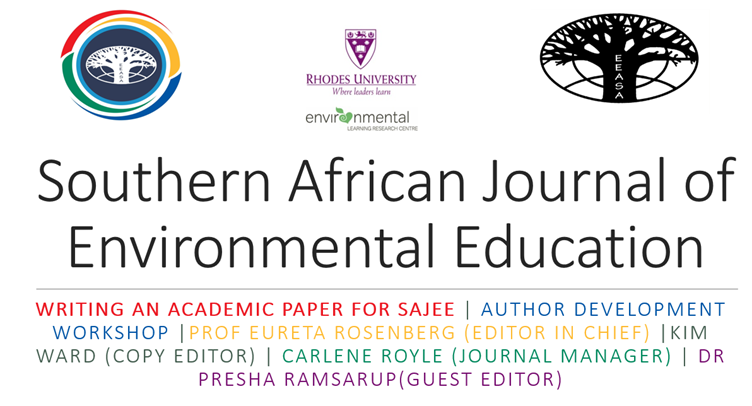
EEASA 2021 - Writing an academic paper for SAJEE
Are you interested in sharing your research internationally?
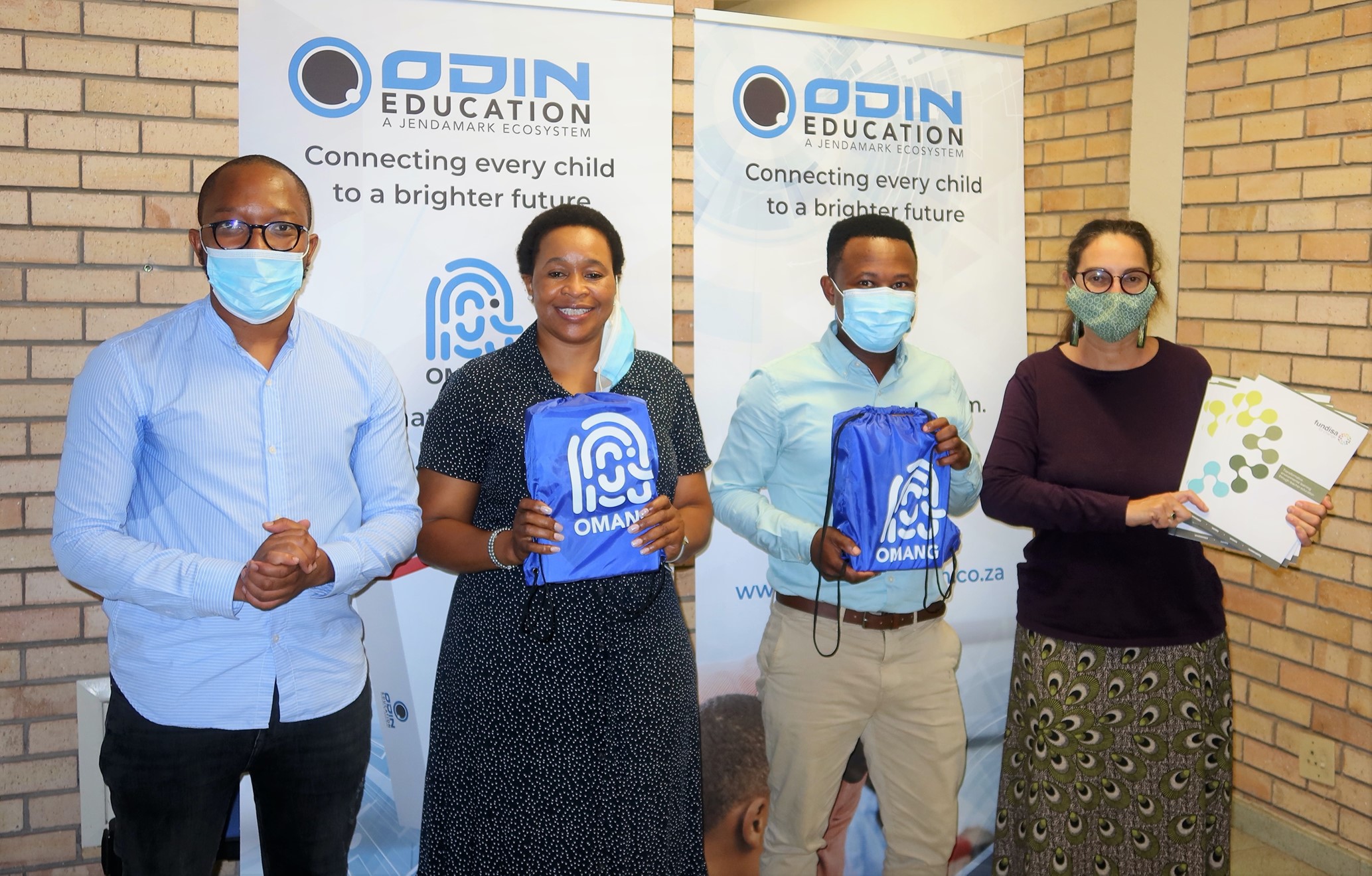
Fundisa for Change launches the Keep It Cool: Climate Change Teacher Professional Development Course
On the 23rd April 2021, Fundisa for Change launched an online course as part of the Keep It Cool: Climate Change Education Project (KIC:CCE) for teachers.
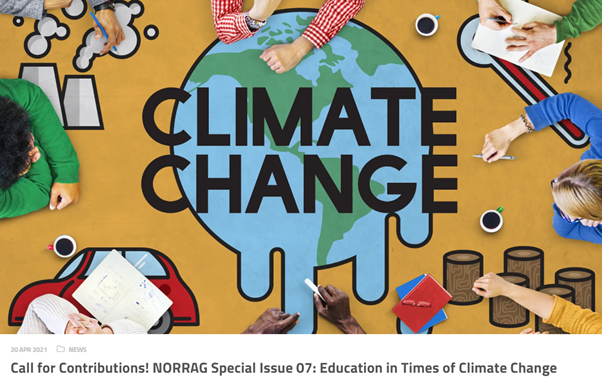
NORRAG Special Issue #7: Education in Times of Climate Change
NORRAG, an associate program of the Graduate Institute of International and Development Studies, Geneva, Switzerland, invites contributions to NORRAG Special Issue #7 with a focus on Education in Times of Climate Change. The Guest Editors for this Special Issue are Distinguished Professor Heila Lotz Sisitka and Professor Eureta Rosenberg, from the Environmental Learning Research Centre based at Rhodes University.
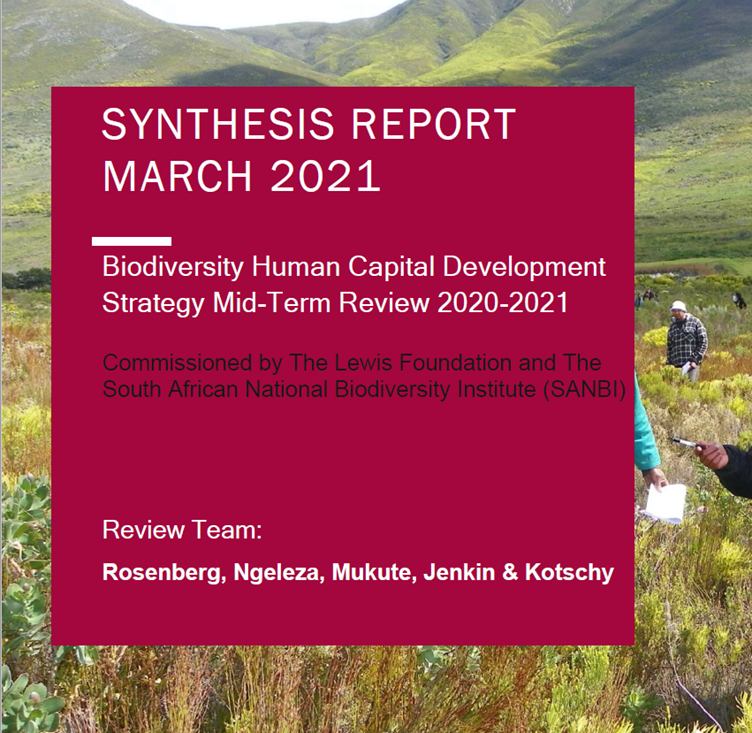
Biodiversity Human Capital Development Strategy Review - Synthesis Report March 2021
The national Biodiversity Human Capital Development Strategy (2010-2030) aims to drive a systemic approach to developing skills for biodiversity, in pursuit of ‘a socially equitable and suitably skilled workforce of biodiversity leaders, professionals and technicians to optimally implement the sector’s expanding and increasingly complex mandate’1.
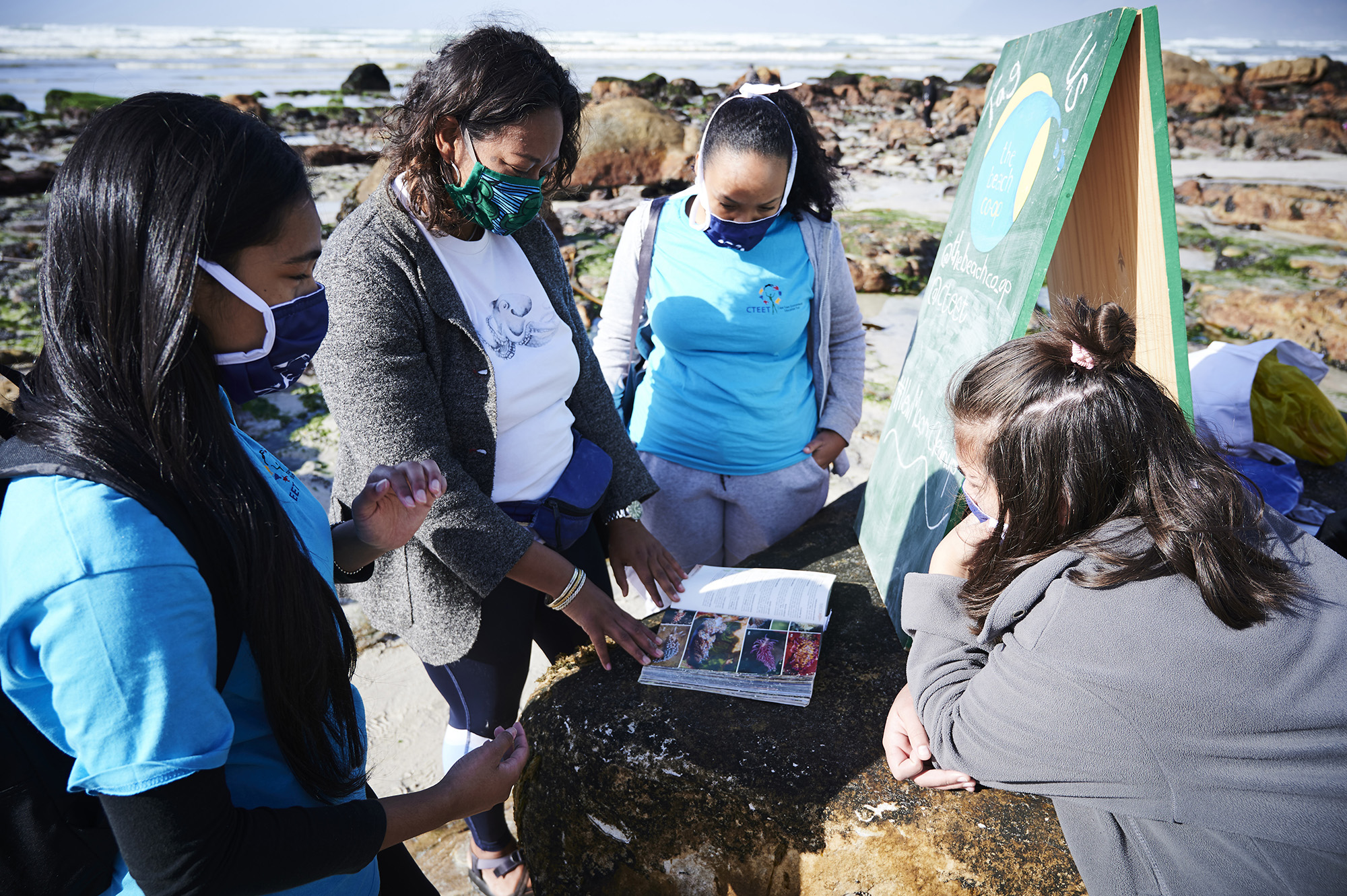
Aaniyah Omardien - Scholar Activist within the ELRC
Meet our new PhD candidate Aaniyah Omardien, who is conducting co-creative practice-based research that explores innovations in public pedagogies of care for the hydro-commons in a South African context.
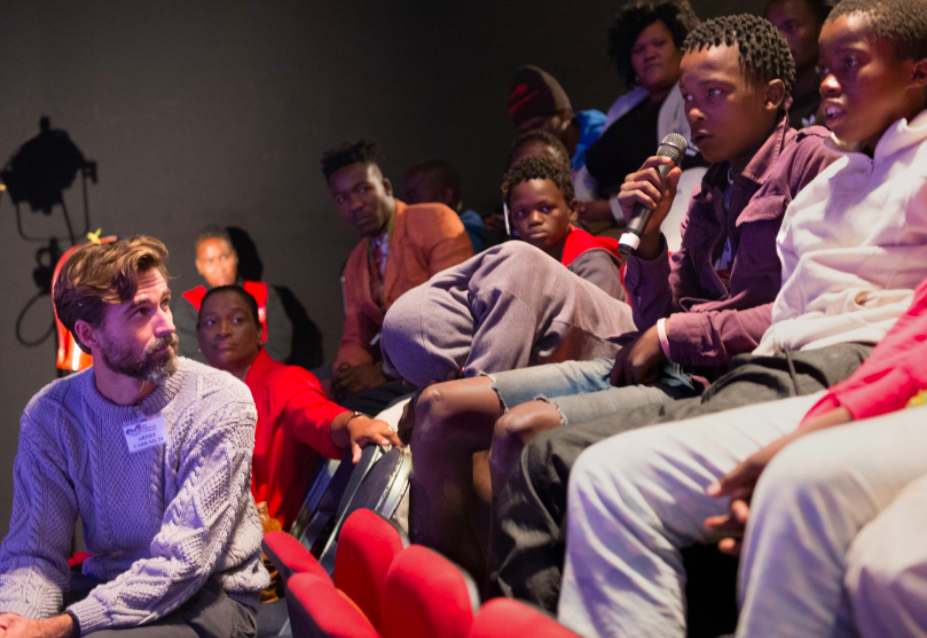
The South African play that’s tackling the scourge of the street drug whoonga
The drug whoonga has plagued South African communities for at least a decade, yet only gained significant public attention when it appeared more visibly in the inner-city and surrounding suburbs of Durban, the major city in the country’s KwaZulu-Natal province.
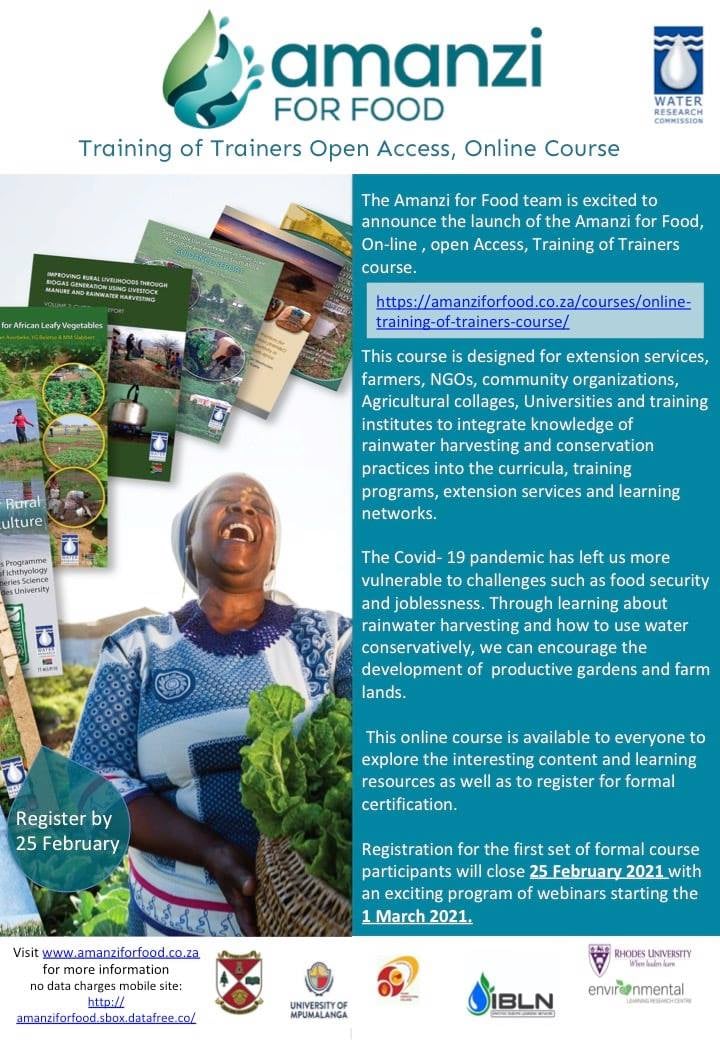
Amanzi for Food - Training of Trainers online Course Data free for South African mobile users
The Amanzi for Food team is very excited to announce that a data-free version of the Amanzi for Food website and the online Training of Trainers course has been developed.
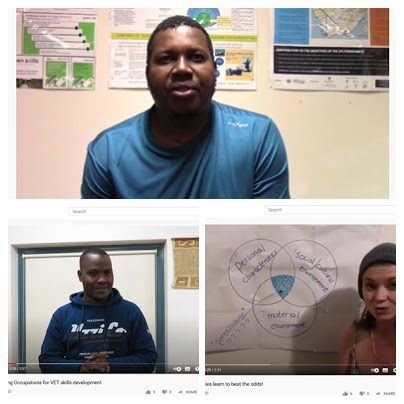
3-Minute Thesis challenge
Post Graduate students and Postdoctoral fellows were recently invited to make a 3-minute thesis video sharing their research with the general public!
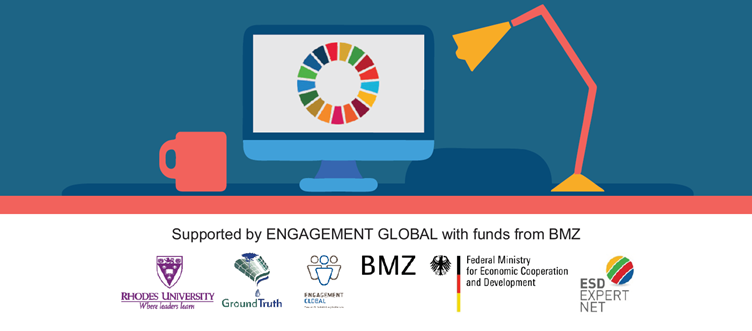
ESD ExpertNet Workshop: Bridging to SDGs through Action Learning
The webinar will be hosted by Prof Rob O'Donoghue and Dr. Jim Taylor with support from Charlene Russell at GroundTruth, and will share action learning of young sustainability professionals who have been engaging with the SDGs in Mexico, India, South Africa and Germany, over a year-long mentoring for ESD-Leadership programme

Living Catchments Project - Postgraduate Bursaries 2021
The South African National Biodiversity Institute (SANBI) is leading the implementation of the Living Catchments project (LCP) in partnership with the Water Research Commission through funding from the Department of Science and Innovation.
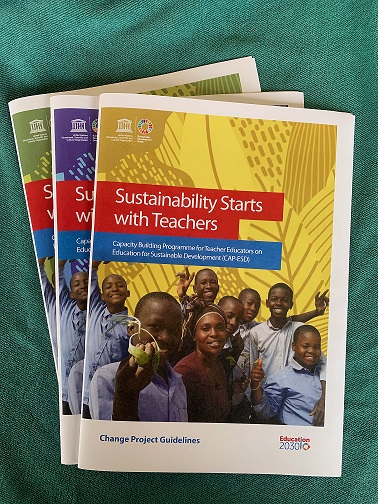
Zambia, Lesotho and South Africa take SST up a notch
The Sustainability Starts with Teachers (SST), is bringing together Teacher and TVET educators for an intensive regional course, following successful in-country workshops in the three countries. The course will be hosted virtually by the Environmental Learning Research centre at Rhodes University for a twenty-day period from the 14th of September to 13th November 2020.
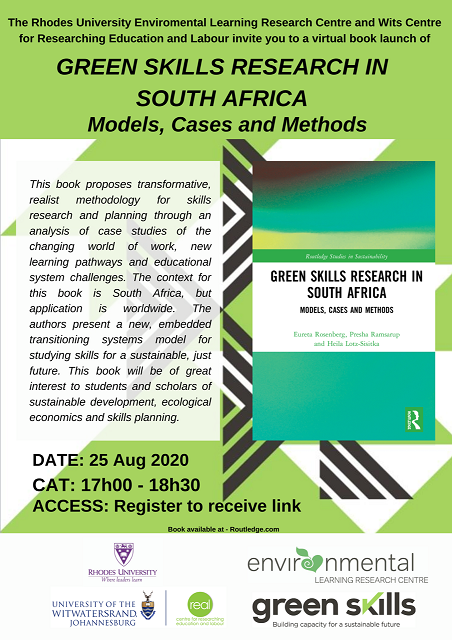
Book launch: Green Skills Research in South Africa
The Rhodes University Environmental Learning Research Centre and Wits Centre for Researching Education and Labour invite you to a virtual book launch of Green Skills Research in South Africa
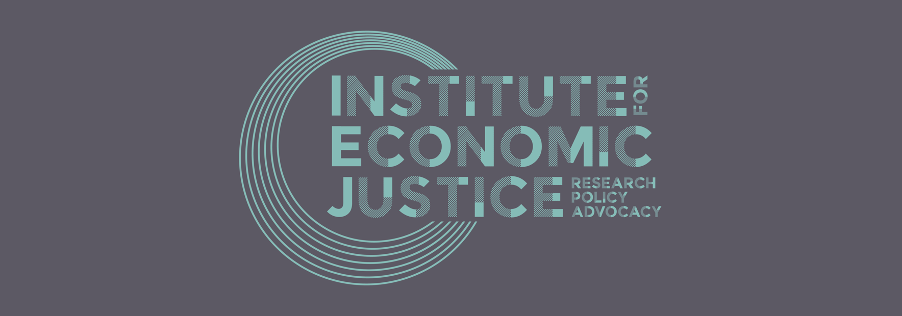
Announcement: The Institute for Economic Justice (IEJ) is hiring
If you are interested in joining the Institute for Economic Justice (IEJ) team, now is your chance! They are advertising three exciting posts: * Senior Researcher: Economic and Climate Justice * Junior Researcher: Economic and Climate Justice * Part-time Communications Officer
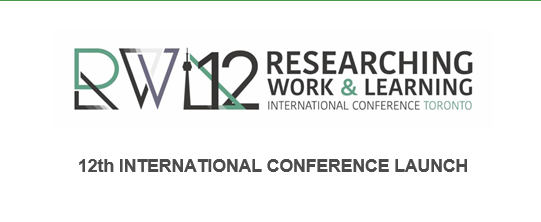
12th International Researching Work & Learning Conference Launch
Calling All Researchers and Practitioners of Work & Learning, You are invited to join scholars, policy-makers and practitioners from around the world in Toronto (Canada) for the 12th Researching Work & Learning (RWL) Conference on July 14-16, 2021.
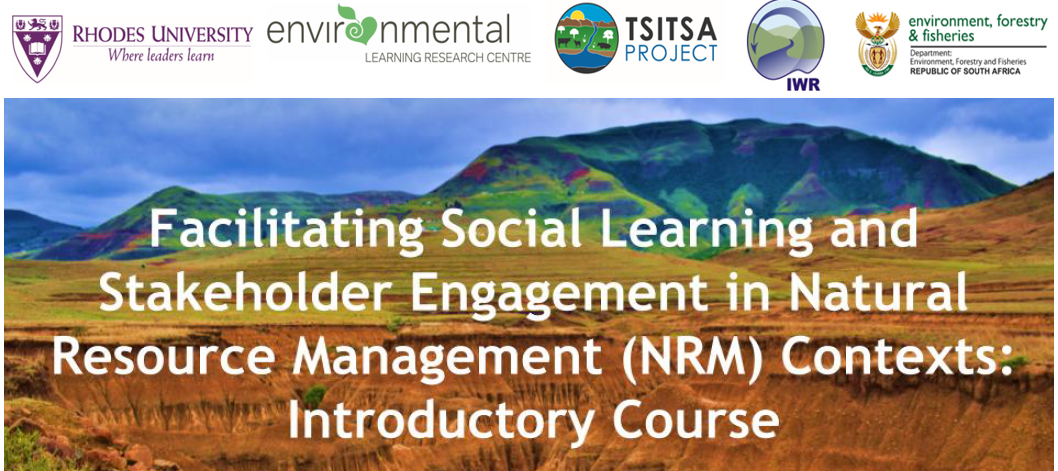
New Online Course: Facilitating Social Learning & Stakeholder Engagement in the context of NRM
Facilitating Social Learning & Stakeholder Engagement in the context of Natural Resource Management: Introductory Course Rhodes University and the Tsitsa Project are excited to announce the opening of registrations for this new national level online course. The course aims to inform and strengthen the existing and future practice of educators, trainers, facilitators (and people interested in these roles) working in NRM contexts with up-to-date theory, methods and processes. Participant practices will be strengthened through a series of assignments tailored by students and their mentors to meet their contextual and organisational needs.

Internship: Communications Specialist for the SARChI Chair of Global Change and Social Learning
The SARChI Chair for Global Social Change and Green Skills Learning Pathways, housed in the Environmental Learning Research Centre at Rhodes University, is seeking a talented and enthusiastic communications specialist intern to support the communications function of the SARChI Chair.

Development of a Cost Benefit Evaluation Online Tool
Development of a Cost Benefit Evaluation Online Tool At the 2019 National Skills Summit, the Minister of Higher Education noted that South Africa has a significant budget for PSET, but seemingly has less to show for it. In light of these questions, the Minister for Monitoring and Evaluation in the Presidency asked PSET role players to strengthen their evaluations to show whether we are doing the right thing (relevance and impact) and whether we are doing the right thing right (effectiveness and efficiency).
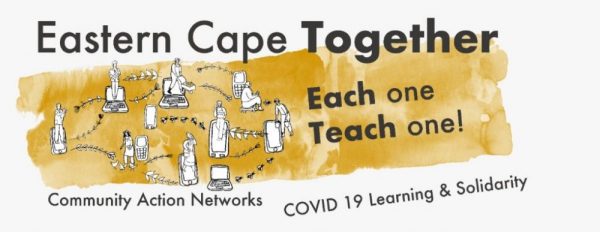
ELRC contributes to co-engaged response to COVID-19 in Eastern Cape Together Iqonga LoThungelwano (community action network) network
As Covid-19 infections escalate in the Eastern Cape, confusion, misinformation and anxiety are rife. The need for clear, reliable and locally relevant information is urgent, especially in isolated rural communities. A coalition of farmers, students, academics and activists are using WhatsApp messages in vernacular isiXhosa to share information.
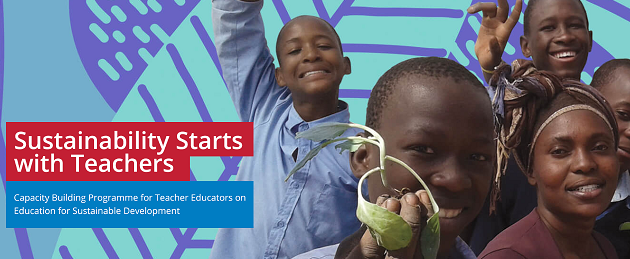
Sustainability Starts with Teachers web portal is now on-line!
We celebrated World Environment Day on the 5th of June 2020. To mark this day, UNESCO’s Regional Office for Southern Africa announced that the NEW website on Education for Sustainable Development for teachers and teacher educators in the Southern African region is NOW LIVE!
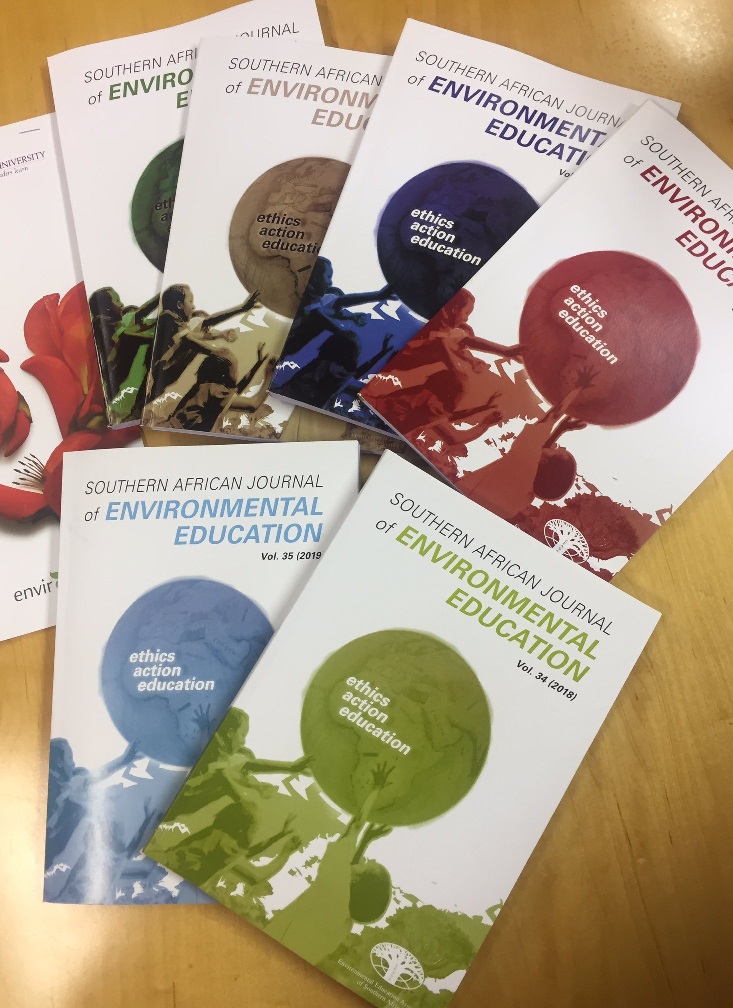
SAJEE Volume 36 Announcement
The 2020 Special Issue of the Southern African Journal of Environmental Education (SAJEE) is out! Volume 36 will be published continuously over the course of the year. It opens with an Editorial scoping the focus of this Special Issue on environmental education in a time of multiple, multi-dimensional crises. It is followed by our first five papers: a Think Piece on community care work, and four research papers. The research shared by these authors, from three African countries, spans across schools, industry and vocational training, and community knowledge contexts.
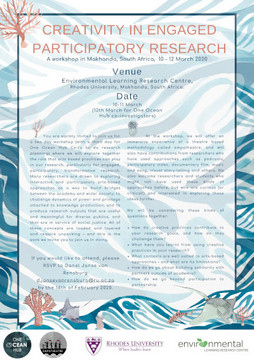
Creative Practice Methodologies in Participatory Research
Creative Practice Methodologies in Participatory Research: A workshop in Makhanda, South Africa, 10 – 12 March 2020
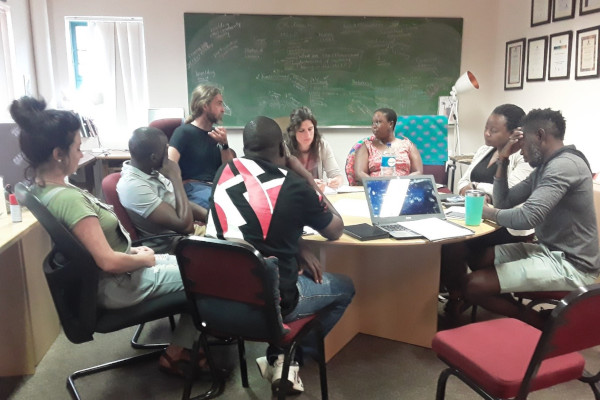
This Week In The ELRC 27 - 31 January 2020
The 2020 academic year may have just started at Rhodes University but the Environmental Learning Research Centre (ELRC) is already in a full motion.
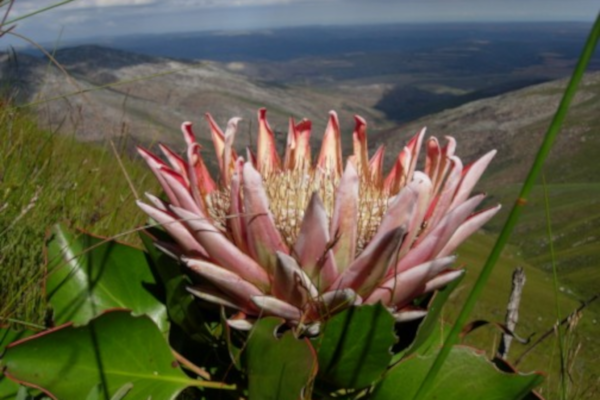
Reflective Social Practice for Transformative Social and Environmental Learning
The ELRC and The Proteus Initiative, in collaboration, present a four module Postgraduate Short Course.
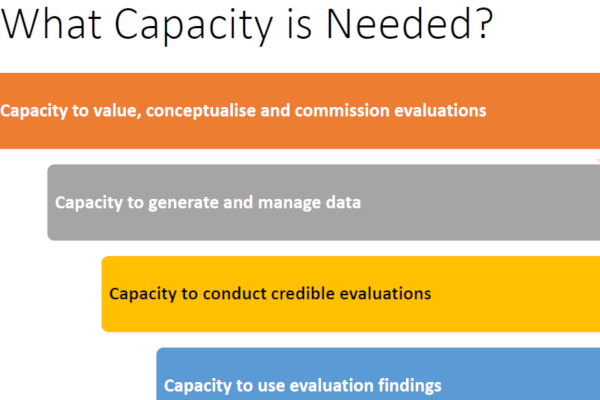
Rhodes University - WWF South Africa presents at SETA CRWG
The Rhodes University - WWF South Africa Research Team presented at the Collaborative Research Working Group meeting in November.
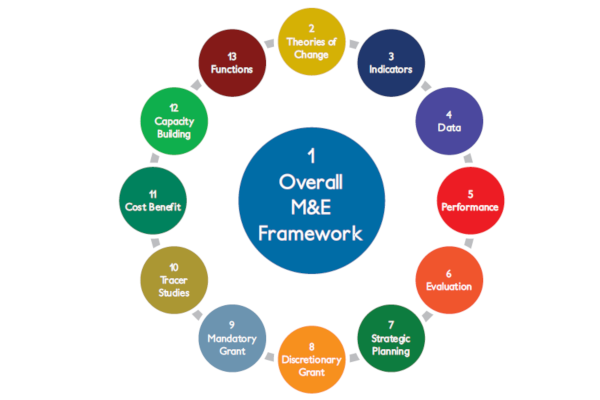
Theory of Change Workshop
On 11 October 2019 colleagues working on the Monitoring and Evaluation in a SETA Environment programme will meet with over 70 professionals from the Department of Higher Education and Training, the National Skills Authority and the SETAs.
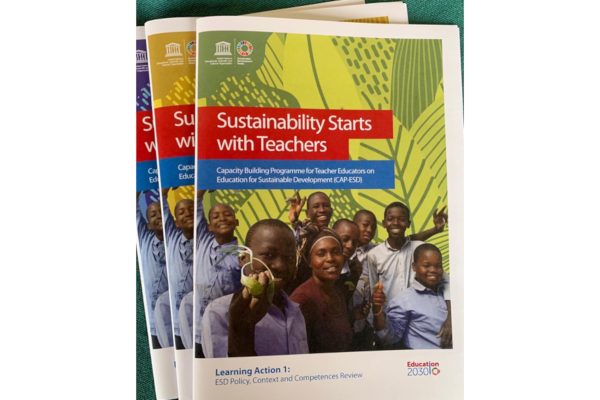
SADC Course for Teacher and TVET Educators off to good start at RU!
This week saw the ‘kick off’ of the regional SADC Sustainability Starts with Teachers (SST) Advanced Capacity Building Course at Rhodes University, South Africa.
Lalela uLwandle - Listen to the Sea
Lalela uLwandle will be toured and performed in a number of coastal towns in KwaZulu Natal, including a run at the UKZN Square Space Theatre in Durban, from the 7th to the 19th of October.
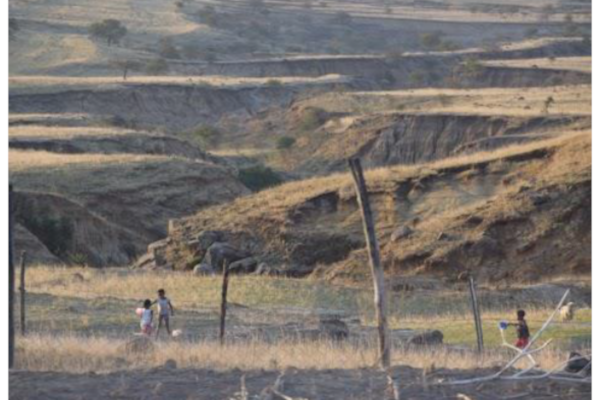
Land Degradation Research Priorities
This month Prof Eureta Rosenberg joined other researchers and policy makers to discuss the causes of land degradation, and shared among other studies, the ELRC's research regarding Mining.

Providing Capacity Building Support to Teacher Educators for ESD in Southern Africa
Many countries around the world have made the implementation of United Nations’ Sustainable Development Goals (SDGs) one of their top development priorities.
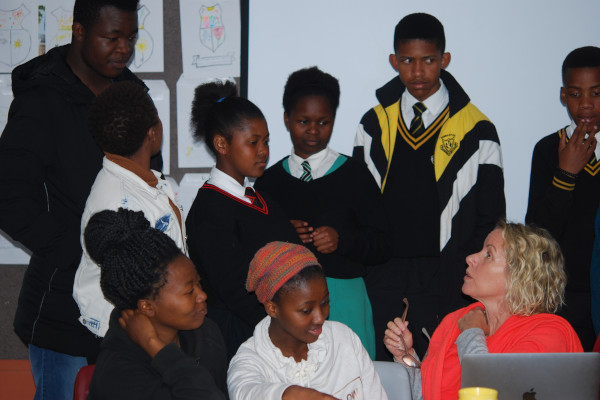
Makhanda Youth share stories of their City for Documentary
Pupils from Seventh Day Adventist School, Ntsika High School and a group of out-of-school youth were hosted by Rhodes University’s Environmental Learning Research Centre (ELRC) in a workshop with international film director, Amanda Blue.
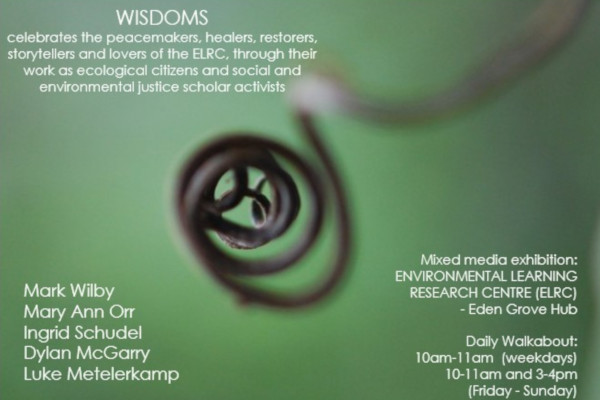
Mixed Media Exhibition at the ELRC
WISDOMS celebrates the peacemakers, healers, restorers, storytellers and lovers of the ELRC, through their work as ecological citizens and social and environmental justice scholar activists
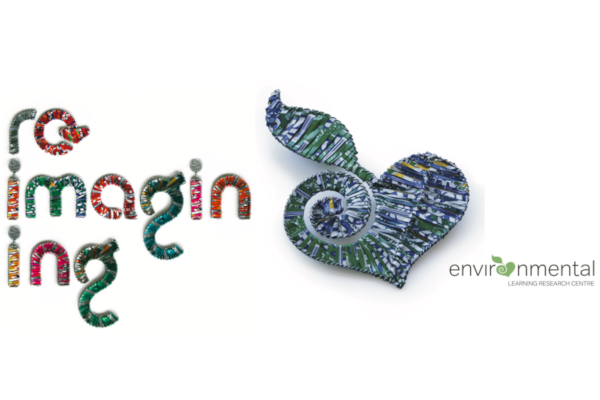
The Re-Imagining Festival
The Environmental Learning Research Centre (ELRC) is excited to announce a bold new platform within the National Arts Festival programme entitled: Re-imagining Creative Practice in Sustainability.
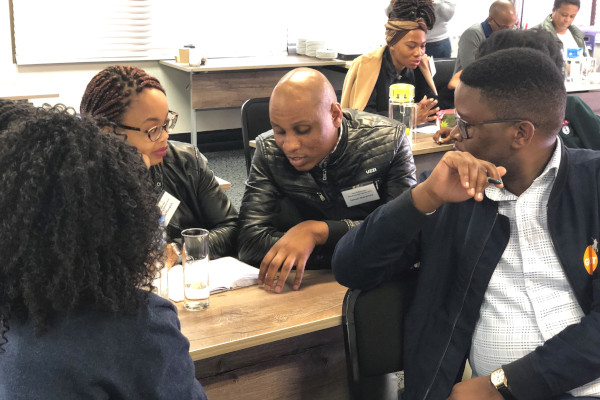
Consultation with SETA M&E roleplayers
Some 50 skills and evaluation specialists gathered at the ServicesSETA in Parktown on 12 June 2019 to discuss proposals to streamline the SETAs' monitoring and reporting system, and strengthen SETA evaluations and their use.
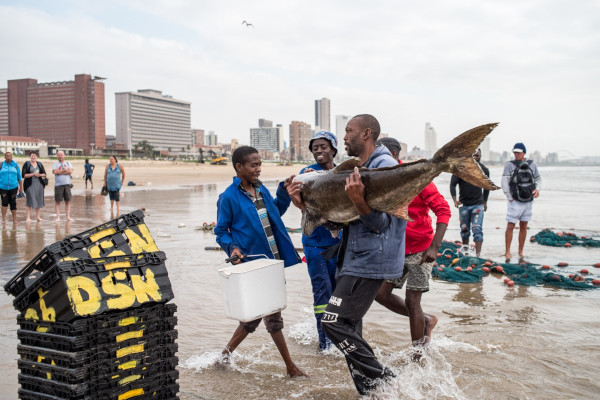
The Prodigal Son is caught in a net...
"Are those screens… are they battery operated?” these are the most frequently asked question by children visiting the uShaka Marine World Aquarium when seeing the large marine tanks (and the marine life inside them) for the first time.
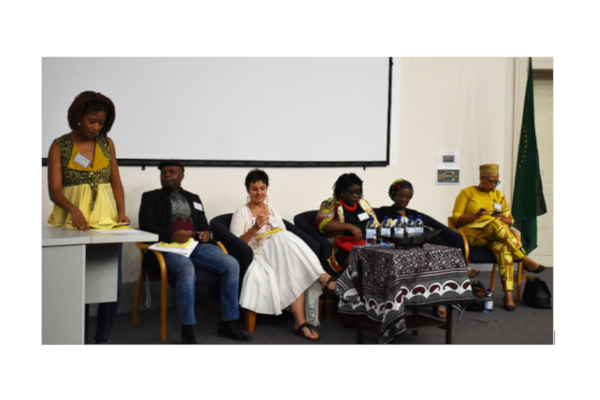
Reconfiguring, reshaping and reimagining our region
As part of International Week, which started off with a vibrant parade hosted by the Rhodes University International Office, an inaugural Internationalisation Summit was held on 19 May.
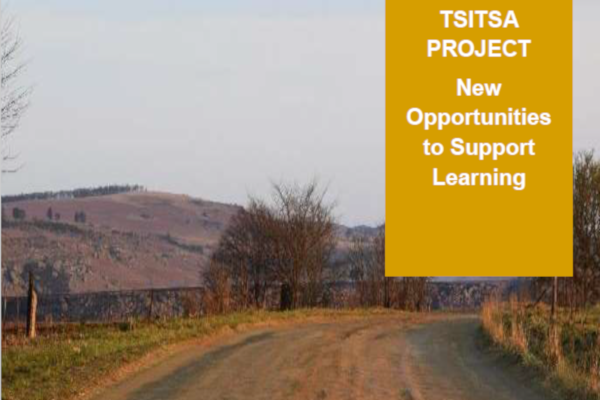
Tsitsa Project Part-Time Positions Available
Opportunities to lead Capacity Development; Knowledge Management; Participatory Monitoring, Evaluation, Reflection & Learning
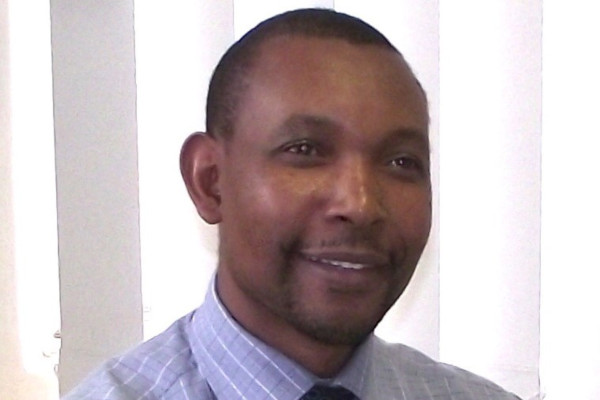
Farewell, dear Tichaona 7/12/1965 - 16/04/2019
It is with a sense of great pain and loss that we offer this tribute to Dr Victor Tichaona Pesanayi, leading southern African environmental education scholar in the Environmental Learning Research Centre (ELRC).
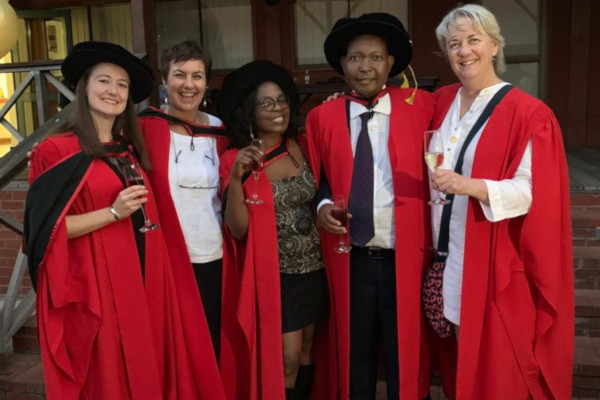
5 ELRC Doctoral Graduates in 2019
The ELRC is exceptionally proud of our five PhD Graduates for 2019. All of their studies make an important contribution to the field of environmental education research in Southern Africa, addressing education system transformation, transformative learning and ways of enhancing education and training systems in southern Africa.
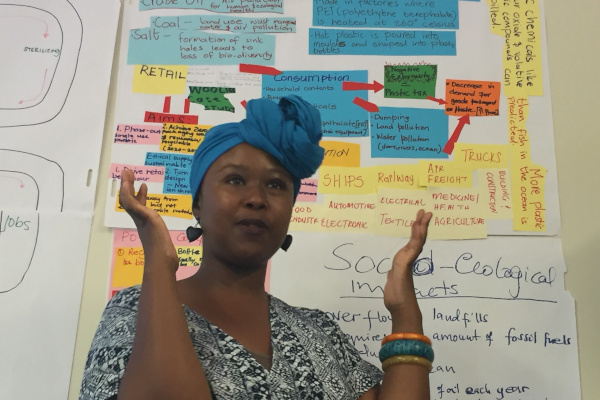
Is there value in a value chain analysis?
This paper explores higher education learning outcomes associated with an ESE activity in which university students analyse commodity value chains, from T-shirts to plastic water bottles, in Sweden and South Africa.
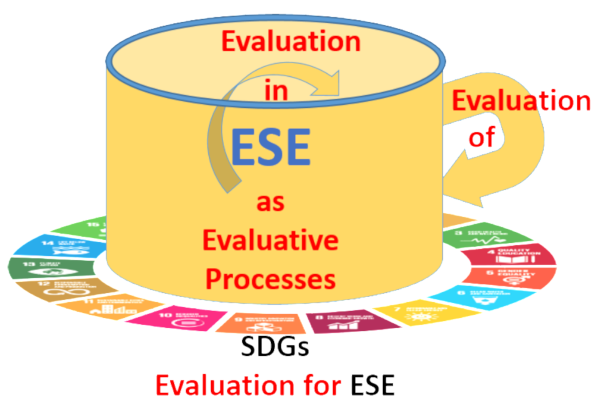
Evaluation and ESE at the CIES2019 Conference in the US
How is evaluation a game changer in environmental sustainability education? This is the key question behind a round table discussion on the first day of CIES2019, facilitated by Deepika Joon and the ELRC’s Prof Eureta Rosenberg, who holds a Chair in Monitoring and Evaluation at Rhodes University.
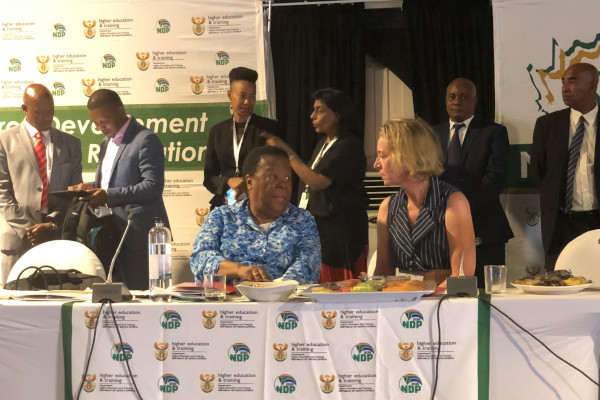
Reflections from the National Skills Conference
Opening the National Skills Conference on 14 March, Naledi Pandor, Minister of Higher Education and Training, highlighted three things delegates need to attend to..
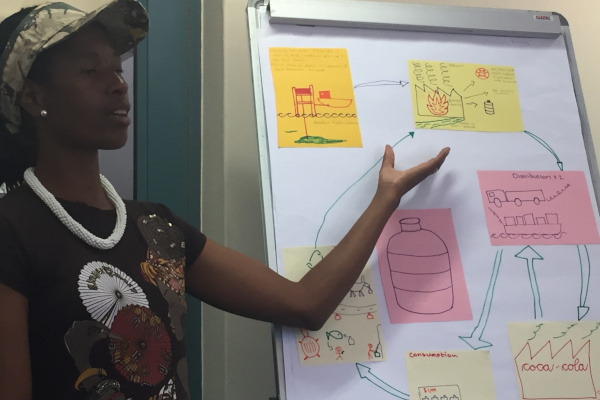
2019 Masters Course is Underway
New M.Ed. students from around South Africa and Namibia arrived at the ELRC this week to start a course in environment and sustainability education. Staff and post-docs joined the students for a workshop on the commodity chain of the plastic bottle.

Professor Emeritus Jay O’Keeffe 1950 - 2018
Jay O’Keeffe was a passionate river ecologist, bringing people together towards holistic approaches to sustaining rivers around the world.
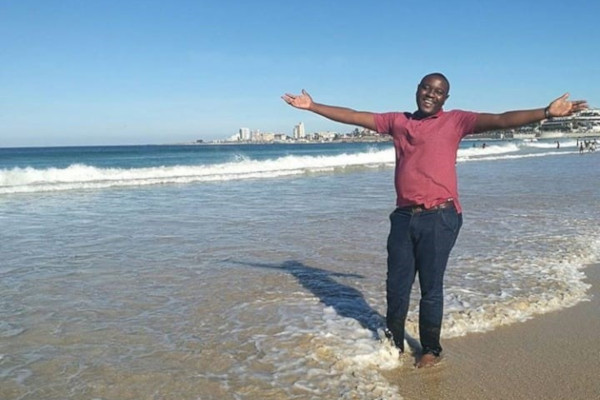
Rest In Peace, dear Kuda 2/3/1983 – 1/2/2019
It is with a deep sense of grief and pain that the Environmental Learning Research Centre at Rhodes University announce the recent passing of Kudakwashe Lovejoy Mudokwani, one of our talented Masters scholars. Kuda passed away tragically on Friday 1 February 2019 in a fatal car accident in Zimbabwe.
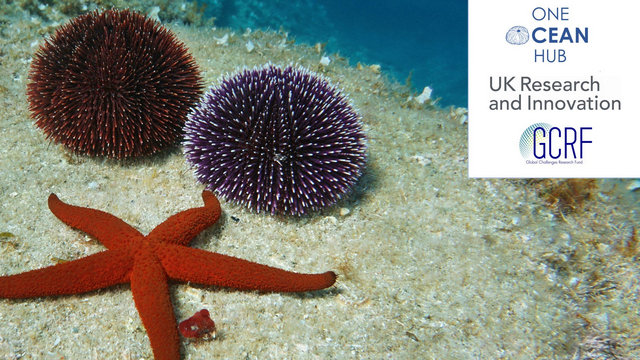
Global Challenge Research Fund Partnership for Rhodes University
Rhodes University is pleased to announce its role as key partner in a major global research programme to influence ocean health and integrated ocean governance for equitable and inclusive sustainability.
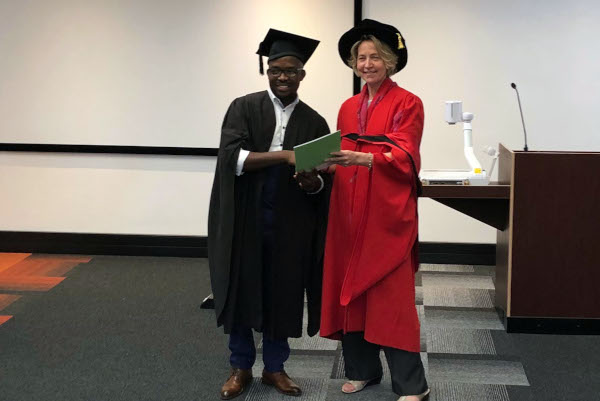
Green Skills Certificate Ceremony held at Wits REAL
Six professionals were awarded the first ever Rhodes University Certificates of Competence in Green Skills Research and Planning, on 26 October 2018. The awards were handed out by Prof Eureta Rosenberg at the Centre for Researching Work and Learning (REAL) at Wits University, hosted by REAL’s director, Dr Presha Ramsarup.
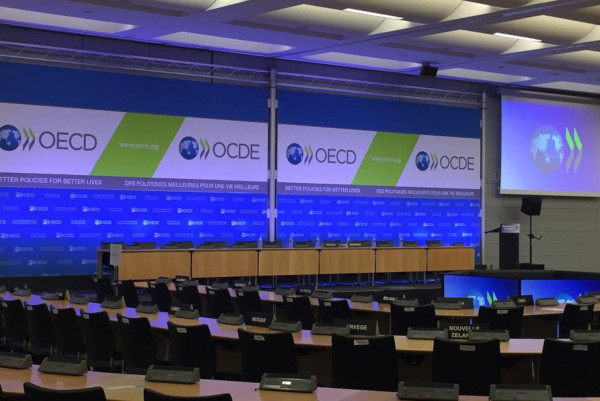
Prof Rosenberg presents at Second Global Forum on Green Economy in Paris!
How can countries build a critical mass of professionals who understand the risks and opportunities of a transition to an inclusive green economy, and have the knowledge and skills to put in place relevant policies?
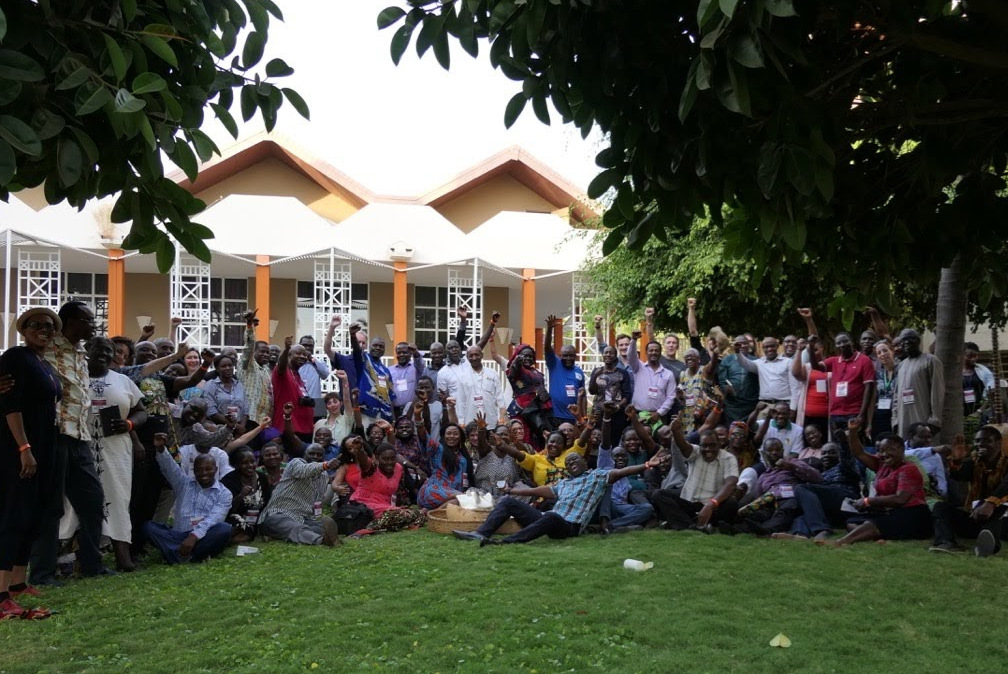
People Power! People Power Now!
“People Power! People Power Now!”, this was the refrain most heard at the recent Alliance for Food Sovereignty in Africa (AFSA) Conference held in Dakar, Senegal from 4-7 November 2018.
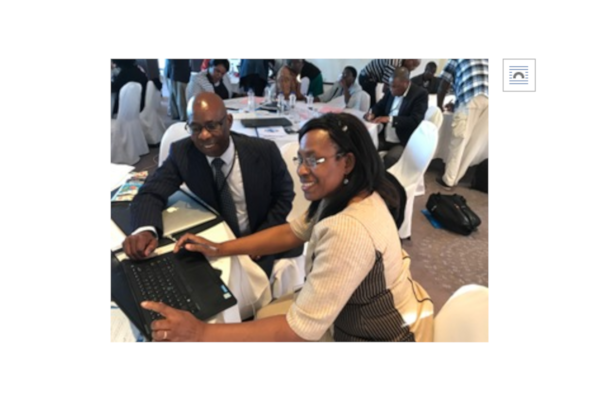
New Project for Teacher Education in Southern Africa!
Recent research on educational quality confirms that teachers are central to educational transformation, and thus also for strengthening social learning systems. With this in mind, the SARChI Chair in Global Change and Social Learning Systems has been working with UNESCO on an initiative to strengthen teachers’ capacity for engaging with sustainability across southern Africa.
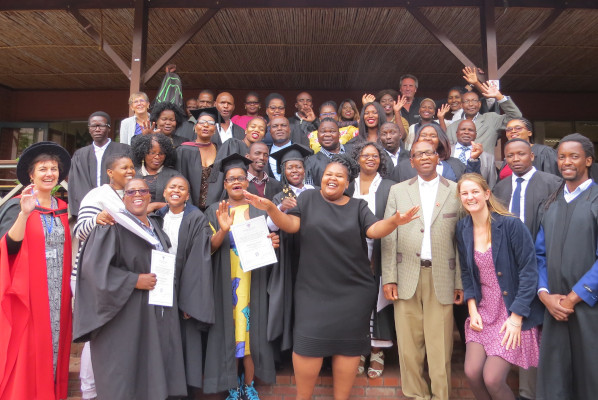
Amanzi for Food Trainer of Trainers participants graduate!
A recent graduation ceremony hosted by the ELRC celebrated participants of the Amanzi for Food Training of Trainers course. All participants received attendance letters while those who also completed assignments graduated with a NQF Level 5/6 certification.
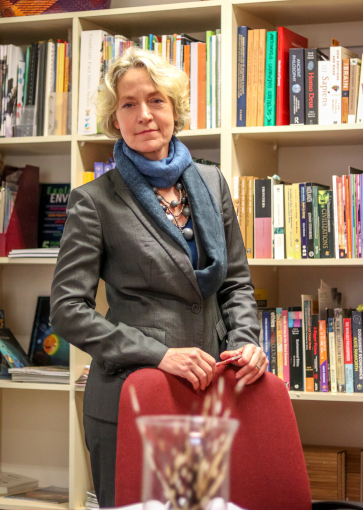
Chair of M&E in a SETA Environment Appointed
In March 2018 Rhodes University (ELRC, NALSU and Community Engagement) were awarded a Research Chair to focus on Monitoring and Evaluation (M&E) in a SETA Environment. To be rolled out over three years (August 2018 – March 2020), this research programme is an initiative of South Africa’s 21 Sector Education and Training Authorities (SETAs) and strongly supported by the Department of Higher Education and Training (DHET). It is funded in the first instance by the BANKSETA and ServicesSETA.

Amanzi for Food Training of Trainers course participants graduate!
A recent graduation ceremony hosted at the ELRC honoured participants that completed the Amanzi for Food Training of Trainers course and therefore received NQF 5/6 certification. It was a proud and joyous occasion for this group of dedicated participants.
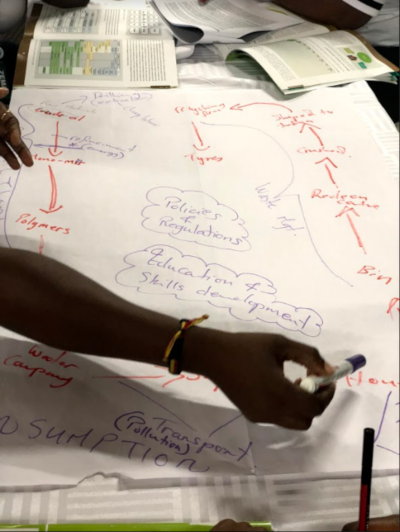
DEA – DBSA Green Skills Resource introduced by Rhodes and Wits
Enabling Green Skills: Pathways to Sustainable Development is a new resource produced in the Green Skills System Capacity Building programme.
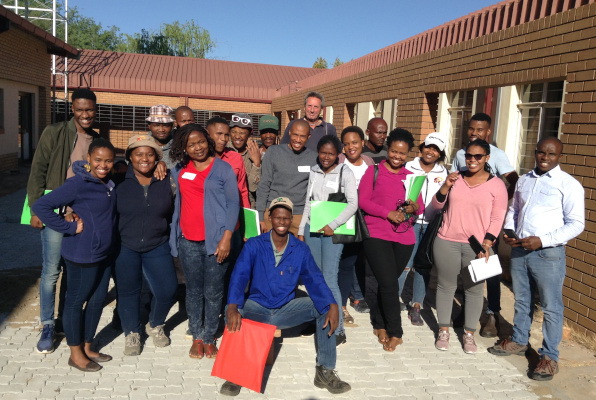
Training of Trainers course presented at Taung
The Amanzi for Food “Training of Trainers” course held at Taung College from 02-04 October 2018 in North West was well received by lecturers, farm workers and extension officers.
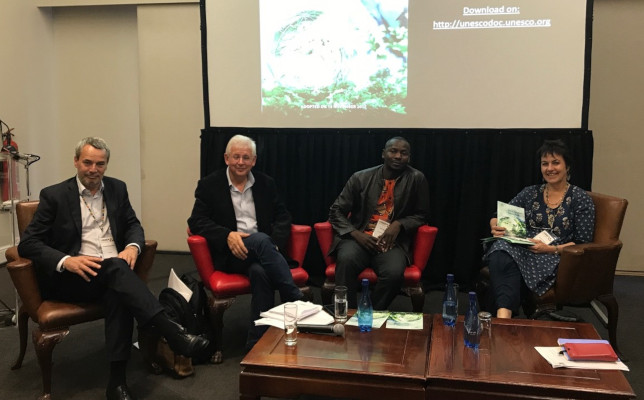
Panel Discussion on Ethical Principles in Relation to Climate Change
An interesting new development in responding to climate change is UNESCO’s Declaration on Ethical Principles in Relation to Climate Change. Educational approaches to climate change ethics formed the focus of a panel discussion convened by UNESCO at the recently held 6th International Conference on Ethics Education in Stellenbosch, South Africa.
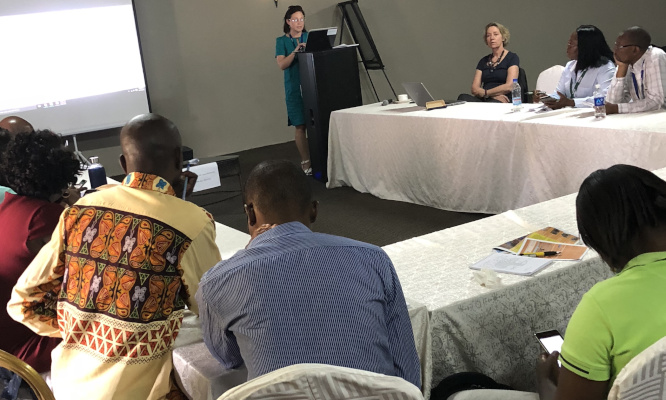
SAJEE Honoured to present in Zambia, EEASA 2018
A fruitful publications workshop was held focussing on the Southern African Journal of Environmental Education (SAJEE) at the EEASA2018 Conference in Zambia over the week of 17 to 20 September 2018.
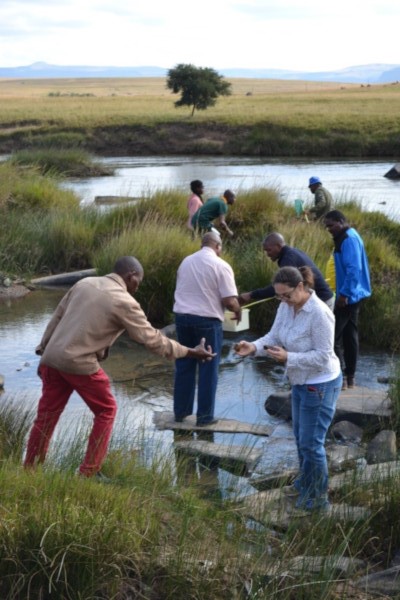
Teachers participate in a Fundisa for change “Teaching Water” course
From 22-27 May, 10 teachers and 2 Department of Education officials met – 2 groups from either side of the Tsitsa River catchment. These teachers participated in a SACE accredited Teaching Water in Social Sciences Fundisa course funded by the Water Research Commission.
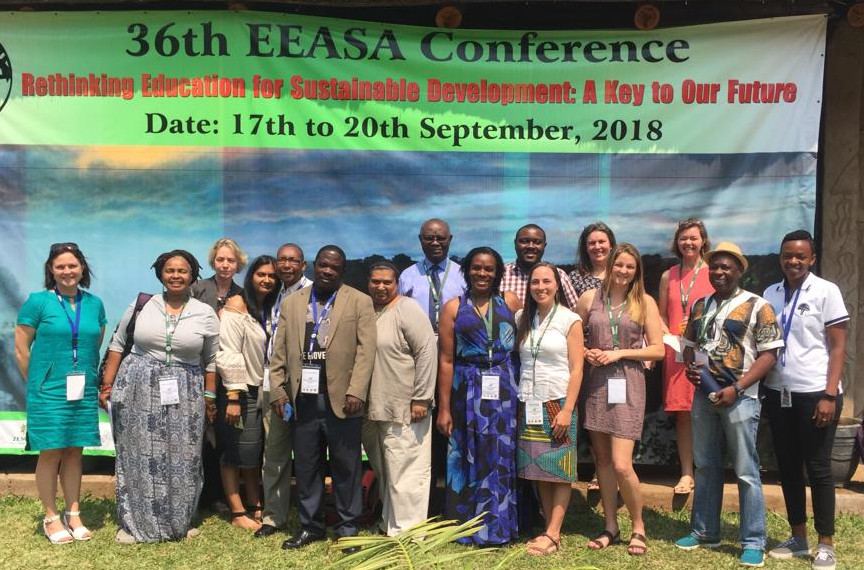
Professor Eureta Rosenberg presents opening keynote address at EEASA 2018
Rhodes ELRC staff and students travelled to Livingstone, Zambia, to participate in the 36th Conference of the Environmental Education Association of Southern Africa, from 17-21 September. Prof Eureta Rosenberg presented the opening keynote address.
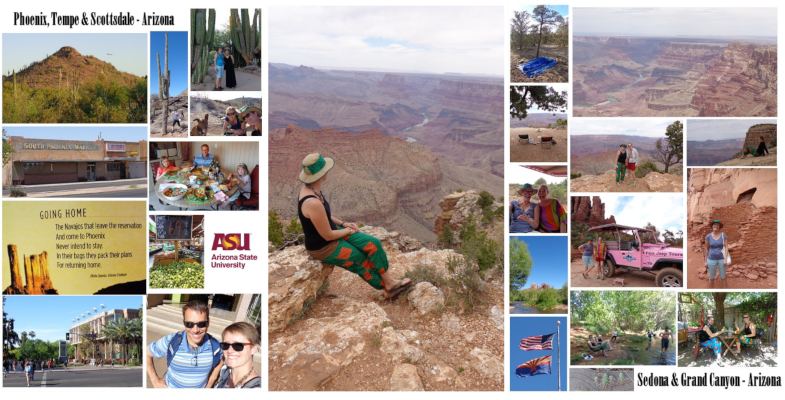
From A - B (Arizona to Brighton): First steps on a postdoctoral research journey
On the 1st of April 2018 I officially started my Postdoctoral Fellowship at the Environmental Learning Centre, and on the 9th of April I was already off on the first international research trip of my career post-PhD. I spent three weeks in Arizona (going from ‘A’), United States, and three weeks in Brighton (to ‘B’), United Kingdom.
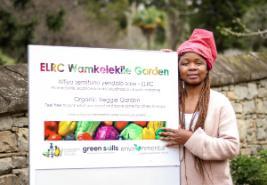
Patience Shawarira Participates in an International Student Exchange
In March 2018, Patience Shawarira and Phindi Sithole spent three months on a student exchange participating in a course called Global Challenges and Sustainable Development, at Jönköping University in Sweden.
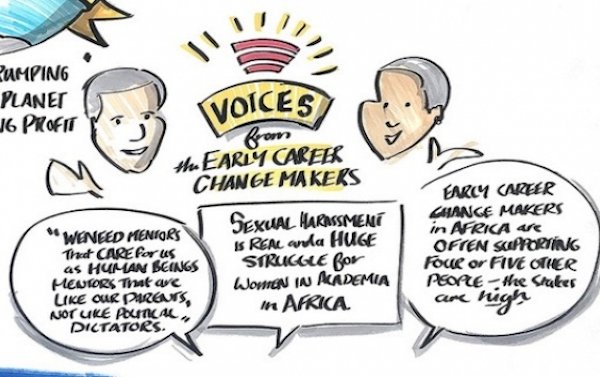
Sustainability worthy of our longing.
“We are longing for mentors that take care of us as human beings; mentors that act like parents, not like political dictators.” These are the words of Kuda Mudokwani from Zimbabwe, reflecting on struggles and longings of early career change-makers in Africa for sustainable transformations.
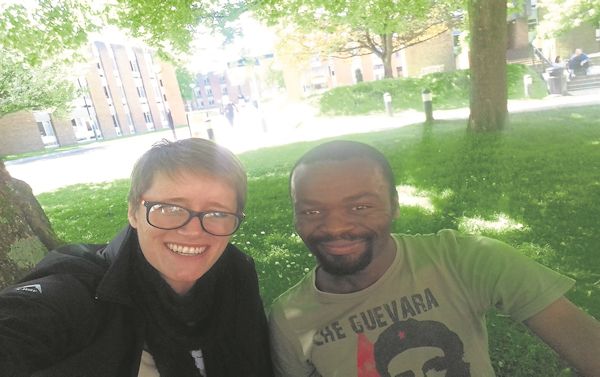
From Muden, Greytown to the world: Local youths shine in sustainability research.
TWO bright young people from Umvoti/Greytown traveled from different parts of South Africa to attend the Summer School at the University of Sussex, UK, in May this year.
.jpg)
Transgressive learning as a way forward
Although lecturers and teachers play a huge role in educating students and learners, the dynamic nature of the contemporary world requires new types of teaching and learning processes to be developed, both for inside and outside of classrooms.
_Stories.jpg)
Volume 34 of the Southern African Journal of Environmental Education (SAJEE) has been published!
Volume 34 of the Southern African Journal of Environmental Education (SAJEE) has been published!
T-learning as Seedbed of Transformation
Qualities and processes of learning and change are seldom given the depth perspective needed in transformations to sustainability research
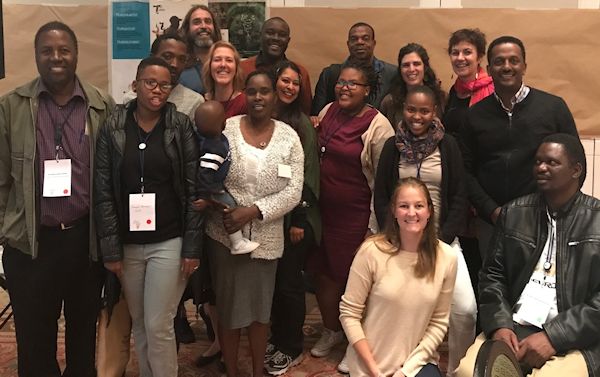
Seedbeds of Transformation in Africa
The Conference aimed to discuss the Sustainable Development Goals (SDGs) in synergy to industry, community interests, the political sectors, and society, framing these discussions in how best to situate these SDGs within the African context.
T-learning Case Study Updates: End of Year 2
The T-learning research programme being implemented by the ELRC for the International Social Sciences Transformations to Sustainability Research Programme is already in its third year of implementation. This short blog piece shares a brief update from all of the nine country case studies being developed in this research programme.
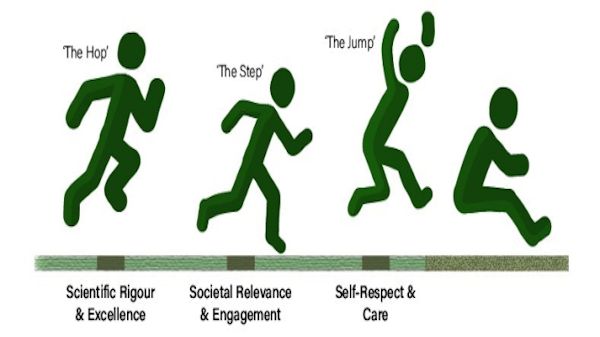
Transdisciplinary PhD Journeys
The transdisciplinary triple jump: A three-part movement in which PhD scholars must learn about paying attention to scientific rigour and excellence, societal relevance and engagement, and self-respect and care (Graphic by Caydn Barker).
Professor Heila Lotz-Sisitka conferred as Distinguished Professor
The citation read by Deputy Vice-Chancellor, Dr. Peter Clayton, at Professor Heila Lotz-Sisitkas conferment.
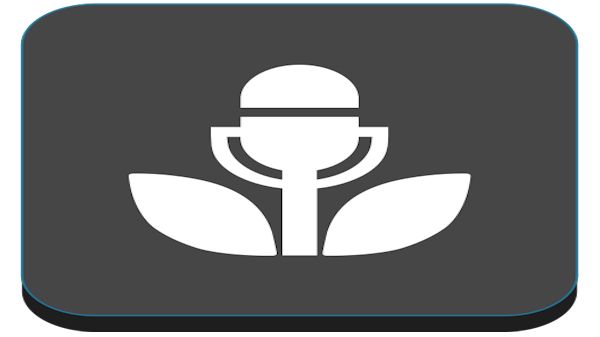
Podcast Series
DayOne is a podcast by/for Cape Town towards better understanding the ways water flows in our city.
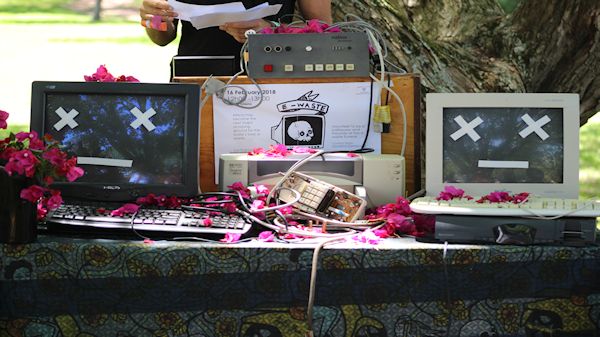
Wasted Life: Where is Away?
The scene was macabrely familiar this past Friday: a gathering of of black-clad mourners, hats and sunglasses to hide the tears, a circle of chairs, flowers, an altar and the dead resting quietly before us. Dr Dylan McGarry, a post-doc fellow from the Environmental Learning Research Centre, began his eulogy:

E-waste Funeral at Rhodes University
EACH YEAR THE PLANET generates some 50 million tons of electronic waste, ranging from mobile phones to toasters.
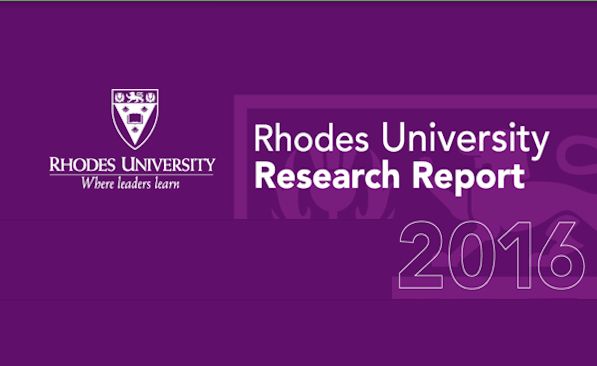
ELRC shines in Rhodes University research report!
Rhodes University’s 2016 Research Report captures impressive research outputs and activities by every department including that of the Environmental Learning Research Centre, situated within the Department of Education
.JPG)
Food For Us Project Update
Towards the end of October, the South African Food For Us team had the privilege of hosting the UNEP 10 YFP programme’s Mr Ryu Koide and Ms Stefanie Chan.
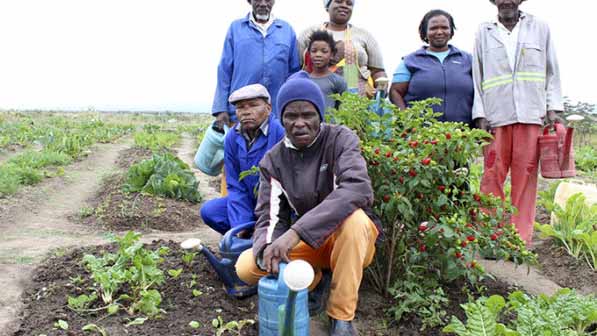
Learn to conserve scarce water
The Rhodes University Environmental Learning Research Centre is offering a free course on rainwater harvesting and water conservation for people training small-scale farmers and subsistence gardeners.
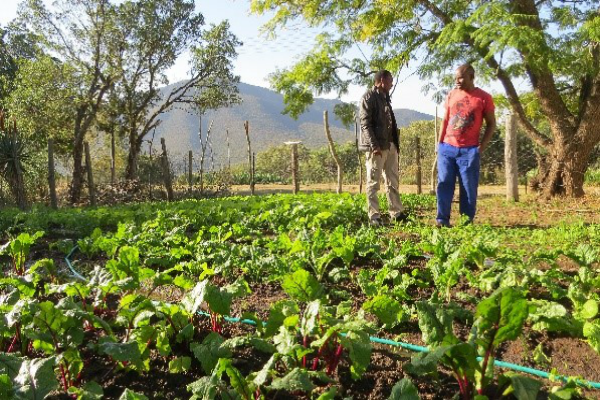
The UNEP sponsored surplus food redistribution application project.
The UNEP sponsored surplus food redistribution application project, Food For Us, has had a busy last few weeks with the project being officially launched at the beginning of August.
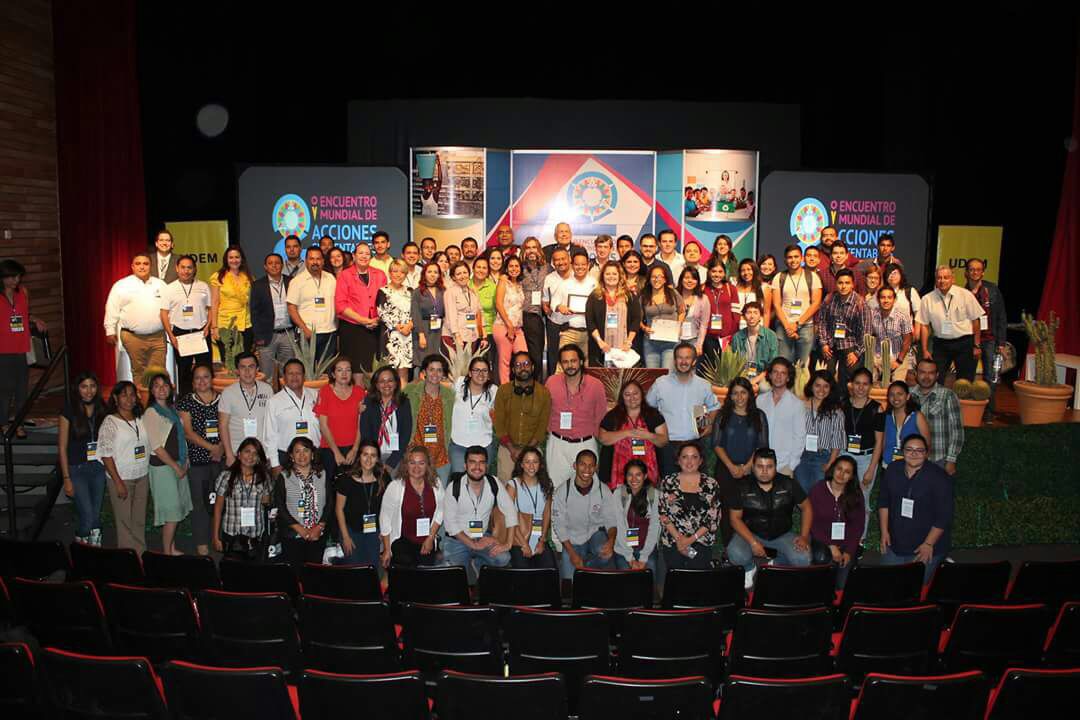
Transgression or Ericka Toledo’s Transcending Aggression, thoughts from Mexico
Translating concepts or words into other languages can transform the concepts entirely.....
Pact Global Award for ELRC Alumni
An alumni of the Rhodes Environmental Learning Research Centre PhD programme, Dr Dick Kachildonda, has recently received global award.
The launch of the Amanzi for Food Phase 2 project.
The Amanzi for food phase 2 was launched with effect from12 March 2017 commencing with a strategic planning meeting at Rhodes University.
UNESCO ROSA - Second regional workshop in Swaziland
UNESCO ROSA -‘Sustainability Starts with Teachers’!Second regional workshop in Swaziland. UNESCO ROSA and its programme partners – workshop in Swaziland from 18 to 21 July 2017.

The UNEP sponsored surplus food redistribution application project.
The UNEP sponsored surplus food redistribution application project, Food For Us, has had a busy last few weeks with the project being officially launched at the beginning of August.
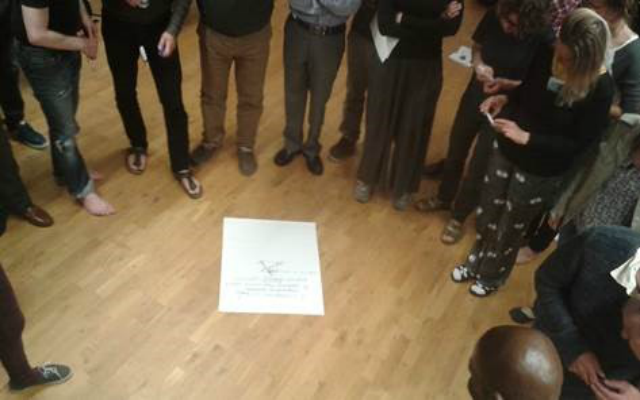
T-learning research school, Visby, Sweden, July 2017
On on 5-9th July the second T-learning research school, hosted by SWEDESD in Visby on the island of Gotland, Sweden.
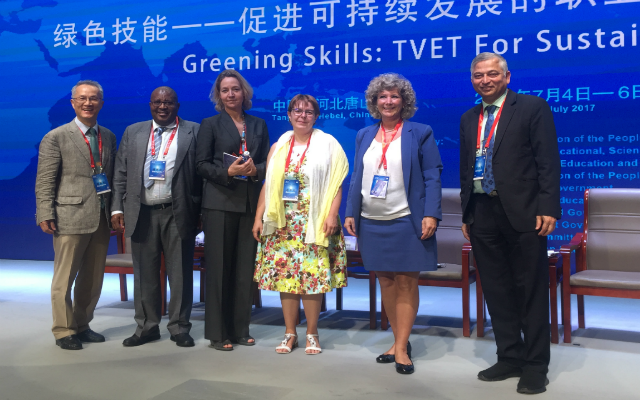
Prof Eureta Rosenberg attended a conference on Technical and Vocational Education and Training (TVET) in Tangshan in the People's Republic of China from 4-6 July 2017
Entitled "Skills on the move: Global trends, local resonances" it was convened by UNESCO to review progress in the implementation of the recommendations for strengthening TVET globally, adopted as the Shanghai Consensus in 2012, and in relation to the Sustainable Development Goals adopted in 2015.
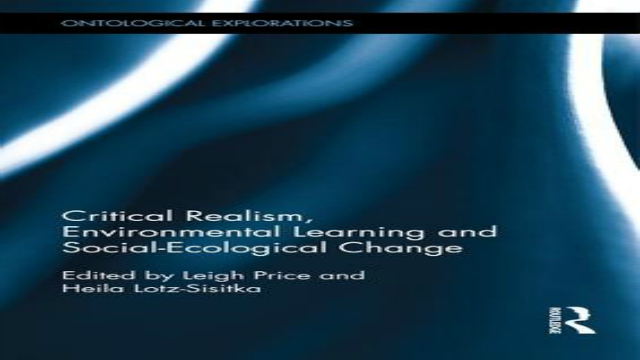
International BOOK AWARD for the ELRC!
The Environmental Learning Research Centre (ELRC) at Rhodes University are pleased to announce that one of their recent publications ‘Critical Realism, Environmental Learning and Social Change’ (Routledge, 2016) was jointly awarded the Cheryl Frank Memorial Prize for 2016. The award was offered jointly to the late Roy Bhaskar for his last book, published posthumously, entitled ‘Enlightened Common Sense’ (Routledge, 2016) and the ELRC book.
DOCTORAL / POST-DOCTORAL RESEARCH OPPORTUNITY
FOCUS: TRANSFORMATIVE SOCIAL LEARNING IN FOOD SYSTEMS Do you have a Master’s degree in environmental education OR environmental sciences (with a social science emphasis), social anthropology, sociology, social learning, agricultural or development economics / studies, mobile learning, or social dynamics of the food system? Do you have good ICT skills and are you interested in mobile learning?
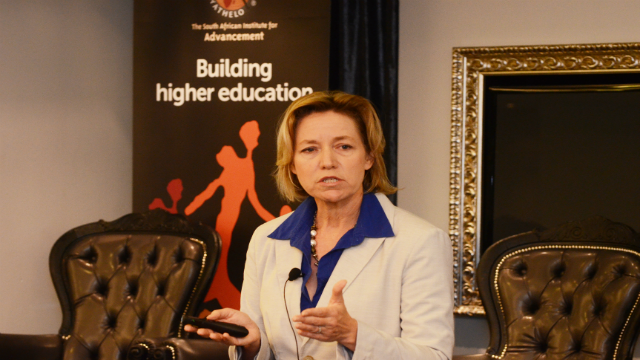
New Editor-in-Chief for the Southern African Journal of Environmental Education
Rhodes University’s ELRC takes pleasure in announcing Professor Eureta Rosenberg in the new role as Editor-in-Chief of the Southern African Journal of Environmental Education.
Renowned RWL10 Conference comes to Rhodes
The Environmental Learning Research Centre (ELRC), Rhodes University has the privilege of hosting the 2017 Researching Work and Learning Conference in December this year. The Conference will be held from the 6th to 8th December, with pre-conference offerings on the day prior, 5th December 2017.
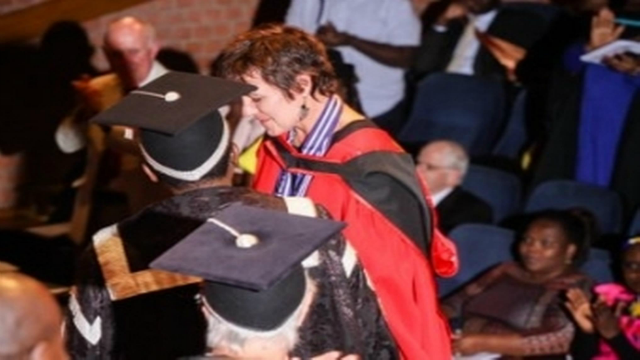
VC’s Senior Research Award to Prof Sisitka
“Theoretically stringent and clear”, having “indisputable academic status”, “exceptional, consistent effort and intellectual rigour”, being “an important international player”, and producing work that is “the highest standard in her field”.
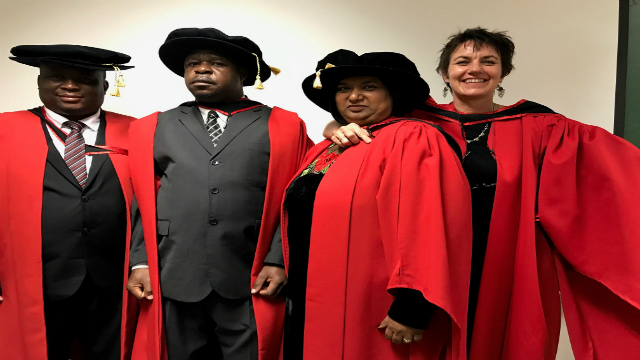
Three PhDs and 8 M.Eds graduate!
The 2017 graduation ceremony saw three new PhDs graduate from the Environmental Learning Research Centre! Their work spans the southern African region, and makes contributions to knowledge at the cutting edges of community-based irrigation scheme development, teacher education, and green work and learning.
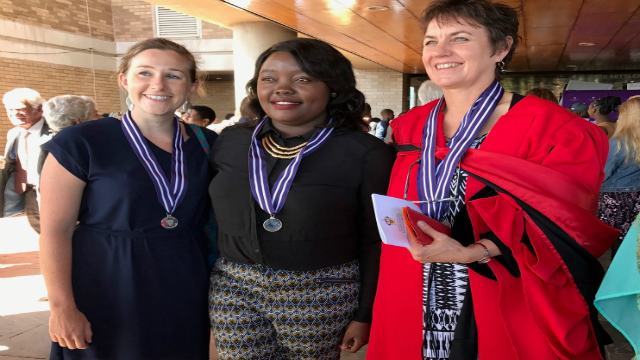
Community Engagement Award for the Amanzi for Food Project
The Environmental Learning Research Centre, together with the Water Research Commission, have been actively engaged in developing an innovative social learning model focussing on water for food production via the Amanzi [Water] for Food project.
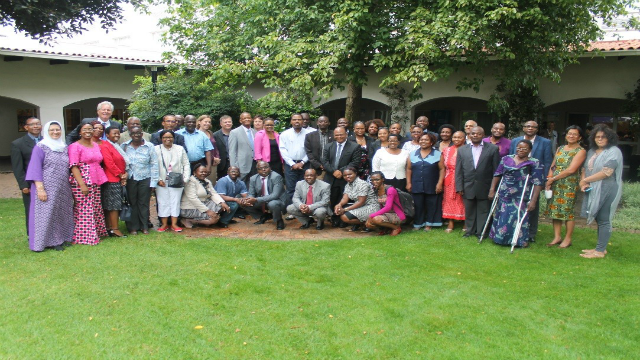
UNESCO and Partners Workshop on “Sustainability Starts with Teachers” kicks off .
UNESCO and its partners, SARUA, Rhodes University and South Africa’s Department of Basic Education kicked off a regional workshop bringing together ministerial representatives, Teacher Training Institutions (TTIS) and experts on Education for Sustainable Development (ESD) in Johannesburg on 26 January 2017.
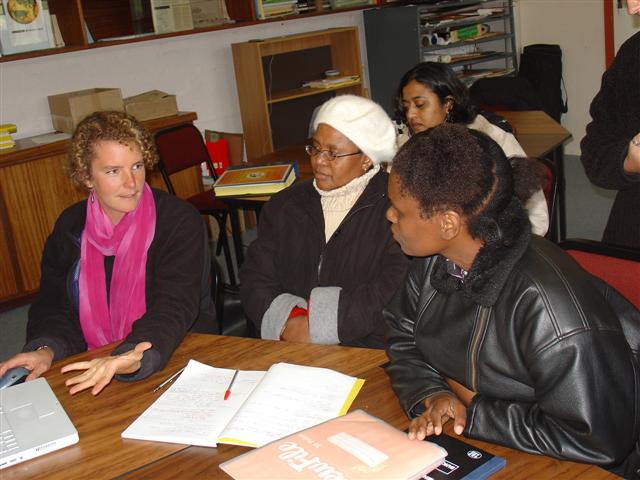
NOW OPEN: Master's Course Applications for 2017/18
Do you want to accelerate your career trajectory in environmental education, training and social learning practice, while also contributing to the building of research-based practice in this field?
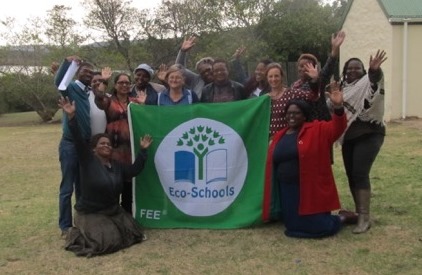
Makana’s Eco-School winners
The Eco-Schools Programme Awards for the Makana Node took place on 3 June at Thomas Baines Nature Reserve, where six schools in Grahamstown were recognised for their commitment to environmental sustainability. Siyazama Preschool and St Andrews Prep both received their international flags. The international flag is awarded when schools have been with the programme for five years.
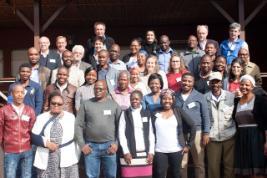
Amanzi for Food national workshop
The Amanzi for Food project held a national two-day workshop, on 12 to 13 May, to evaluate the work that they have done to ensure that farmers have access to the latest knowledge on rainwater harvesting techniques, and to plan the way forward for the project.
-267x150.jpg)
Rhodes awarded three more SARChI Chairs
Rhodes has been awarded three more SARChI chairs.
-267x178.JPG)
ELRC awarded R13 million to lead international project
The Environmental Learning Research Centre (ELRC) at Rhodes University has been awarded R13 million to lead a project on learning-centred transformation in social-ecological sciences
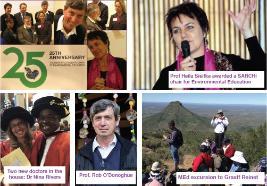
ELRC 2015 highlights
2015 was a full and eventful year at the ELRC. Here are a few of the most celebrated highlights of the year.

25th Anniversary
Rhodes University’s Environmental Learning Research Centre held its 25th year celebration of the Murray and Roberts Chair of Environmental Education in October 2016
-267x270.jpg)
Rhodes researchers gear up for participation in the World Conference on ESD
Next week the Environment and Sustainability Education community from around the world will gather in Nagoya, Japan to reflect on the outcomes of the UN Decade of Education for Sustainable Development (ESD).
-267x199.JPG)
ELRC opportune to meet Dr Marjorie Jobson, National Director of Khulumani
The usual ELRC Friday morning postgraduate seminar which holds between 8:30 am and 10:00 am at room 10 of ELRC was graced by the presence of tranquil and pleasantly smiling Dr Marjorie Jobson; many thanks to Prof Rob O’Donoghue for making this a reality.
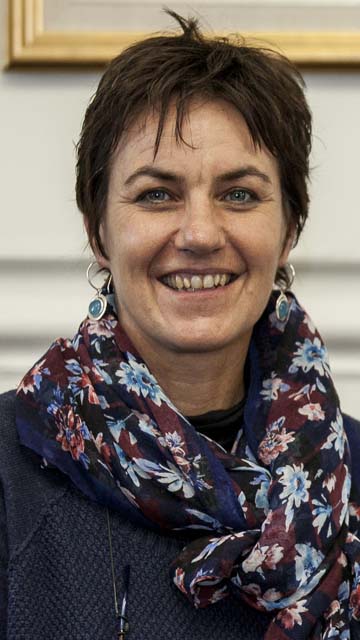
New SARChi Chair for ELRC
Current Murray & Roberts Chair in Environmental Education at Rhodes University, Professor Heila Lotz- Sisitka can add another notable title to her name, that of a South African Research Chairs Initiative (SARChI) Chair holder.
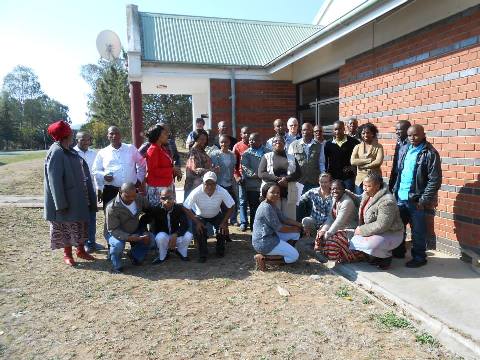
WRC Amanzi for Food Materials on the Web!
Amanzi for Food is a project of the Water Research Commission (WRC), led and implemented by the Environmental Learning Research Centre at Rhodes University. A reliable supply of good quality water is essential to growing food. ‘Water is life’, and as the user of over 62% of South Africa’s available water, agriculture has a major responsibility to ensure the most efficient use of this most precious of resources. Amanzi for Food helps those in the agricultural sector implement different ways of harvesting, storing, and using rainwater to improve food production.
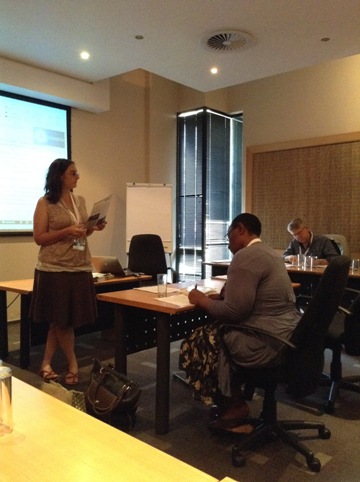
Fundisa for Change at NESS
The third National Environmental Skills Summit (NESS) took place on 3-5 March 2015 in Midrand at the Vulindlela Academy of the Development Bank of Southern Africa (DBSA).
South African Journal of Environmental Education Volume 30 now in circulation!
The ELRC is the home of the Southern African Journal of Environmental Education, fondly known as ‘The EEASA Journal’. In April 2015, members of the Environmental Education Association of Southern Africa (EEASA) received Volume 30 of the EEASA Journal.
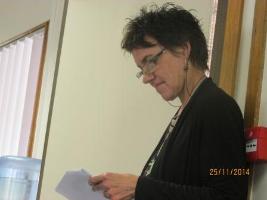
ELRC Director also RU Post-Graduate Studies Centre Director
The newly established Rhodes University Postgraduate Studies Centre (PGSC) will be directed by prestigious Environmental Learning Research Centre (ELRC) Director, Prof Heila Lotz-Sisitka. The centre will focus on expanding the quality, impact and strengthening throughput of postgraduate studies at Rhodes University. Prof Lotz-Sisitka is helping to position Rhodes as a highly sought-after university for postgraduate studies in Africa, where the postgraduate studies experience across all faculties is recognised as being of the highest quality.
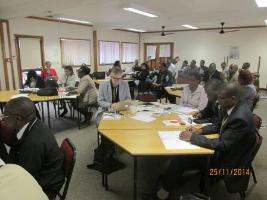
ITP Alumni Conference and Reflective Seminar – November 25-28, 2014
The Swedish/Africa/Asia International Training Programme (ITP) on Higher Education for Sustainable Development (HESD) Alumni Conference and Reflective Seminar 25-28 November 2014, is on at ELRC, Rhodes University, South Africa. This alumni conference and reflective seminar has been organised following its end and a rigorous international review of five years of its successful existence. The alumni’s meeting was constituted as an academic conference and reflective/evaluative seminar, which will produce strategic planning outcomes for future interventions of this nature for Africa. Hence the expert input of participants is highly valued.
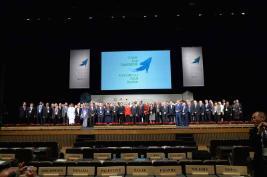
A glimpse of the November 2014 World Conference on Education for Sustainable Development (WCESD) in Japan
It is with much excitement that we confidently announce that the World Conference on Education for Sustainable Development (WCESD) was a resounding success. The conference was attended by 76 Ministers and Deputy Ministers and 1100 delegates came from 148 countries, making this the largest and best attended high level UNESCO Conference in recent years according to the DG of UNESCO. The South African Minister of Basic Education attended the conference with a delegation from SA (including the SA UNESCO Focal Point) and was invited by UNESCO to contribute to one of the plenary sessions where she emphasised the importance of creating connections between the education system and the realities of youth, and suggested that we ought to strengthen youth capacity for engaging with sustainable development issues.
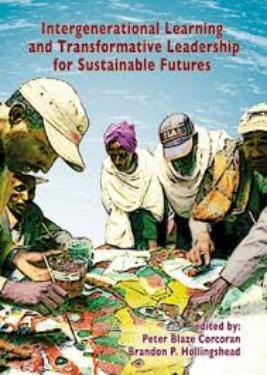
New book to be launched at the World Conference on ESD
The hot from the press book titled “Intergenerational Learning and Transformative Leadership for Sustainable Futures” published by Wageningen Academic Publishers will be launched at the World Conference on Education for Sustainable Development (WCESD) next week. Numerous contributors to the book will be in Nagoya, Japan for this important conference. The WCESD delegates are therefore invited to join in launching this book on Wednesday, November 12, 2014 during the official UNEP side event at 13:30-15:00 (the location is yet to be posted on the conference website though).
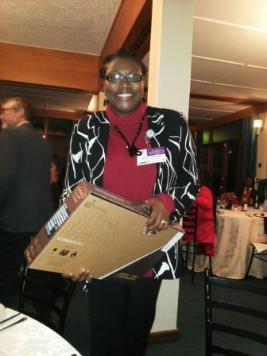
IPGC 2014: Prof Lotz-Sisitka, a keynote speaker; Adesuwa Vanessa Agbedahin, best PhD presenter
The Rhodes University (RU) 6th annual interdisciplinary postgraduate Conference (IPGC) was hosted on the 8th -10th October 2014. The conference was organised by the RU Post Graduate Liaison Subcommittee (PGLSC) under the theme, “Leading Research, when only the best is good enough”. The Conference was set up to give postgraduate students the opportunity to showcase their research interest, process and outcome as well as to provide them with a suitable platform to develop their presentations skills and expertise.
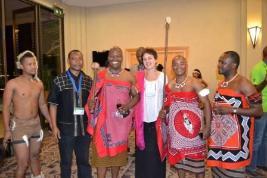
32nd EEASA conference in Namibia: A narrative and UNESCO news
The 32nd Annual EEASA conference 2014 was hosted by the University of Namibia (UNAM) and the Namibian Environmental Education Network (NEEN), in Windhoek from the 9th to the 12th of September 2014. It was open to all who share an interest in improving practice, research, policy and support of Environmental Education/Education for Sustainable Development (EE/ESD). This year’s conference was quite significant in that it fell at the end of the UN Decade on Education for Sustainable Development (UNDESD) 2005-2014. The theme was “Reflections on the current and emerging ESD issues and practices informing the post DESD Framework Programme”.
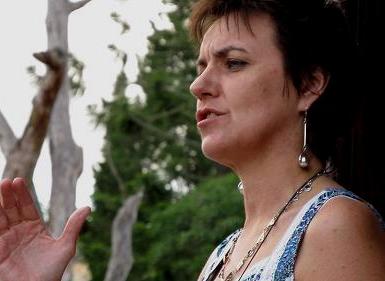
SARUA Knowledge Co-Production Framework
Prof Heila Lotz-Sisitka, the Murray & Roberts Chair of Environmental Education and Sustainability and the Director of ELRC has been involved in a substantial SARUA Climate Change Counts research in Higher Education Institutions in Southern African Development Community (SADC). She did this study with Penny Urqhart and the Higher Education Management Africa consortium (HEMA). SARUA which stands for Southern African Regional Universities Association is a membership-based organisation which is open to universities of the 15 countries that make up the Southern African Development Community (SADC).
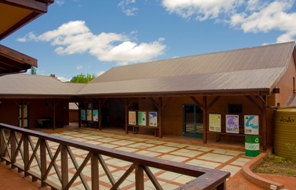
Application for the 2015-2016 Masters in EE CLOSED
Applications for the 2015/2016 Masters in Education (Environmental Education) are no more accepted. This programme is presented by the Environmental Learning Research Centre and the internationally recognized Murray & Roberts Chair of Environmental Education which are housed within the Rhodes University Faculty of Education.The main aim of the degree is to enable course participants to develop research capabilities, and a clear conceptual framework from which to understand and evaluate environmental education practice, social learning and Education for Sustainable Development; globally, regionally and in relation to a diversity of workplaces and learning contexts, from an informed and critical perspective.
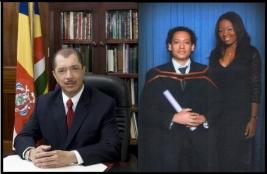
ELRC graduate gets President’s acknowledgement
One of our 2013 Master's student, in person of Mr Shane Emilie recently received a letter of acknowledgement in his country, Republic of Seychelles. This spectacular letter of acknowledgement is directly from the President of the Republic of Seychelles, Mr. James Alex Michel. Mr Emilie who recently graduated in April of this year [2014] completed a Master's degree in Education (Environmental Education) at the Environmental Learning Research Centre, Rhodes University. Mr. Emilie's research aimed at deepening understanding on the participatory and learning processes in two schools within the Seychelles Eco-School Programme.
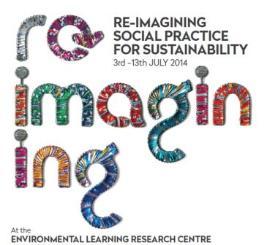
Re-Imagining Social Practice and Sustainability
Re-imagining social practice for sustainability which features in the 2014 Arts Festival in Grahamstown will be anchored by the Environmental Learning Research Centre (ELRC), Rhodes University from 3rd-13th July, 10:00-11:00 am daily. Events lined up for the week include public lectures, talks, discussions, workshops, debates, and book launch. Speakers include Rob O'Donoghue, Heila Lotz-Sisitka, Jay O'Keefe, Ingrid Schudel, Lausanne Olvitt, Zintle Songqwaru, Priya Vallabh, Soul Shava, Nick Homer and more. We look forward to seeing you.
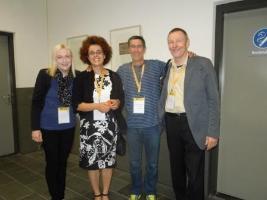
Dr David Lindley's experience at the EGOS Colloquium, Rotterdam School of Management, Netherlands
David Lindley, who completed his PhD at ELRC earlier this year, has just returned from attending the 30th EGOS (European Group for Organisational Studies) Colloquium, with the theme of “Reimaging, Rethinking, Reshaping: Organisational Scholarship in Unsettled Times”. The colloquium was held at Rotterdam School of Management, Erasmus University, in The Netherlands, from 2 - 5 July 2014. The paper, which was co-authored by Professor Heila Lotz-Sisitka, captured the essence of his PhD thesis.
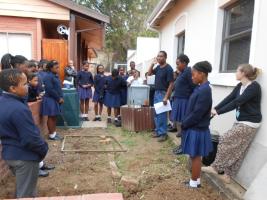
Planting for Sustainability – learning to do and doing to learn
An interesting event took place on Friday the first of August 2014 at the Environmental Learning Research Centre (ELRC). This was made possible through collaboration between Nikki Kohly, the Safety, Health and Environmental (SHE) Officer at Rhodes University and Rob O’Donoghue from ELRC. The collaboration was corroborated in an impressive event where a few hours were set aside to discuss and put into practice an important topic: Planting for Sustainability with some children from a local school.
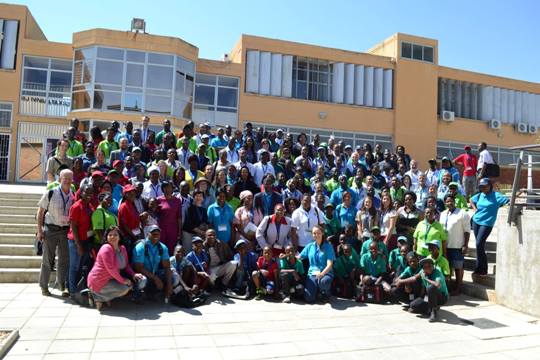
NEWS from Environmental Education Association of Southern Africa
EEASA is proud to announce that, following the successful publication of the 30th Volume of the Southern African Journal for Environmental Education for the year 2104, the call for abstracts for the 31st Volume has had an outstanding response, with close to 30 abstracts having been received. The 2015 special edition is themed: ‘Transforming education and society: Looking back and looking forward’.
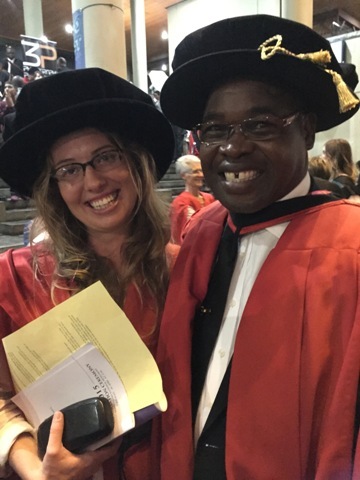
New PhDs advance knowledge of social learning
The Rhodes University Environmental Learning Research Centre graduated two PhDs. Their research both offer new knowledge of social learning in contexts of social-ecological risk and uncertainty in rural natural resource management and food security contexts in rural Africa.
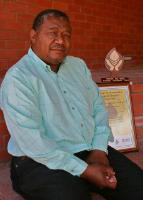
Local educator goes beyond the classroom
Though Velile Quza has been teaching for 17 years, his appetite for learning has never waned. Quza teaches Grade 10 - 12 English in Grahamstown’s Khutliso Daniels Secondary School, but has embarked on a part time Honours in Environmental Eduction through Rhodes University. But more important than his continued self-education, is his desire to share his new knowledge with his students. “I thought: let me make use of what I now know in this learning environment,” says Quza, explaining his reasons for starting an invasive plant species project which is getting his classes excited about environmental issues.
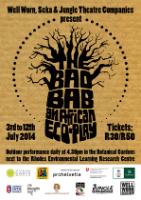
ELRC & Baobab African Eco-Play @ the 2014 Art Festival
At this years’ National Art Festival 2014, the Re-Imagining Programme at the Rhodes University Environmental Learning Research Centre will also feature The Baobab: An African Eco-Play. The Baobab African Eco-Play is produced by Well Worn Theatre Company (Johannesburg) in collaboration with Seka Theatre (Zambia) and Jungle Theatre (Cape Town). It is directed by Kyla Davis (Well Worn) and the cast includes Khutjo Green (Well Worn), Mandla Moyo (Seka), Cebisa Fubesi (Jungle). The ‘Baobab Tree’ set is installed, designed and built by Godbish Bished (Zambia). Performance type, dates and times: Family Theatre; 3rd to 12th July @4.30pm; Running Time: 50 minutes at the National Arts Festival 2014, Grahamstown. Daily outdoor performance at 4.30pm in the Botanical Gardens adjacent to the Rhodes University Environmental Learning Research Centre. Audiences are encouraged to bring a blanket or cushion to sit on.
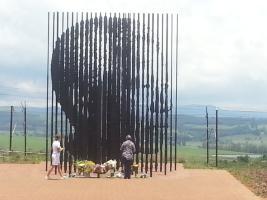
Phumla ngoxolo, Tata Madiba, Father of our Nation.
Staff and scholars at the Environmental Learning Research Centre, like others around the world offer their sympathy to Graca Machel and the Mandela family at the sad passing of apartheid activist, liberator, former President of South Africa, world leader and champion of children's well being, Nelson Rolihlahla Mandela (18 July 1918 - 5 December 2013). We were sad to see you go Tata Madiba, and you will be greatly missed. You provided a strong moral compass for all of us. Phumla Ngoxolo.
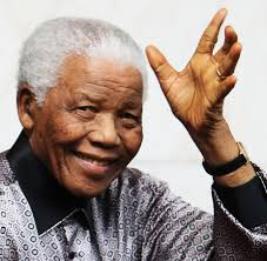
Good bye Dr Nelson Rolihlahla Mandela
It is with deep sadness and regret that Rhodes University staff members and students cope with the passing of our beloved alumnus and former president, Tatamkhulu Nelson Rolihlahla Mandela, after a long battle with a recurring lung infection. Dr Mandela was 95 years-old. We mourn and lower our flags on the passing of Madiba. We knew that he would eventually leave us, but his passing still fills us with great sorrow. Few people in our time have symbolised the spirit of freedom and courage so well as this figure of monumental integrity and humanity.
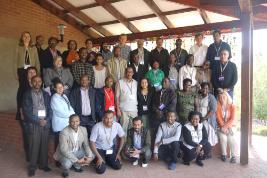
ITP (International Training Programme) 2013 African Cluster in progress
Environmental Learning Research Centre (ELRC) and Rhodes University are privileged to host the 2013 International Training Programme (ITP) participants in the course ‘Education for Sustainable Development in Higher Education’. The International Training Programme on Education for Sustainable Development is focused on building knowledge and capacity for integrating environment and sustainable development issues into curriculum, teaching and learning, research and community engagement in universities in Africa and Asia. It uses a reflexive model of professional development, which encourages participants to, through encounters with new knowledge and ideas on sustainable development and university education, to conceputalise change oriented practices and curriculum innovations in their contexts, and through this to develop contextualized applications of the course in home country contexts.

Global South-South Development Expo 2013 - Academia Partnership Forum (APF)
the UN Complex, Gidiri, Nairobi. The Global South-South Development (GSSD) Expo was a United Nations system-wide global event which brought together nearly 1,000 participants, and mobilized close to US$400 Million. The Academia Partnership Forum (APF), one of 15 such fora, was hosted by UNEP’s Environmental Education and Training Unit (EETU). This years’ Academia Partnership Forum was attended by over 70 representatives from academia, policy makers, civil society, and international organizations. In it, Elizabeth Mrema, Officer in Charge of UNEP’s Division of Environmental Policy Implementation (DEPI), welcomed participants and emphasized the role of education as a transformative agent in sustainable development. She stressed UNEP’s enhanced engagement with Universities through the Global Universities Partnership on Environment and Sustainability (GUPES) through education, training and networking.

SARUA’s new programme on “Capacity Development for Climate Change” in SADC
The Southern African Regional Universities Association (SARUA), established in 2007 with its membership currently comprising of the Vice-Chancellors of 61 universities within the Southern African Development Community (SADC) have decided to embark on a new programme, entitled “Capacity Development for Climate Change.” The aim of this programme is to revitalise higher education in the southern African region by building a regional scientific knowledge network to benefit the region’s response to climate change. It is also aimed to build capacity and leadership with African higher education institutions for climate compatibility development research, teaching, policy making and community engagement.
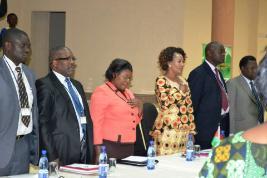
31st EEASA (Environmental Education Association Southern Africa) Conference in Lilongwe, Malawi.
The 31st EEASA Conference held in the second week of September 2013 was momentous for two reasons. It was held in Malawi for the first time since EEASA’s inception. The conference was hosted and supported by the Malawi Environmental Endowment Trust and other stakeholders including: The Ministry of Environment and Climate Change Management, Lead, University of Malawi, UNESCO, UNDP, GEF, Optichem. It attracted delegates from Botswana, Kenya, Malawi, Mauritius, Namibia, Netherlands, Seychelles, South Africa, Swaziland, Sweden, Zambia and Zimbabwe.
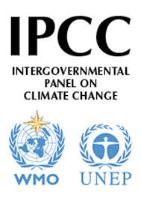
IPCC 2013 report on climate change
The Intergovernmental Panel on Climate Change (IPCC) is the leading international body for the assessment of climate change. It was established by the United Nations Environment Programme (UNEP) and the World Meteorological Organization (WMO) in 1988 to provide the world with a clear scientific view on the current state of knowledge in climate change and its potential environmental and socio-economic impacts. In the same year, the UN General Assembly endorsed the action by WMO and UNEP in jointly establishing the IPCC.
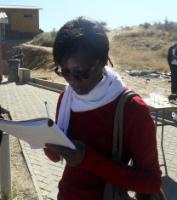
Namibian Environmental Education Network conference, 2013
Namibia Environmental Education annual conference took place at Waterberg Plateau on the 9th May- 12th May 2013 under the theme; THINK.EAT.SAVE- Reduce your footprint. The conference was attended by over a 100 people representing different Ministrie, Non- Governmental Organisations, higher education institutions and youth groups all to show case their work that contributes to Education for Sustainable Development (ESD). The key note speaker at the conference was Dr Daniel Babikwa from Uganda. Dr Babikwa’s presentation was titled: Implementation: prospects and challenges in sub Saharan African countries. His presentation was used as reference throughout the conference by different presenters, which clearly shows that a lot of ESD issues that he presented are a reality in the Namibian context.
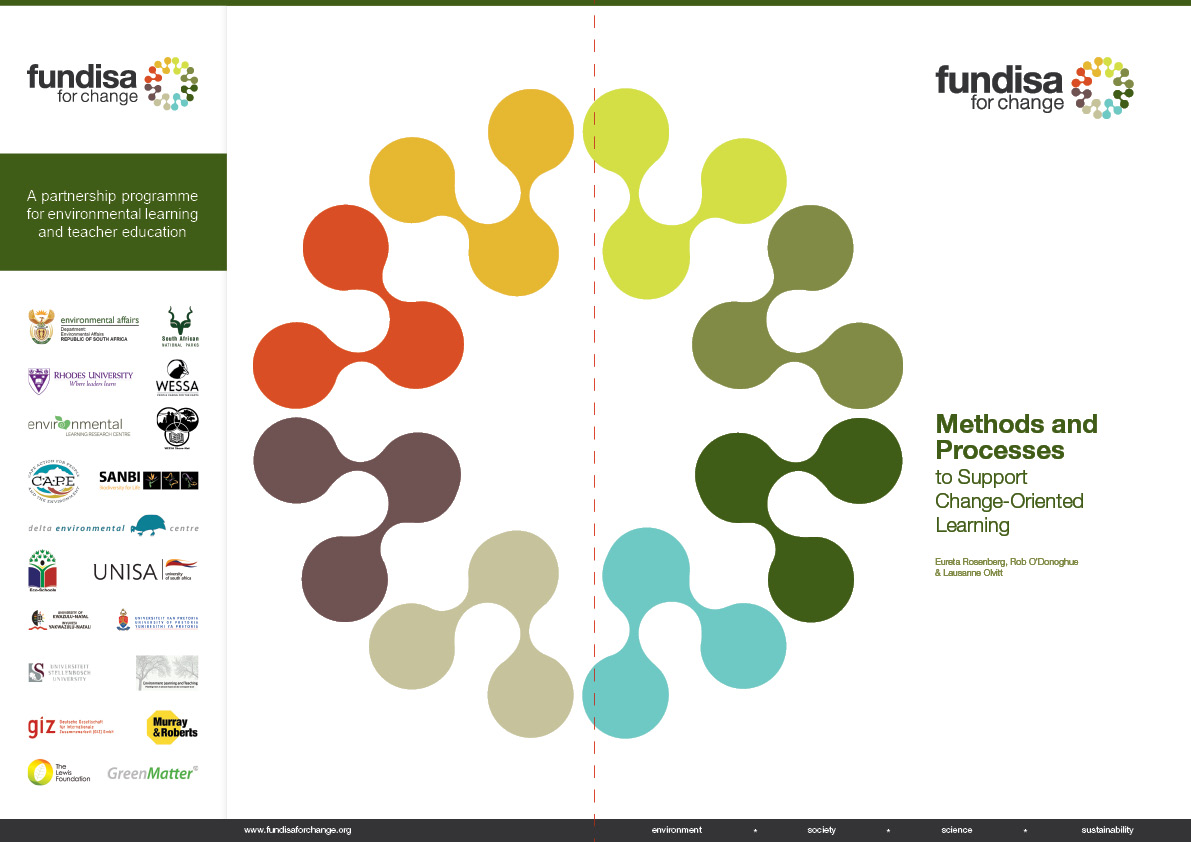
Launch of Fundisa for Change website
The official website of Fundisa for Change was launched today, the 8th of August. Fundisa for Change which is a collaborative programme formed specifically to enhance transformative environmental learning through teacher education was established as a partnership programme involving many of South Africa's major environmental organisations, including state, parastatal, NGO and private companies, which have an interest in teacher education. Fundisa’s core objective is to strengthen the teaching of environmental concepts in schools.
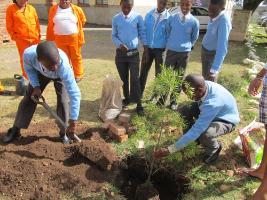
EEASA Conference delegates plant trees
In September 2012, the Rhodes University Environmental Learning Research Centre hosted the annual Environmental Education Association of Southern Africa conference in Grahamstown. The centre was tasked with the ‘greening’ of the conference. This entailed reflection on the consumption of resources, minimizing damage to the local and global environment, protecting biodiversity and human health, and offering sustainable development options to the local people and economy. One of our chosen foci was travel and its associated carbon footprint.

'Fundisa for Change' - Enhancing transformative environmental learning through teacher education
Fundisa for Change is a collaborative programme formed specifically to enhance transformative environmental learning through teacher education. Established as a partnership programme involving all of South Africa’s environmental organizations (state, parastatal and NGO) who have an interest in teacher education, the Fundisa for Change programme aims to combine sector efforts to strengthen systemic impact. Its core objective is to strengthen teaching of environmental concepts and transformative environmental learning in schools. It does this through focusing on strengthening capacity in South Africa's 21 teacher education institutions, and major partners involved in teacher development, as these are 'catalytic institutions' with potential long-term impact on the education and training of South African teachers.
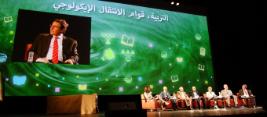
UNEP Executive Director Emphasized Environmental Education as Key Driver of Knowledge and Empowerment
At the opening plenary session of the 7th World Environmental Education Congress (WEEC) in Marrakesh, June 12 2013, the head of the UN Environment Programme (UNEP) emphasized the importance of environmental education as a key driver of empowerment. Over 1,800 participants from more than 100 countries attended the Congress, which was themed around "Environmental Education in Cities and Rural Areas: Seeking Greater Harmony". Two lecturers and a PhD student from Rhodes University, Environmental Learning Research Centre attended this congress. The Congress was hosted by the Kingdom Morocco under the leadership of the Mohamed VI Foundation for Environmental Protection, in collaboration with the WEEC Permanent Secretariat in Italy.
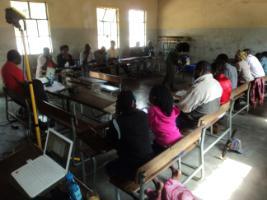
Exploring learning in irrigation systems
Learning in irrigation system has becoming a relevant issue in educational process in the global arena. Irrigation developments are crucial to ensuring food security inter alia. In Mozambique, recent policies have been induced the development of irrigation association in order to increase the overall production of the members and to improve their livelihood. By so doing, it is assumed that there might be a ground for learning through the process of operation and management of irrigation systems.
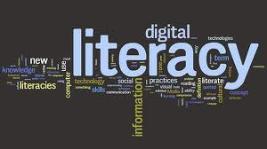
Launch of digital literacy mini-workshops in ELRC
Last month saw the launch of a series of informal mini-workshops to enhance digital literacies among environmental learning students at the Environmental Learning Research Centre (ELRC). With a vast array of digital teaching and learning tools becoming more and more readily available, and opening up new ways of teaching, learning and collaborating, being able to connect with others digitally has become more important to environmental learning.
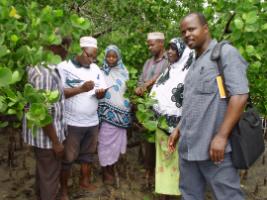
Surmounting the challenge of using scientifically abstracted indicators
The world has witnessed a wave of change in social learning processes from linear to participatory approaches; where learning is perceived as context-based and practice oriented; especially in community-based management of coastal and marine resources. A midst this ‘perception’ of learning, local communities who are potential learners and actors in experiential learning practices face a lot of challenges associated with adapting and using indicators that are scientifically abstracted, and too-reified; leading to limited learning among involved individuals and social groups. Since January 2011, Daniel Sabai has been carrying out a PhD study to address the above gap.
Developing the African Environmental Education and Training Action Plan
The African Ministerial Conference on the Environment (AMCEN) recently agreed that it was necessary to develop an African Environmental Education and Training Action Plan to guide regional organisations, donors and national governments. African Ministers, in their 14th session and via the Arusha Declaration that emanates from this meeting, agreed to strengthen environmental education and training and develop an action plan for Africa, covering formal and non-formal education, capacity building and information networking components, among others, and to explicitly include a focus on technology enhanced learning in this action plan.
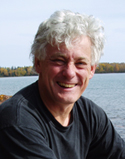
"Normalizing Catastrophe" by Prof Bob Jickling
Many Canadians have become increasingly uncomfortable with their government’s movement towards a right-wing corporatist agenda. Those of us with environmental concerns were particularly embarrassed when our Prime Minister, Stephen Harper, travelled to the Copenhagen climate conference (COP 15) for the purpose of blocking progress towards a meaningful international agreement. A frequently used excuse is that our economy is a priority; we cannot afford to take action; or, it would cost too many jobs. Yet, somehow there isn’t a sufficiently strong rejection of this narrative in our country to overturn his actions. We know that the outlook for future generations on a severely degraded earth is bleak, perhaps even catastrophic. Yet, when confronted with radically opposing views, we cannot seem to connect all of the dots and make a break from the economic narratives and cultural metaphors that dominate contemporary discourse in our country, and elsewhere. They are, in short, thoroughly normalized.
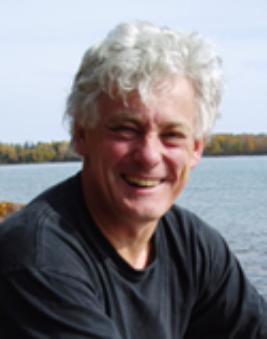
Emeritus Professor Bob Jickling visits ELRC
Professor Bob Jickling, from Lakehead University is visiting ELRC, RU for three weeks. Bob Jickling is Professor Emeritus at Lakehead University where he taught environmental, experiential, and outdoor education and environmental philosophy. He founded the Canadian Journal of Environmental Education (1996) and more recently Co-Chaired the 5th World Environmental Education Congress in Montreal (2009). He has also received the North American Association of Environmental Education’s Awards for Outstanding Contributions to: Research (2009) and Global Environmental Education (2001). As a long-time wilderness traveller much of his inspiration is derived from the landscape of Canada’s Yukon.
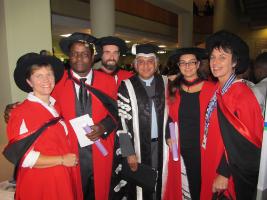
Celebrating 'four' PhD graduates in 2013 - part two
Sequel to the ‘celebrating 'four' PhD graduates in 2013 - part one’ article, the entire Environmental Learning Research Centre (ELRC), Rhodes University community of practice is proud to present to you her newest and outstanding ‘Dr’s in the house’. Their significant contributions to environmental learning and Education for Sustainable Development (ESD), including remarkable comments from their examiners are as follows:

Application for 2013-2014 MED Degree closed
The Faculty of Education is currently advertising the 2013-2014 Masters degrees programme. These include masters in environmental education, masters in geography education, and masters in science education. All three degree programmes address issues of educational quality and relevance, within a wider vision which critically probes the role of education in contributing to just and sustainable societies. The degrees foreground theoretical and practical knowledge of Environmental, Science and Geography Education; while also addressing wider education and learning questions in society such as: education and inequality; education and access to learning; and education for sustainable futures.
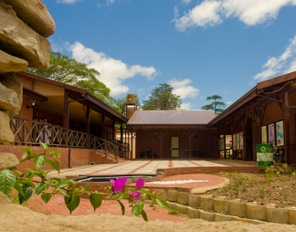
Celebrating 'four' PhD graduates in 2013 - part one
The prestigious Environmental Learning Research Centre (ELRC), Rhodes University is proud to announce the graduation of her four PhD scholars this year (2013). Namely: Dr Clayton Zazu, Dr Charles Chikunda, Dr Ingrid Joan Schudel and Dr Dylan Kenneth McGarry. Look out for details of their important contributions to environmental learning and Education for Sustainable Development (ESD) in a follow-up article. Including a glimpse of their graduation ceremony.
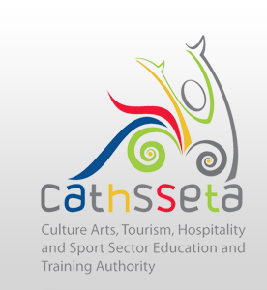
2013 Sponsorship available for 3 PhD and 4 Masters studies in Environmental Education
CATHSSETA (Culture Arts Tourism Hospitality Sport Sector Education and Training Authority), in conjunction with GreenMatterza (the engine for growing BioDiversity skills and developing the right people at the right time for the green economy) is providing the means and platform to support a university-based research programme in HCD (Human Capital Development) for BioDiversity sector.

Grand opening of the prestigious ELRC
The building of the Environmental Learning Research Centre (ELRC), an important, significant and timely university-community facility at Rhodes University (RU) was officially opened today 13th September, 2012. The meeting commenced with a welcome address by the Director of the centre, a rear gem and the ‘golden girl of the Rhodes University’, who has held the Murray and Robert Chair of Environmental Education at Rhodes University since 1990, Prof Heila Lotz-Sisitka. In her address she acknowledged the presence and impact of people who have made the centre what it is today, without which the ELRC would have been nameless. The ELRC was developed as a partnership between the Department of Environmental Affairs (DEA), the Department of Economic Development and Environmental Affairs (DEDEA), Makana Municipality and Rhodes University, with funding that was channelled through the South African National Biodiversity Institute as part of the Expanded Public Works Programme (EPWP), in order to develop the Makana Botanical Gardens and link it to the education activities in the university and community.
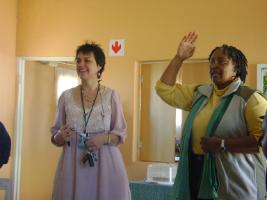
ELRC welcomes the New Umthathi Training Project Director
The Umthathi Training Project, located in Grahamstown, Eastern Cape has a new Director in the person of Mumsie Gumede who took over from Marlene Mitchener this year. Today, Friday 7th September, the Environmental Learning Research Centre (ELRC) staff members and postgraduate students, including the representatives of the SADC REEP, and the 2012 RU/SADC REEP Alumni made a grand visit to the Umthathi Training Project to joyfully welcome the new Director.
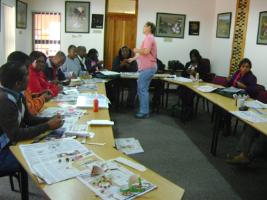
The RU/SADC Alumni 2012 get their hands ‘glued’ to make beauty out of waste
As the second week RU/SADC ESD Leadership alumni course 2012 ends, the class had a fantastic time with Michelle Craig, who came to ELRC from WESSA to facilitate a workshop in which waste cardboards were used to make earrings , necklaces and bracelets. In a space of 15 minutes on the minimal, participants were engaged in the activity/demonstration as Michelle unrolled the interesting hands on activity in paper crafts. She works for WESSA in the department of Education and finance and whenever an opportunity avails itself, she said “I get my self involved in learning more crafts skills in order to share more ... and I also do embroidery, chokers, crocheting and knitting, skills which I learnt when I was five.
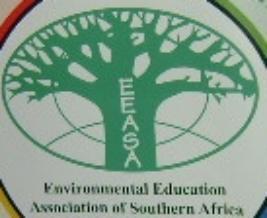
The 30th EEASA conference is here
From Tuesday 11th to Friday 14th of September 2012, Rhodes University, Grahamstown will be hosting about 350 anticipated delegates registered for the 2012 Environmental Education Association of Southern Africa (EEASA) conference. Over 100 papers and workshops are slated to be presented and this 30th conference promises to be the best. Conference presenters have already received the draft programme for the conference, guidelines for their presentations, including the map of the conference venue.
ELRC PhD scholar's experience in Moscow, Russia
A PhD Scholar and Rhodes University staff member, Mr Charles Chikunda, attended the 3rd International ISCAR Summer University (SU) in Moscow, Russia between July 2nd to 7th, 2012. This is an annual event that brings together 24 PhD students from different regions of the world, disciplines, socio-cultural contexts and age groups.
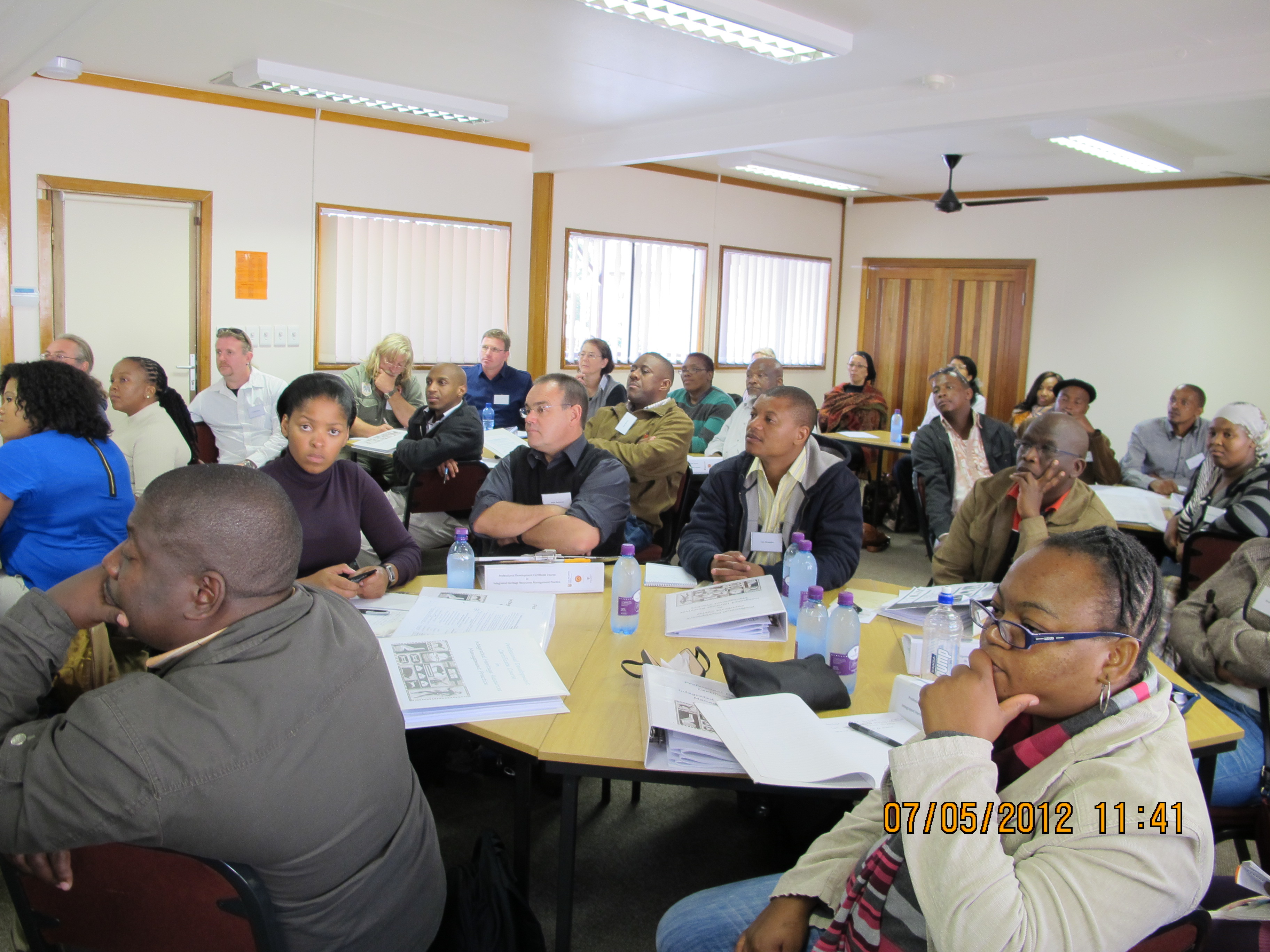
SAHRA/Rhodes University
Following its official launch on the 7th of May 2012 by the minister of Arts and Culture, honorable Paul Mashatile, this professional development course has now gained ground with the first group of participants graduating on the 19th of October 2012.
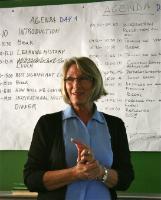
Green cities 'think big' by starting small
“It’s very important to marry learning with doing,” said Dr Shepard Urenje, at last week’s Supporting Urban Sustainability (SUS) conference. Attending the meeting were Swedish and African partners which included the Makana Municipality and local NGO, Umthathi Training Project. The partners reflected on their year engaging with local environmental and sustainability issues and interactions with cities from around the world. The purpose of the programme is to address sustainability and livelihood issues for urban populations through various small development projects, and to do this more effectively by learning through a network of international partnerships.
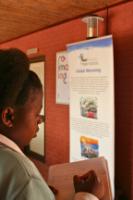
Youth prepare for COP17
As COP17 draws nearer, so should our collective awareness of its aims. Perhaps more important, however, is mindfulness of the role we play in mitigating environmental issues. Last week the ELRC partnered with the South African Environmental Observation Network (SAEON) to host a youth awareness activity to stimulate thinking about the international conference on a local level.
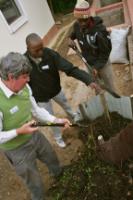
Inqaba Yegolide Youth Cleaning Initiative
Yesterday, I spied Prof Rob O’Donoghue in the courtyard of the ELRC. His sleeves were rolled up to his elbows and his glasses perched on top of his head -- signals I know to mean he’s about to give a demonstration. You must know a few things about Prof Rob: he loves sustainable inventions and stand up comedy and he has been an educator for about 35 years. He has had a time to combine these interests and passions into his own well-honed brand of active workshop, which he performs to students, teachers, passersby -- basically anyone willing to listen. And by active demonstration I mean, digging holes, scooping grass, pulling weeds, planting trees.
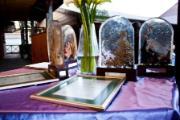
The ELRC receives recognition for environmental contribution
Marking the end of Rhodes Environmental Week, three Environmental Awards were presented at the Environmental Learning Research Centre last Friday (7 October).
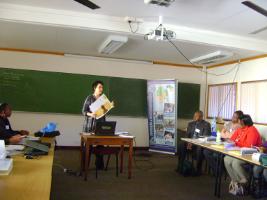
RU/SADC REEP ESD leadership course 2012 commences
The Southern African Development Community (SADC) Regional Environmental Education Programme (REEP) commenced today the 27th of August, her yearly Rhodes University/SADC International Certificate in Environment and Sustainability Education Course at Rhodes University, South Africa. This year’s course is slated to take place for two weeks, ending on the 14th of September and the overall theme is “Leadership for Environmental and Sustainability Education in SADC.”
Between the 11th-14th of September 2012, Rhodes University the home of Environmental Learning Research Centre (ELRC), the Sustainability Commons and the Makana Regional Centre of Expertise (RCE) for the UN Decade on Education for Sustainable Development will be hosting this years’ EEASA conference.
The theme for the conference is “Environmental Learning, Agency and Social Change”. Proposed conference streams include ‘Natural Resource Management, Biodiversity, Conservation and Agriculture’, ‘Higher Education and Training’, ‘Formal Schooling’, ‘Informal Learning’, ‘Business and Industry’, ‘Local and National Government’, Informal Learning’, and Inter-sectoral (cross-cutting) work.
For full details on conference fees, registration, accommodation, abstract and paper submission, please visit www.EEASAConference.co.za
Last Modified: Thu, 23 Jul 2015 10:59:41 SAST
The International Association of Critical Realism (IACR) Conference is scheduled to hold from the 18th-20th of July 2012 at Rhodes University, Grahamstown, South Africa.
Global change challenges such as economic decline, persistent inequality and social injustice, climate change, loss of biodiversity and environmental degradation are symptoms of a wider set of issues with roots in established norms, social practices and power structures.
IACR2012 seeks to raise debate, and critically question the significance of ontological realism, epistemological relativism and judgemental rationality to global change challenges; on the African continent that continues to be framed as 'marginal' in the global world order.
Can critical realist tools and concepts help us re-think development, social mobilisation, nature-culture relations and other social practices such as politics, education, work, employment, health and well being?
For more information please go to www.IACR2012conference.co.za
Last Modified: Thu, 23 Jul 2015 10:59:38 SAST
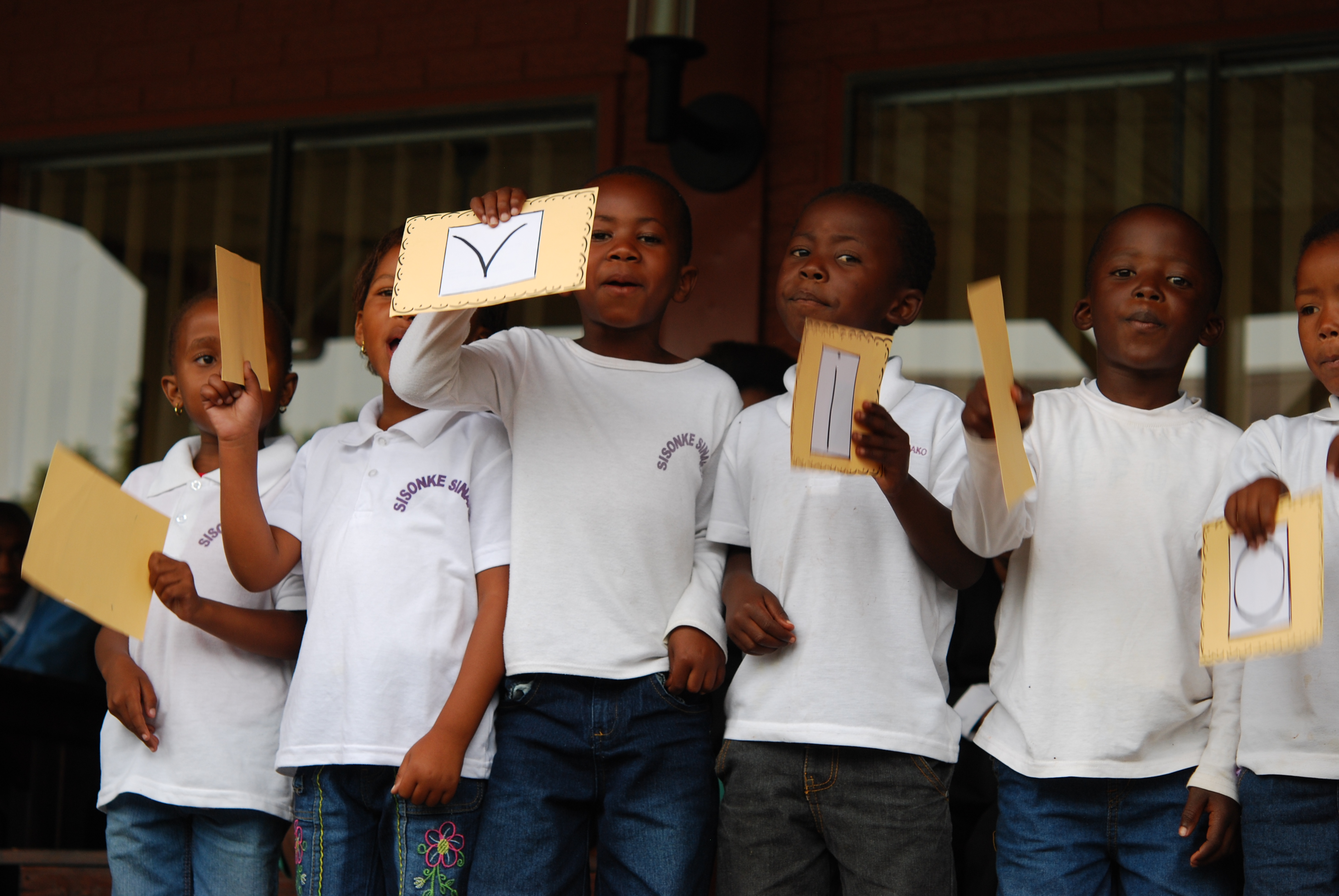
Eastern Cape Eco- School Award ceremony 2012
The regional Eco-Schools award ceremony was hosted by the Rhodes University Environmental Learning Research Centre on the 9th March 2012. The Grahamstown Seventh Day Adventist School and Kingswood College were amongst four schools in the Eastern Cape to receive recognition as an international Eco-School. Overall sixty-four schools from across the province were awarded with certificates which represent increasing commitment and sophistication as schools take on the Eco-Schools challenge at the level of bronze, silver, green, gold, international and platinum.
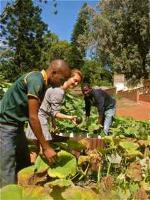
Cleaning, greening and caring
Last year, Sivele Masa went hunting for a job at the municipality. Twenty-five, unemployed and living in Ward 7, he was open to just about anything on offer. When he arrived however, Masa was redirected to the National Youth Development Agency, where an officer posed a challenging alternative: why not create his own job? The officer advised him on the merits of starting a closed cooperative with a group of his peers. And so the seed was planted. Masa took the idea back to his community and quickly recruited nine others who shared a similar vision of employment and community betterment. After brainstorming, the group decided they wanted a project that could addresses the complex, intermingled issues of their community, from unemployment and the environment to health and safety.
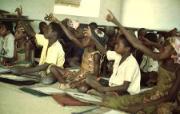
Education and Sustainable Development in Africa
The Environmental Learning Research Centre will attend Africa’s largest educational gathering this February, the Triennale on Education and Training in Africa. The conference is hosted every three years by the Association for the Development of Education in Africa (ADEA). This year’s conference brings major players in education -- from Africa ministers, senior officials, financial contributors, development organisations, civil society and other leaders -- to Ouagadougou, Burkina Faso. Here they will discuss the theme, ‘Promoting critical knowledge, skills and qualifications for sustainable development in Africa: How to design and implement an effective response through education and training systems’.
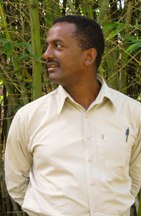
COP17 stirs student activism
Alongside their individual research agendas, many students at the ELRC concern themselves with issues across the broader social and environmental spectrum. This is no surprise -- when they come to the centre they are passionate advocates and educators, actively engaged in their own responses to modern problems. While they’re here, the centre aims to nurture this activism alongside their academic efforts, so that students leave better-equipped committed citizens of the world. Outside engagement is, therefore, a crucial component of a student’s time at the ELRC; this is an effort to reconstitute the traditional function of a university.
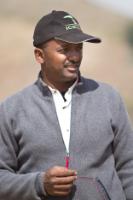
PhD student, Million Belay, nominated for 'forest hero' award by UN Forest Secretariat
The United Nations Forum on Forests Secretariat (UNFF) has nominated the Director of MELCA-Ethiopia, Million Belay, as one of the finalists for the first international Forest Heroes Award of 2011.The announcement was done during the Forest Day at the Climate Change negotiations convened in Durban, South Africa.
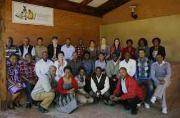
International universities explore ESD
The Environmental Learning Research Centre, together with CHERTL, are currently hosting the ‘Africa hub’ of an international training programme which focusses on education and sustainable development in universities. The programme, involving 25 academics from throughout Africa, seeks to support critical thinking and educational innovations in the cross-disciplinary area of Education for Sustainable Development (ESD) in higher education in Africa and Asia.
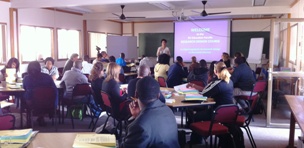
Research Design course gets students thinking
Last a week, educators from South Africa and abroad came together to focus on research in the social sciences, taking part in the Research Design Course at the ELRC. It was an intense week of discussions, lectures, readings and group exercises, all of which asked educators to examine and interrogate the methods they use to facilitate learning. “This is a complex arena characterised by a range of methods, methodologies and discourses that attempt to raise questions about, describe and explain what is meant by the pursuit of ‘Truth’,” said Prof Heila Lotz-Sisitka, explaining the purpose of the course.
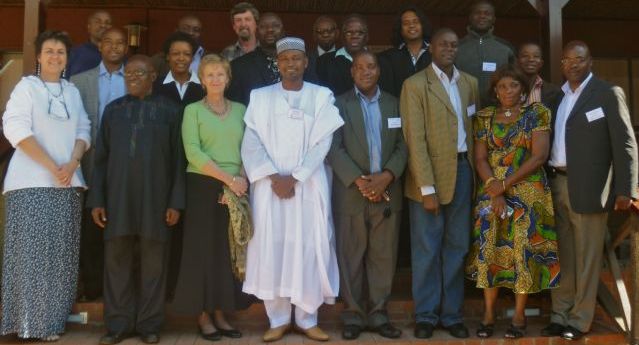
African RCEs Unite
It’s the first time African Regional Centres of Expertise (RCEs) have met face-to-face and their initial reunion is taking place right here at the ELRC. From Nigeria and Mozambique, and eight other countries in between, RCEs have gathered to discuss the tricky work development on the continent.
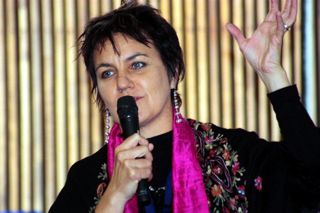
Chile deliberations on universities and a ‘clean and Just’ economy
Next year is Rio +20, an annual Earth Summit that focusses on the tensions between resource usage and flows in developed and developing world economies. It will mark 20 years since the first major Earth Summit. Not surprisingly, given the recent emphasis on the economic crisis in the West, a major topic of discussion will be establishing a globally acceptable framework for green economies within the context of sustainable development and poverty alleviation. Such economies are to be established on principles of low carbon development and are to create new green jobs while enhancing sustainable development. Of course this is not without contention, as many countries in the Global South see this as yet another form of ‘external control’ on development - a factor which somewhat paradoxically is not simply a political matter, but one tempered by global change science that points to the long-term costs (in both human lives and development costs) of climate change and continued ecosystem degradation.
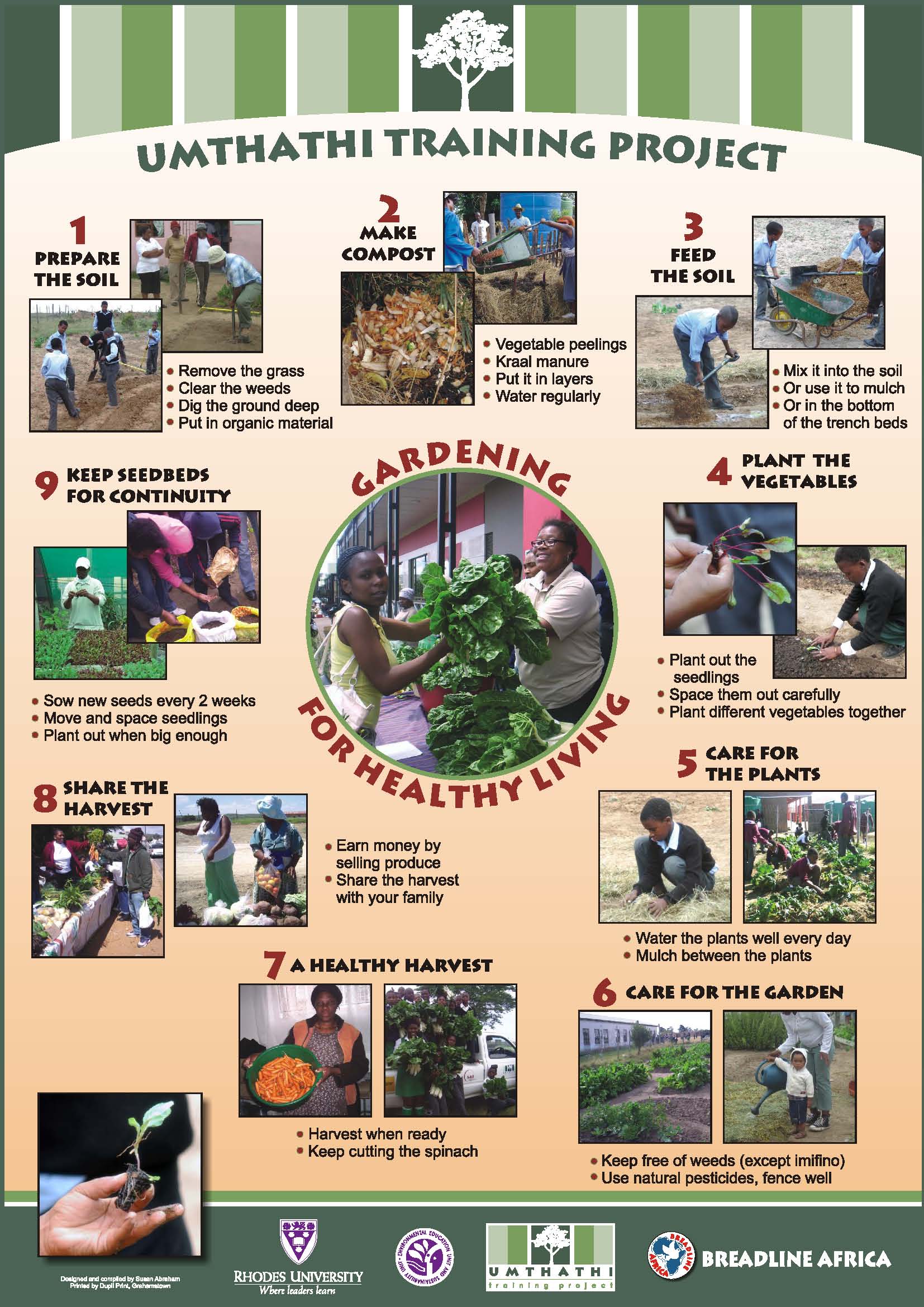
The ELRC shines during Community Engagement Week
This week is Community Engagement Week at Rhodes and the ELRC is getting involved. Described as the “third leg” on which a university stands, along with teaching and research, community engagement is increasingly a priority for institutions intent on breeding compassionate, mindful citizens -- not just employable graduates.
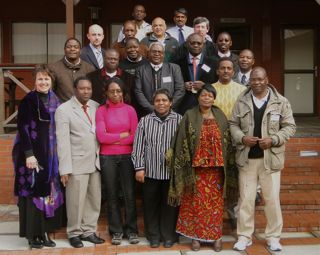
Regional research gets support
Last week ten researchers from the Southern African Development Community Regional Environmental Education Programme (SADC REEP) participated in a writing course at the ELRC. The course provided the necessary space and support for busy environmental educators to focus on writing up their research, which will appear in this year’s Southern African Journal of Environmental Education.
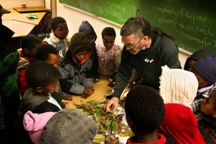
Teaching outside the box
Getting children to look at their surroundings and creatively interact with them are what the Creeping Toad workshops are all about. Innovated and conducted by one of Britain’s leading environmental educators, Gordon MacLellan, these workshops incorporate outdoor exploration, storytelling and performance.

The art of resolution
“One of the problems with environmental education today, is the word ‘awareness’,” says Rhodes Environmental Education PhD student, Dylan McGarry, “Being aware of something doesn’t mean it will change what you value.”
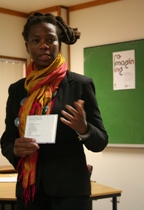
Sustainable living and heritage
Sustainable living is as much about tradition as it is embracing modernity. Preserving culture and heritage is an important aspect of developing consciously, whether it means protecting indigenous plants or honouring cultural practices. As a part of the Re-Imagining festival, Sibongile van Damme, CEO of the South African Heritage Resource Agency (SAHRA), gave a talk entitled, ‘Embracing Intangible Heritage within the Cultural Heritage Sector: which way to go – erasure or social cohesion’. Van Damme sought to contextualise the issue of apartheid liberation songs and to facilitate a discussion around whether these songs still have a place in South Africa.
Supporting Urban Sustainability
A team of five environmental activists from the district of Makana recently attended an international workshop in Malmo and Visby, Sweden. The focus of the visit was to investigate how different cities are pursuing urban sustainability and green city initiatives and to have an international dialogue around this topic. Five other teams from Bangladesh, India, Kenya, Sweden and Tanzania attended the workshop, which was hosted by the Swedish International Centre of Education for Sustainable Development (SWEDESD).
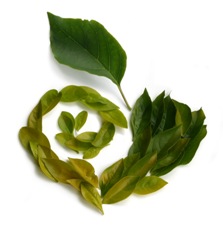
Rhodes researchers gear up for participation in the World Conference on ESD
Next week the Environment and Sustainability Education community from around the world will gather in Nagoya, Japan to reflect on the outcomes of the UN Decade of Education for Sustainable Development (ESD). First proposed at the World Summit on Sustainable Development in Johannesburg in 2002 and launched in 2005, the UN Decade of ESD (UNDESD) was a global initiative to extend the role of education in re-orienting society towards a more sustainable future. The Rhodes University Environmental Learning Research Centre has been actively involved in the decade, and in 2006 it led a 14 country study to establish how SADC countries were responding to the Decade.

Fundisa for Change Conference and launch - February 2014
Fundisa for Change Education for Sustainable Development (ESD) Teacher Education Conference and Launch took place February 2014. The theme of the 2014 Fundisa for Change Education for Sustainable Development (ESD) Teacher Education Conference was ‘Building a national system of teacher education engagement for transformative environmental learning and education for sustainable development’. The Fundisa for Change Conference and launch took place over two days, in Johannesburg, South Africa. The launch was convened by the DEA in partnership with GreenMatter and the Fundisa for Change co-ordination hub.
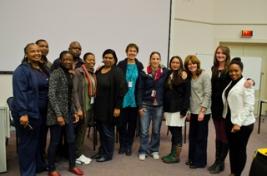
ELRC supports RU career lounge
It was an inspiring evening in July 2014 when the Rhodes University Environmental Learning Research Centre (ELRC) post graduate students and staff led by Ms. Presha Ramsarup, a Greenmatter Fellow, and Prof. Heila Sisitka a Senior Greenmatter Fellow, shared their diverse career growth with a group of Rhodes University students who came from a broad range of disciplines. This event was part of the monthly career lounge series that are facilitated by the Rhodes University Career Center, Prof Ric Bernard and the student organisation- the Catchment Research Group (CRG) in partnership with Greenmatter and WWF-SA.
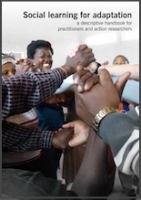
Handbook on social learning for adaptation
This is a handbook on social learning for adaptation. It is an excellent descriptive handbook for practitioners and action researchers. The authors of this book include Georgina Cundill, Sheona Shackleton, Lawrence Sisitka, Monde Ntshudu, Heila Lotz-Sisitka, Injairu Kulundu, and Nick Hamer. This handbook presents the experience of a participatory social learning process that evolved to support individual and community level adaptation to the myriad of stressors affecting rural people. While the social learning process is presented as a ‘package,’ this is more out of convenience than attempting to represent a perfect model. In other words, genuinely responsive social learning processes may well vary in content, but possibly not in core features from what is presented here. This handbook should therefore be considered as a framework to guide thinking and reflection around how such processes might unfold, and further provide guidance towards possible approaches and activities that may be appropriate in some circumstances.

ELRC Alumni links - MELCA's e-newsletter
MELCA - Ethiopia's e-newsletter for May 2014-Vol 1 is now available. MELCA-Ethiopia, was born out of the African Biodiversity Network (ABN) (www.africanbiodiversity.org) in 2004. MELCA’s founders are environmental practitioners, foresters and lawyers. They have extensive experience, both nationally and regionally, in working on issues related to environment and culture. MELCA-Ethiopia formerly known, as MELCA Mahiber is a non-governmental organization registered under the Charities and Societies Agency of Ethiopia with a certificate no. 3408 as an Ethiopian resident charity. MELCA means ford in both Amharic, the national language, and Oromo the next most widely spoken language in Ethiopia. A ford is a crossing point on a river and in this instance the name is used symbolically – our work being about connection. In a world evermore fragmented by social unrest and destruction of natural resources, MELCA holds a holistic view.
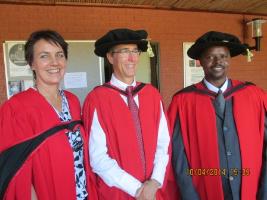
2014 PhDs and Master's graduates
This Year, the ELRC had the honour to have new PhD and Masters graduates. There were three PhD graduates namely Dr Daniel SABAI whose study offers a new critical realist methodology for indicator development involving communities and scientific institutions. Dr David LINDLEY whose study not only provides new insight into the tacit and explicit changes that can result from expansive social learning in organisations, but also provides new knowledge of the role of social learning in environmental management. Dr Jane Bosibori OTEKI who explored changes that would produce the necessary competence and re-orientation of the curriculum to the UNESCO framework of Education for Sustainable Development.
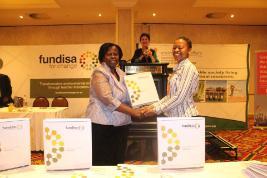
Fundisa for Change conference report
The Fundisa for Change Teacher Education Professional Learning Community, Materials and Programme was successfully launched at the first Fundisa for Change conference. The conference was opened by the Director General of Environmental Affairs, Ms Nosipho Ngcaba on 27th February, with the Deputy Minister of Water and Environmental Affairs Ms Rejoice Mabudafasi launching the programme and materials on the morning of the 28th of February.
32nd EEASA Conference 2014 - Namibia
Namibia is organizing the 32nd annual conference of the Environmental Education Association of Southern Africa (EEASA) in 2014 and the University of Namibia (UNAM) has been tasked to host it on its main campus in Windhoek. The EEASA conference 2014 will be interdisciplinary in its focus and will aim at bridging social and academic gaps between different cultures, good practices, scientific attitudes and social networking among delegates from the Southern Africa and other parts of the World. The theme of this conference is “Reflections on the Current and Emerging ESD issues and the Practices Informing the Post DESD Framework Programme”, in line with the World Conference on Education for Sustainable Development that will take place in Nagoya (Japan) in November 2014.
After the 32nd EEASA conference in Namibia: A narrative
The 32nd Annual EEASA conference 2014 was hosted by the University of Namibia (UNAM) and the Namibian Environmental Education Network (NEEN), in Windhoek from the 9th to the 12th of September 2014. It was open to all who share an interest in improving practice, research, policy and support of Environmental Education/Education for Sustainable Development (EE/ESD). This year’s conference was quite significant in that it fell at the end of the UN Decade on Education for Sustainable Development (UNDESD) 2005-2014. The theme was “Reflections on the current and emerging ESD issues and practices informing the post DESD Framework Programme”.
Women in the Nursery
This is a tribute to two very strong, enthusiastic, passionate women working in the nursery of the Makana Municipality’s Horticulture Department. It was the morning of 28July 2011, when a colleague and I went to the Department of Horticulture to meet with Kevin Bates, the Manager of Parks and Recreation, to conduct observations and interviews with his employees. I was there to do a skills needs analysis project, which formed a part of my research for my Masters topic: “Learning pathways on key occupations relevant to sustainable development within Makana Municipality”. This is all about Education and Sustainability. Of the five groups we interviewed, the two women working in the nursery stood out.
The cycle of environmental education
“I’m interested in how the arts can be used to establish a critical voice,” said Ingrid Schudel, lecturer and PhD student at the ELRC, “With art, one wants to do more than just make pretty pictures.” As a part of the Re-Imagining mini Festival, Schudel conducted a three-day paper making workshop for local teachers. While teaching the skill of recycled paper making, the workshop explored issues around waste and recycling in Grahamstown, challenging educators to move closer to the root of the problem.
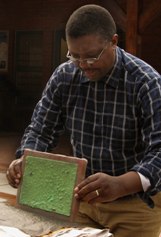
Interactive Environmental Education
Last week Environmental Education Masters students returned to the ELRC for their third Masters week of the year. While here, they discussed the progress of their current research while participating in a number of creative and interactive workshops. The workshops focused on the sustainability areas of water, agriculture, waste, nutrition and intended to stimulate innovative ideas for teaching environmental education in and outside of the classroom. At a workshop on recycled paper makin
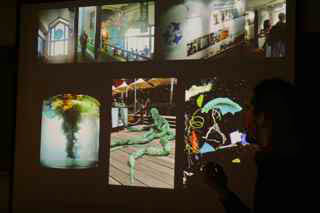
Arts Festival goes Environmental
While the National Arts Festival sweeps through Grahamstown, bringing with it all manner of artist and festival-enthusiast, the ELRC is taking part in its own creative festival. For eight days during the Festival, it will host the Reimaging “mini festival”, which brings together artists, activists and educators for the purpose of “reimaging” the future of the environmental sustainability. Through workshops, panels and exhibitions, environmental leaders and passionate citizens will uncov
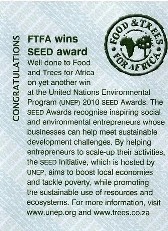
Feeding minds at the Fest
Creative collaborations are happening at the Re-imagining festival in the Sustainability Commons of the ELRC. Various environmental groups and activists have been invited to discuss and deliberate ideas for more sustainable living. Food and Trees for Africa is taking part in the conversation and hosted an informational talk on their approach to teaching gardening and planting using a culturally sensitive approach. This South African NGO is spreading the seeds of permaculture in schools and co
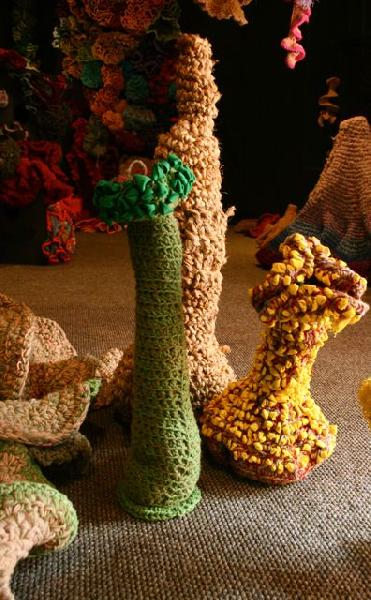
The Art of Activism
Wading through the sea of and texture and colour, of shapes that coil and ripple and occur in an infinite variety, creates an overwhelming sense of beauty while alluding to the tragedy of environmental destruction. An exhibit of the Woodstock Art Reef Project (WARP), which is on display at the ELRC for duration of the Re-imaging festival, makes a symbolic statement about the stunning diversity that is being lost as a result of climate change. The community art initiative is a part of a global movement to use crochet handicraft as a way of expressing the threat of climate change on our oceanic eco-systems. Speaking about the environmental and community driven aspects of WARP, was on

New digital library to make 30 years of environmental learning and research resources accessible for all
Over the past 30 years, the Rhodes University Environmental Learning and Research Centre (ELRC) has created a plethora of scholarship on social innovation, environmental education, and the transformative potential of university and civil society partnerships.
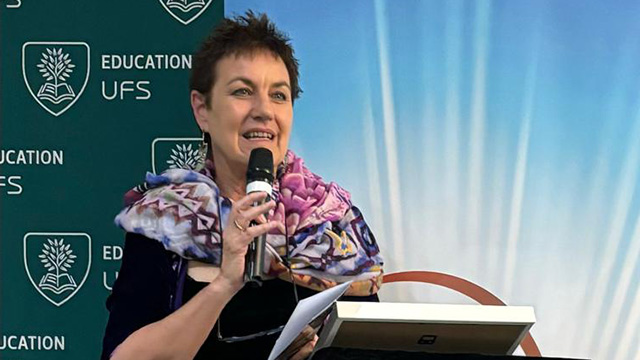
Rhodes University’s Distinguished Professor Heila Lotz-Sisitka honoured with prestigious SAERA education research award
Distinguished Professor Heila Lotz-Sisitka, a leading figure in environmental education, was recently awarded the 2024 SAERA Research Honours Award by the South African Education Research Association (SAERA), at their annual conference in Bloemfontein.
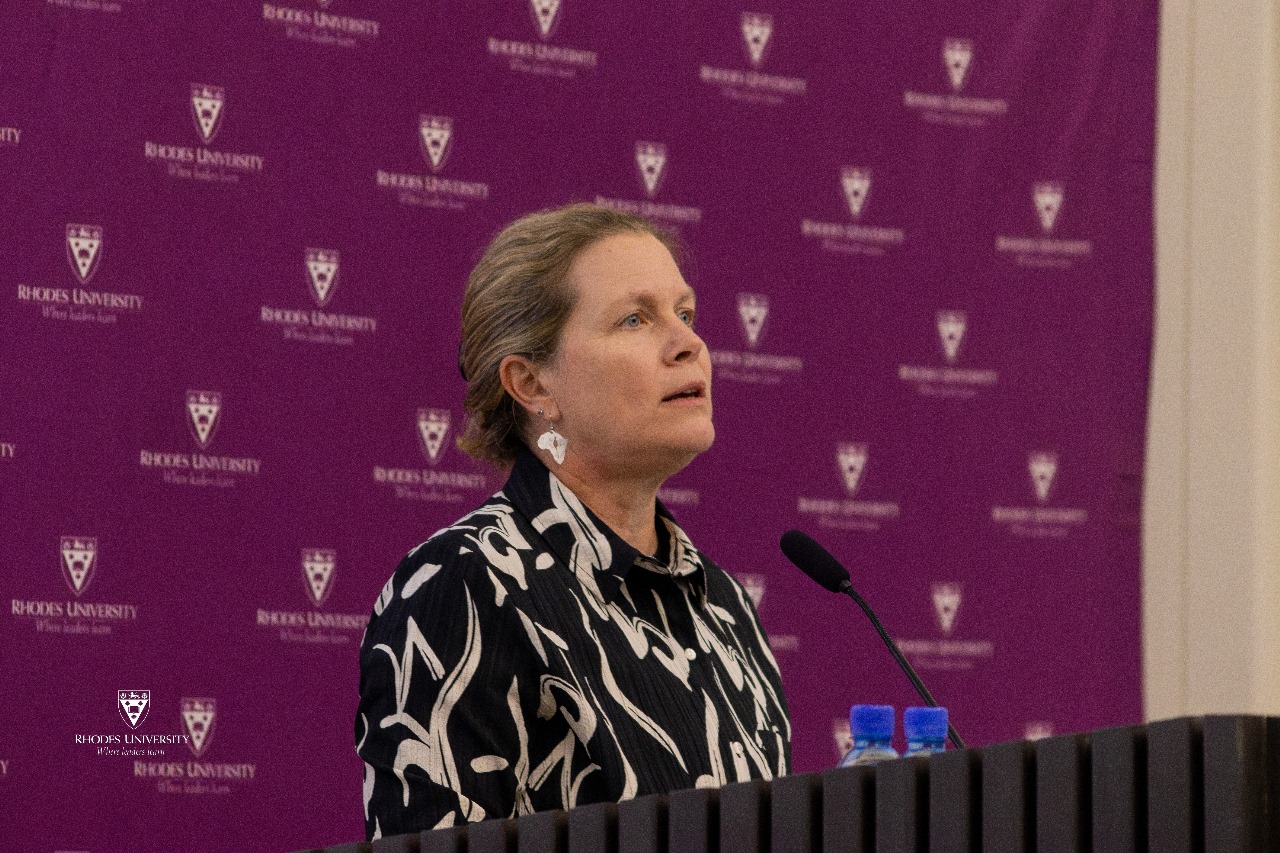
Reimagining Education as Ethical Action in Times of Crisis with Professor Lausanne Olvitt
At the 2025 Rhodes University graduation ceremony, Professor Lausanne Olvitt was honoured with the Vice-Chancellor’s Distinguished Senior Teaching Award, showcasing her dedication to fostering inclusive and impactful learning environments.